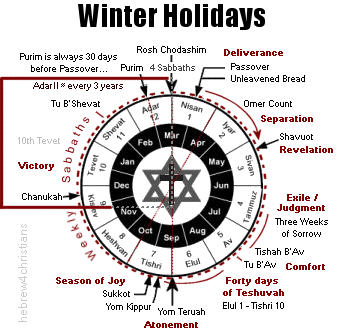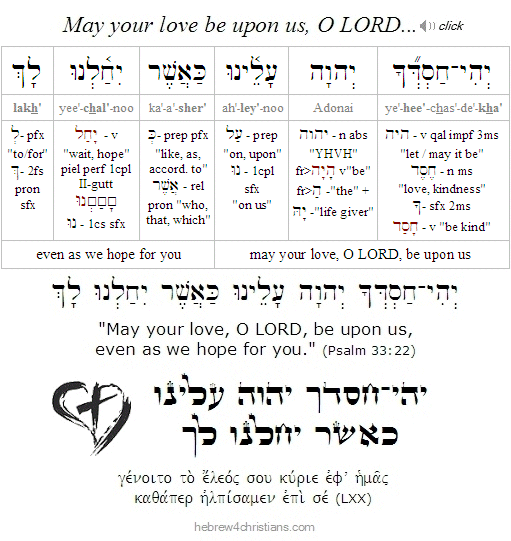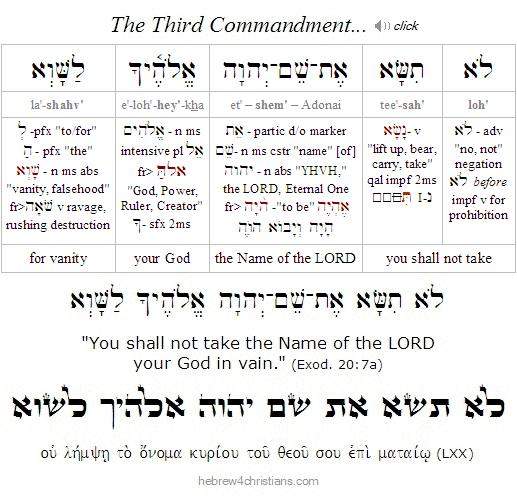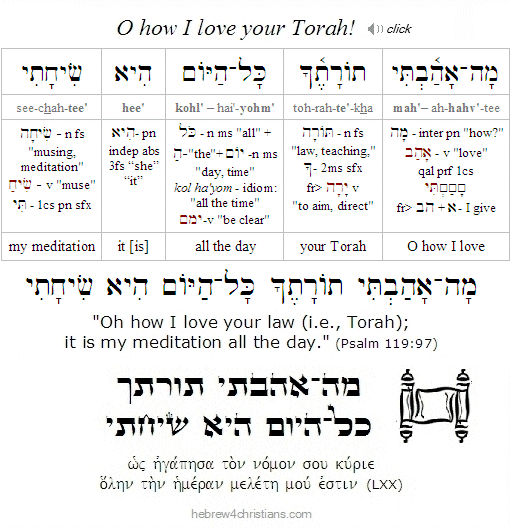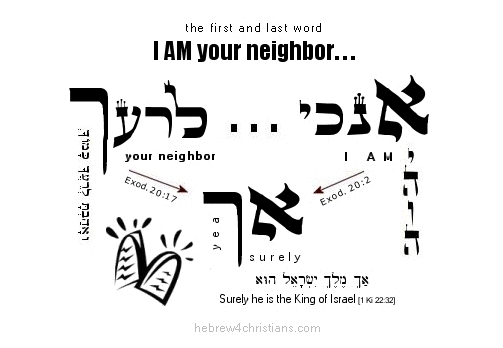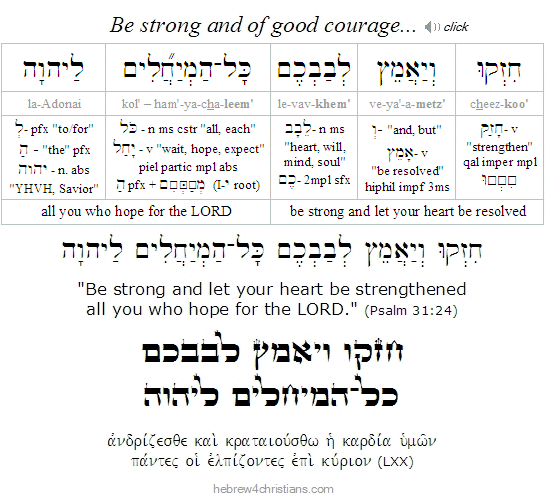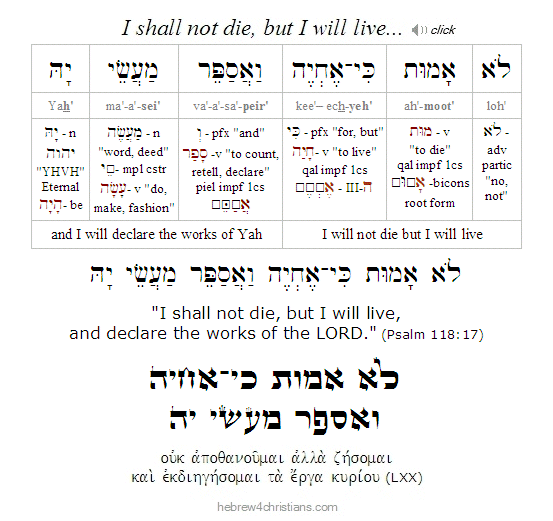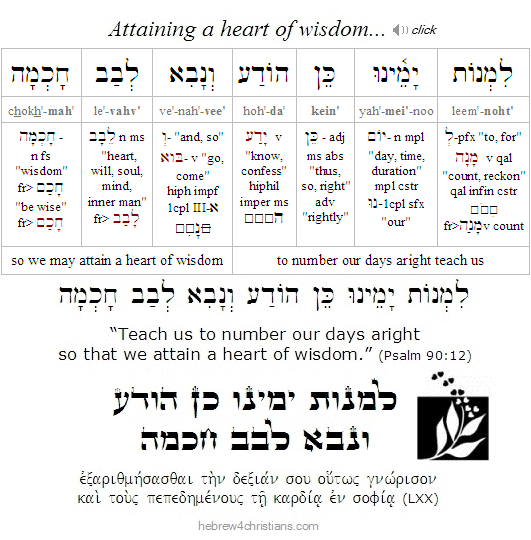|
Jewish Holiday Calendar
For January 2019 site updates, please scroll past this entry....
The winter holidays (חגי החורף) remember special times when God acted on behalf of His people so that they would triumph over their enemies, and therefore they prophetically picture the final victory in the world to come.
The Winter Holidays:
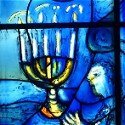
Note that in accordance with tradition, the following holiday dates begin at sundown:
- Month of Kislev (Wed. Nov. 7th [eve] - Fri. Dec. 7th [day])
- Four Sabbaths: Toldot, Vayetzei, Vayishlach, Vayeshev
- Dates for Chanukah 2018 (5779):
- 1st Chanukah candle - Sun. Dec. 2nd [i.e., Kislev 25]
- 2nd Chanukah candle - Mon. Dec. 3rd
- 3rd Chanukah candle: Tues. Dec. 4th
- 4th Chanukah candle: Wed. Dec. 5th
- 5th Chanukah candle: Thurs. Dec. 6th
- Month of Tevet (Fri., Dec. 7th [eve] - Fri. Jan. 27th [day])
- Five Sabbaths: Miketz, Vayigash, Vayechi, Shemot, Va'era
- Dates for Chanukah (continued):
- 6th Chanukah candle: Fri. Dec. 7th (Rosh Chodesh Chanukah)
- 7th Chanukah candle: Sat. Dec. 8th
- 8th Chanukah candle: Sun. Dec. 9th [Zot Chanukah]
- Tenth of Tevet - Tues. Dec. 18th, 2018; fast over the seige of Jerusalem
- Winter Solstice: Fri. Dec. 21st (Tevet 13)
- Christmas: Tues. Dec. 25th (Tevet 16, 5779)
- Secular New Year: Tues. Jan. 1st, 2019 (Tevet 24, 5779)
- Month of Shevat (Sun., Jan. 6th [eve] - Mon. Feb. 4th [day])
- Month of Adar I (Mon., Feb. 4th [eve] - Wed. March 6th [day])
- Month of Adar II (Wed. March 6th [eve] - Fri. April 5th [day])
- Month of Nisan (Fri. April 5th [eve] - Sat. May 4th [day])
Note: Some calendars will list the first day of a holiday without indicating that the holiday actually begins sundown the night before... So, for example, while Purim begins on March 20th at sundown this year, some calendars may indicate that it occurs the following day. For more information about these dates see the Calendar pages....
January 2019 Updates
The Great Need to Wake Up...

01.31.19 (Shevat 25, 5779) We are living in perilous times, and for all the more reason we must "pay more careful attention to what we have heard so that we do not drift away" (Heb. 2:1). We must be anchored to the truth lest we become shipwrecked in our faith. Drifting is often imperceptible, and occurs slowly, though the end result is as deadly as openly turning away from God in outright apostasy. As C.S. Lewis once wrote, "The safest road to hell is the gradual one - the gentle slope, soft underfoot, without sudden turnings, without milestones, without signposts." The grave danger today is to quietly and invisibly give up hope, to unconsciously "go with the flow," to become comfortably numb, to fall asleep, and therefore to die inside... It is far more dangerous to ignore God's mercy, or to make a pretense of knowing God's grace, than it is to blatantly break his law. Therefore the urgent need is to remember, to hear, and to awaken the soul to face the truth about reality. We must focus the heart, concentrate the will, and consciously "set" the Lord always before us (Psalm 16:8). Each day we must awaken from our emptiness to reaffirm the central truth: "Shema Yisrael, Adonai Eloheinu, Adonai echad; and you shall love the LORD your God with all your heart and with all your soul and with all your might" (Deut. 6:4-5). "Awake, you who sleep, Arise from the dead, And Christ will give you light" (Eph. 5:14).
We must press on to secure our high calling in Messiah: "Let us know; let us press on to know (i.e., נִרְדְּפָה, "pursue after") the LORD; His going out is sure as the dawn; He will come to us as the showers, as the spring rains that water the earth" (Hos. 6:3). May God help us pursue him be'khol levavkha - with all our heart - because He has promised, "You will seek me and find me, when you seek me with all your heart" (Jer. 29:13). And may the love of the LORD indeed be upon us, even as we put our hope in Him (Psalm 32:22).
יְהִי־חַסְדְּךָ יְהוָה עָלֵינוּ
כַּאֲשֶׁר יִחַלְנוּ לָךְ
ye·hee · chas·de·kha · Adonai · a·ley'·noo
ka·a·sher · yee·chal'·noo · lakh

"May your love, O LORD, be upon us,
even as we hope in You"
(Psalm 33:22)

Hebrew Study Card
Whatever the heart genuinely seeks, it will find. We are constantly "asking, seeking, and knocking" (Matt. 7:7), even if we are often unaware of our heart's search. It is impossible to be neutral in all of this, and we are either walking in faith or drifting away. "Take care, brothers, lest there be in any of you an evil, unbelieving heart, leading you to fall away from the living God. But exhort one another every day, as long as it is called "today," that none of you may be hardened by the deceitfulness of sin. For we have come to share in Messiah, if indeed we hold our original confidence firm to the end" (Heb. 3:12-14).
The Decrees of Torah...

[ The following concerns this week's Torah reading, parashat Mishpatim... ]
01.31.19 (Shevat 25, 5779) The Hebrew word mitzvah (מִצְוָה) generally means "divine commandment" (mitzvot is the plural form), though the world alludes to "connection" with God (i.e., the root צוה means to bind or unite). The various mitzvot found in the Torah may be further divided into the subcategories of "chukkim u'mishpatim" (Deut. 4:5). Chukkim (חֻקִּים) are statutes given without a reason (i.e., divine decrees). The classic example is the decree of the Red Heifer, which, legend has it, defied even the wisdom of King Solomon. Mishpatim (מִשְׁפָּטִים), on the other hand, are laws given for a discernible reason (i.e., logical laws). An example would be the commandment to give charity or prohibitions against theft and murder. These mitzvot are inherently rational and appeal to the need for civil and moral order. The relationship between chukkim and mishpatim -- or between "faith and reason" -- is highly interdependent, however, and the sages ultimately concluded that every commandment (regardless of type) may be regarded as if it were a decree given without a reason (i.e., all "mishpatim" may be reduced to the status of "chukkim"). This is because the merely rational acceptance of "religion" is insufficient to touch the heart of faith. We do not "understand to believe," but the other way around.
A person who adjudges that it is "reasonable" to obey one commandment might later change his or her mind if their passion sways them to suddenly regard it as "irrational." No, we should obey God simply because God asks us to trust in him. We believe to understand... The great example here is the Akedah (עֲקֵדָה, "binding"), when Abraham willingly offered up his beloved son Isaac upon the altar as a sacrifice (Gen. 22:1-14). Abraham surely understood all the "commandments, decrees, and laws" of God (Gen. 26:5), but his faith led him to surrender his need to understand in devotion to the LORD. Abraham's Torah was that of faith: "And he believed in the LORD, and He counted it to him as righteousness" (Gen. 15:6). Surrendering our ego's reasoning (as absolute) by yielding to the wisdom of the LORD is the essential decree of the entire Torah....
Personal Note: Please remember Hebrew for Christians in your prayers, friends. I have been sick lately and things have been difficult for us.. . As we draw closer to the prophesied End of Days, more than ever must we persevere, even if we are struggling or in pain. May God help us remain focused and full of his comfort. Amen.
Name in Vain (הדיבר השלישי)

01.30.19 (Shevat 24, 5779) The Third Commandment states: lo tissa et shem Adonai Elohekha lashav, "You shall not lift up (lit. "carry") the Name of the LORD your God in vain" (Exod. 20:7). Note that the Hebrew word lashav (לַשָּׁוְא), usually translated "in vain" in English, means in an empty or thoughtless manner (the LXX translates it as ἐπὶ ματαίῳ, "worthlessly" or "thoughtlessly"), though the word might also be rendered as "for show," that is, insincerely or for sake of others. Obviously "lifting up the Name" of God 'lashav' includes invoking the Divine Presence in profane and vulgar ways, but it also includes "lip-service" expressions of faith, mechanical confessions, heartless acts of service, and so on. "Lifting up the Name" should never be used as a "weapon" against others, nor should it ever be used to justify or practice violence. You cannot "call upon God's Name" in the truth without first exercising genuine reverence by recognizing the sacredness of life, the value of other people, and the LORD's all-consuming glory, love, and power...
Reverencing the Name of the LORD means being in a personal, vital, and all-important relationship with the truth. The Holy Spirit is called the Spirit of Truth (רוּחַ הָאֱמֶת). This means understanding God's character as "merciful and gracious, slow to anger, and abounding in steadfast love and faithfulness, extending kindness to the thousandth generation, forgiving iniquity, transgression, and sin" (Exod. 34:6-7). Since the Hebrew idea of word (דָּבָר) is coextensive with truth (i.e., "thing"), Yeshua is called the Word of God (דְּבַר אֱלהִים) who represents the Name of God to all who trust in Him (John 17:26, Heb. 1:3). Indeed Yeshua is the true Name of God, the "substance" (being) of God, the "exact imprint and representation of His nature," and so on. "His eyes are like a flame of fire, and on his head are many diadems, and he has a name written that no one knows but himself. He is clothed in a robe dipped in blood, and the name by which he is called is 'The Word of God" (Rev. 19:12-13).
Exodus 20:7a Hebrew reading lesson (click):
Dwelling Place of the Heart...
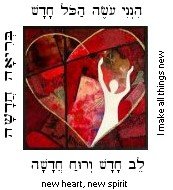
[ The aim of the inner meaning of Torah (παραγγελίας) is love that issues from a pure heart and a good conscience and a sincere faith (1 Tim. 1:5)... ]
01.30.19 (Shevat 24, 5779) Our Torah reading this week (Mishpatim) begins: "Now these are the rules (mishpatim) that you shall set before them" - וְאֵלֶּה הַמִּשְׁפָּטִים אֲשֶׁר תָּשִׂים לִפְנֵיהֶם (Exod. 21:1) - which the sages say implies that the giving of the Torah is the very reason for creation of the world. God created the universe because he wanted a "dwelling place" in the hearts of people (Exod. 25:8). Indeed the climax of Torah revelation is that of the Mishkan (מִשְׁכָּן) and its altar which prefigured the incarnation of the Divine Presence in Messiah. The goal of creation was for people to know the Divine Presence, the Living Torah (התורה החיה), and to know that the LORD your God redeems you from destruction. That is why it says at the outset of the Ten Commandments: אָנכִי יְהוָה אֱלהֶיךָ אֲשֶׁר הוֹצֵאתִיךָ מֵאֶרֶץ מִצְרַיִם מִבֵּית עֲבָדִים – "I am the LORD your God who brought you out of the land of Egypt, out of the house of slavery" (Exod. 20:2). The cross of Yeshua is the central message of Torah: our redemption leads to sanctification as God's beloved, enabled by the Spirit of God to know the truth and to dwell before the Divine Presence.
Delighting in Torah...
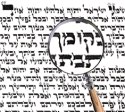
01.30.19 (Shevat 24, 5779) The Scriptures declare: "Blessed is the man who ... delights in the Torah of the LORD (בְּתוֹרַת יְהוָה); all that he does shall prosper" (Psalm 1:1-3). And while it is true that we are no longer 'under' the constraints of the former covenant given at Sinai (Rom. 3:20-28), we are repeatedly instructed to delight in the Torah and to meditate on its precepts day and night (Josh 1:8, Psalm 1:2; 19:8; 119:15, 47, 97; Neh. 8:12, etc.). As it is written in Proverbs: "If you seek it [i.e., the wisdom revealed in the Torah] like silver and search for it as for hidden treasures, then you will understand the fear of the LORD and find the knowledge of God" (Prov. 2:4-5). Indeed, the New Testament says that the "the Torah is holy, and the commandment is holy and righteous and good" (Rom. 7:2), and where it is written, "all Scripture is breathed out by God and is profitable for teaching, for reproof, for correction, and for training in righteousness" (2 Tim 3:16-17), it is evident that the Jewish Scriptures (i.e., the Torah, the Prophets, and the Writings) are meant, since they provide the foundation, context, and the overarching matrix for the later New Covenant revelation... And of course these were the Scriptures Yeshua used to explain his ministry to his followers: "And beginning with Moses and all the Prophets, he interpreted to them in all the Scriptures the things concerning himself" (Luke 24:27; John 1:45). In other words, the Torah has both a logical, a linguistic, and a theological priority for understanding the New Testament Scriptures, and the failure to read in context invariably leads to faulty interpretations and doctrinal errors of various kinds. God "breathed out" (θεόπνευστος) his revelation in order, and the message itself must be understood in light of that order (Gal. 4:4-5).
מָה־אָהַבְתִּי תוֹרָתֶךָ
כָּל־הַיּוֹם הִיא שִׂיחָתִי
mah-a·hav'·tee · toh·rah·te·kha
kol-hai·yom · hee · see·cha·tee

"Oh how I love your Torah;
it is my meditation all the day."
(Psalm 119:97)

Hebrew Study Card
This verse begins the "Mem section" of the Psalm 119 acrostic (מָה־אָהַבְתִּי תוֹרָתֶךָ). Mem is the letter of "water" (mayim), symbolizing the "spring" of the Torah. In traditional soferut (scribal arts), the letter Mem (מ) is formed from two parts: a Vav (ו) and a Kaf (כ), the gematria of which equals 26, the same value for the sacred Name YHVH (יהוה). The Torah (תּוֹרָה) is central to the revelation of the LORD, just as Yeshua is forever "the Voice of the Living God speaking from the midst of the fire" (Deut. 5:26, Matt. 17:1-3).
Unchosen Chosen People...
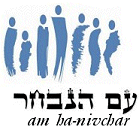
01.29.19 (Shevat 23, 5779) Some people seem to get offended when the Jewish people are called am hanichar (עַם נִבְחָר), the "chosen people" of the LORD (Deut. 14:1-2), though it is important to understand what this really means... Spiritually speaking, being a Jew means that you are indeed "chosen" to take on additional responsibilities to live in holiness for the glory of God and for the welfare of the world (Rom. 2:28-3:2). Therefore a Jew takes the role of being a both a mediator (i.e., "priest") and ambassador for God. The performance of various mitzvot are for the greater purpose of tikkun olam, the "repair of the world." After all, Israel was always meant to be a "light to the nations" (אור לגויים). God's greater plan was for all the families of the earth to come to know Him and give Him glory, as Abraham is av hamon goyim (אַב הֲמוֹן גּוֹיִם), the father of a multitude of nations (Gen. 17:4; Rom. 4:16). "Jewishness" is therefore not an end in itself but rather a means to bring healing truth to the nations. Indeed, the entire redemptive story of the Scriptures is about the cosmic conflict to deliver humanity from the "curse" by means of the "Seed of the woman" who would come. As the Apostle Paul clearly affirmed, any talk of genetics, bloodlines, lineage, and so on are a means to this greater redemptive end (Phil. 3:2-9).
In response to the central mizvah of faith, Yeshua minced no words: "I tell you, many will come from east and west and recline at table with Abraham, Isaac, and Jacob in the kingdom of heaven (מַלְכוּת הַשָׁמָיִם), while the sons of the kingdom will be thrown into the outer darkness. In that place there will be weeping and gnashing of teeth" (Matt. 8:11-12). Here is yet another instance of hyperbole (ὑπερβολή) in Yeshua's teaching, a rhetorical device used to emphasize or exaggerate a contrary or unexpected assumption. The "gatekeepers" of religion will one day be shocked to discover that it is they themselves who are locked outside.
For more on this topic see: "The Unchosen Chosen: Further thoughts on parashat Yitro."
Revelation and Fear...
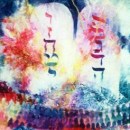
01.28.19 (Shevat 22, 5779) While the Ten Commandments were dramatically uttered amidst thunder, lightning, smoke, and the roar of the heavenly shofar, they essentially restate spiritual and moral truth intuitively known by all people (see Rom. 1:19-32). In light of this, we may wonder why God made such a terrifying presentation of principles already implanted within those he created in his image, and especially to the direct descendants of Abraham, Isaac, Jacob, Joseph, and Moses... After all, God's truth is spoken using a "still small voice" rather than in fiery displays (1 Kings 19:12). In reply, it may be said that while most people intuitively understand the whisper of "right and wrong," they often suppress the voice of conscience because they do not genuinely fear God, and therefore they fail to connect the significance of their choices with the Divine Lawgiver who is the Source of moral reality. They separate, in other words, the idea of transcendental "Supreme Being" (i.e., the cosmic Creator) from the Source of immanent value and meaning (i.e, the Judge of all). The First Commandment, however, reminds us: "I AM (anokhi) the LORD (YHVH) your God (Elohim)," which identifies divine power with righteousness and holiness. The drama of the revelation at Sinai was therefore intended to instill yirat haShem - the awe of God - within the heart, connecting the Supreme Power with moral truth and its implications (i.e., conscience). The Israelites drew back in fear because they realized that the Holy One was present in their private thoughts, attitudes, and motives of the heart, and this produced a sense of dread within them (Exod. 20:19). Moses reassured them, however, by saying that the surrounding terrors - which undoubtedly resembled the wonders they had witnessed in Egypt - would do them no harm if they would heed the Voice of the LORD. In other words, the terrifying glory of Sinai was meant to impart a sense of reverence and to help the people know that the LORD God is the Source of all power and glory...
Note: As a point of Hebrew grammar, the pronoun anokhi (אָנכִי) generally emphasizes the subject: "I (alone) am..," whereas the pronoun ani (אֲנִי), emphasizes the predicate: "I am X," focusing on the predicate adjective X. When God said, "I am (anokhi) the LORD (יהוה) your God (אלהים), he was identifying absolute holiness with utter transcendental power.
Borne by the Spirit...

01.28.19 (Shevat 22, 5779) Sin is defined as the transgression of Torah (i.e., ἀνομία) in the Scriptures (1 John 3:4), and at root such rebellion comes from an unwillingness to trust that what God wants is your deepest happiness. Because of this, sin goes "out of bounds" and expresses itself as the desire to control one's life, to define "the good" (or the bad) on its own terms: to "eat of the tree of the knowledge of good and evil" (Gen. 2:17). Surrender, on the other hand, gives up control and relies upon God's care. It relaxes because it accepts God's love as a gift and not as something to be earned. Meister Eckhart said it this way, "God is not attained by a process of addition to anything in the soul, but by a process of subtraction." In other words, we don't need to do anything to be free, though we must "get out of the way" for the Holy Spirit to do the work in us. "If the Son shall set you free, you shall be free indeed" (John 8:36). Set us free, O precious Lord!
Doing to Believe...
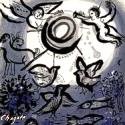
[ The following is related to this week's Torah reading, parashat Mishpatim... ]
01.28.19 (Shevat 22, 5779) From our Torah portion this week we read: "all the people answered with one voice and said, כָּל־הַדְּבָרִים אֲשֶׁר־דִּבֶּר יְהוָה נַעֲשֶׂה / "All the words that the LORD has spoken we will do" (Exod. 19:8; 24:3). It is paradoxical that we must first "do" and then "hear," but in matters of the spirit, we don't really "hear" apart from acting in faith, which is another way of saying that "faith without works is dead" (James 2:17). In other words, our deeds will bring to life our creed, and we will be given light as we act in confidence and trust. As Yeshua said, "If you know these things, happy (μακάριος) are you if you do them" (John 13:17). And may God show us the mercy we need to be "doers" of the word and not hearers only, "deceiving our own selves" (James 1:22). Amen.
כִּי־תאמַר הֵן לא־יָדַעְנוּ זֶה
הֲלא־תכֵן לִבּוֹת הוּא־יָבִין
וְנצֵר נַפְשְׁךָ הוּא יֵדָע
וְהֵשִׁיב לְאָדָם כְּפָעֳלוֹ
ki · to·mar · hen · lo-ya·da·nu · zeh
ha·lo-to·khen · lib·bot · hu · ya·vin
ve'no·tzer · naf·she·kha · hu · yada
ve'he·shiv · le'a·dam · ke'fo'o·lo

"If you say, "Behold, we did not know this,"
does not he who weighs the heart perceive it?
Does not he who keeps watch over your soul know it,
and will he not repay man according to his work?" (Prov. 24:12)

Torah of the Stranger...
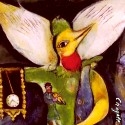
01.28.19 (Shevat 22, 5779) From our Torah portion this week (Mishpatim) we are reminded not to wrong or oppress the "stranger," because we were also once strangers in Egypt (Exod. 22:21). The unspoken assumption here is that since we can understand how it feels to be oppressed and wounded, our suffering can be transformed into compassion for others. But how? How are we set free from our inner pain so that it no longer is a destructive force but rather a means of healing? By understanding our pain is carried by others, too. To acknowledge the pain of others means we also acknowledge our own. We let go of the weapons of blame and retribution when we give voice to the "stranger" within ourselves, when we realize that others share in our suffering: "Do not oppress a sojourner, for you know the soul of a stranger (וְאַתֶּם יְדַעְתֶּם אֶת־נֶפֶשׁ הַגֵּר), for you were strangers..." (Exod. 23:9). The Hebrew verb used here (i.e., yada, to know), implies intimacy, personal and direct understanding. You "know the soul" of the stranger by reliving their place, and by using the "good eye" to see how they share common our pain, joy, hope, and so on. Being awake to the suffering of others helps us find our own healing: We are brought out of the captivity of our inner Egypt into freedom and wholeness. Remembering what it was like to be a stranger helps us extend compassion to ourselves, and that brings healing to our hearts...
You shall be holy to Me...
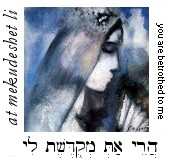
[ The following is related to this week's Torah reading (Mishpatim). ]
01.28.19 (Shevat 22, 5779) "You shall be holy to me" (Exod. 22:31). That is, you shall be "set apart" to know and live in God's love; you shall dwell in the secret place of the Most High, a place prepared especially for you (Psalm 91:1; John 14:2). Properly understood, holiness (קְדֻשָּׁה) expresses the realm of being loved, cared for, and watched over. It is an intimacy that is exclusively hallowed and made sacred. God calls you to his closed off chamber, the "holy of holies" where He dwells; there he invites you in, he welcomes you, he desires to see you (Heb. 4:16). The deeper meaning of holiness is to be spiritually intimate with God. Hence the Spirit of Holiness uses romantic and even sexual imagery in the Song of Songs to express the deepest yearnings we have for connection with God...
Being Present before God...

01.27.19 (Shevat 21, 5779) It is easy enough to hurry past words of Scripture without slowing down to reflect on what is being said. For instance, in our Torah portion for this week (i.e., Mishpatim) we read: "The LORD said to Moses, "Come up to me on the mountain and wait there, that I may give you the tablets of stone with the law and the commandment, which I have written for their instruction" (Exod. 24:12). The Hebrew words vehyei sham (וֶהְיֵה־שָׁם), usually translated as "and wait there," can also be translated as "and be there." But why -- if every jot and tittle of Torah is indeed significant (Matt. 5:18) -- does the text say "come up to the mountain" and then add the superfluous phrase "and be there"? The sages answer that God is asking Moses to be present, be awake, and to be utterly focused – "with all your heart, soul, and might." This is to teach us that to receive God's revelation, we need to show up – "to be there" – earnestly seeking his heart."
"One must keep on pointing out that Christianity is a statement which, if false, is of no importance, and, if true, of infinite importance. The one thing it cannot be is moderately important." - C.S. Lewis (God in the Dock)
International Holocaust Remembrance Day

01.27.19 (Shevat 21, 5779) On January 27, 1945, the largest of the Nazi death camps (Auschwitz-Birkenau in Poland) was liberated by Soviet troops. In October 2005, the UN General Assembly designated this date as "International Holocaust Remembrance Day" to commemorate and honor the victims of the Nazi era. Note that the UN-sponsored date is not the same thing as Yom HaShoah, which occurs in the spring (i.e., Nisan 27).
The systematic genocide of the Jewish people is one of the most heinous and barbarous crimes in the history of humanity. Reflecting on the atrocities should lead each of us to be vigilant to protect the individual liberties of all people at the hands of the State. Any political ideology or religious creed that elevates the interest of the "collective" over the sanctity of the individual is therefore inherently suspect.
For more information about IHRD, see this page.
Judgments of the Law (משפטים)...

[ After the revelation of the Ten Commandments God called Moses up to Sinai again, this time for 40 days and 40 nights, to teach him the details of the commandments and how they were to be applied. The 6th section of the Book of Exodus provides a sampling of these various rules and laws (called "mishpatim" in Hebrew) that God instructed Moses during this time. ]
01.27.19 (Shevat 21, 5779) Shavuah tov, friends. Last week we read in our Torah that exactly seven weeks after the Exodus from Egypt (i.e., 49 days after the first Passover), Moses gathered the Israelites at the foot of Mount Sinai to enter into covenant with the LORD. In a dramatic display of thunder, lightning, billowing smoke and fire, the LORD descended upon the mountain and recited the Ten Commandments to the people. Upon hearing the awesome Voice of God, however, the people shrank back in fear and begged Moses to be their mediator before God. The people then stood far off, while Moses alone drew near to the thick darkness to receive further instructions from the LORD.
In this week's Torah portion (i.e., Mishpatim, Exod. 21:1-24:18) we learn about these additional instructions Moses received on the mountain. The Jewish sages traditionally count 53 distinct commandments in this portion of the Torah, easily making it one of the most "legalistic" (i.e., law-focused) sections of the entire Bible. Civil laws, liability laws, criminal laws, agricultural laws, financial laws, family purity laws, Sabbath laws, and holiday laws are all given in this portion. These various social and civil laws are called "mishpatim" (מִשְׁפָּטִים), a plural word that means "rules" or "judgments" (in this connection note that the mishpatim became the basis for the tradition application of Jewish case law as well as for halakhah).
After receiving these additional rules, Moses descended Sinai and went before the people to reveal to them the words of the LORD. Upon hearing the details, the people responded in unison, "all the words which the LORD has said we will do" (i.e., na'aseh: נַעֲשֶׂה). Moses then wrote down the words of the covenant into a separate scroll (sefer habrit), built an altar at the foot of Sinai, and ordered sacrifices to the LORD to be made. He then took the sacrificial blood from the offerings, threw half upon the altar, and read the scroll of the covenant to the people. The people ratified the covenant by saying, "all that the LORD says we will do and obey" (i.e., na'aseh ve'nishmah: נַעֲשֶׂה וְנִשְׁמָע). Upon hearing this, Moses took the other half of the sacrificial blood and threw it on the people saying, "Behold the blood of the covenant that the LORD has made with you in accordance with all these words" (Heb. 9:18). After this ceremony, Moses, Aaron, and seventy of the elders of Israel ascended Mount Sinai to eat a "covenant affirmation meal" between Israel and the LORD.
Upon returning from the mountain with the elders, the LORD commanded Moses to go back up to receive the tablets of stone inscribed with the Ten Commandments. On the seventh day there, he heard the Voice of the LORD calling to him from the midst of the cloud of glory, and then entered into the Presence of the LORD. He remained on the mountain for a total of forty days and forty nights receiving further revelation about the Mishkan (i.e., Tabernacle) while the Israelites waited for him at the camp down below.
Obedience of Surrender...

[ The following is related to this week's Torah reading (Yitro) and the relationship between surrendering to God (trust) and acts of obedience (works)... ]
01.25.19 (Shevat 19, 5779) The very first duty of the heart is to surrender to God's love for your soul. Surrender of the heart is deeper than outward obedience, since it is possible to obey God for the wrong reasons. Our motivation must be grounded in God's love first of all. True faith is not about establishing your own sense of worthiness but abandoning yourself to God's infinite graciousness... This is what it means to "die to yourself" or to be "crucified" with Messiah: you let go; you relinquish control; you trust God to sustain you, even in your weakest moment. That is the nature of trusting in God's love for you.
Some people seem to think that the way of salvation depends on our obedience. But those who say things like we must "trust and obey," or "believe and repent" either do not understand the radical nature of what it means to truly trust God, or they confuse the idea of surrender with obedience. After all, if we seriously think that we are delivered by our obedience, the focus will be on our will, our "works," our performance, and our religious life will become self-centered, driven, and insecure. Moreover, this willful approach assumes we can obey, that we are capable of attaining some kind of spiritual perfection, and so on. No one denies the requirement to obey God, of course, but the question centers on the means to do just that. What is the source of your power to please God? To remedy matters of self-deception, it is helpful to review the Sermon on the Mount, where Yeshua interprets the Ten Commandments to show us what really lurks within the unregenerated heart.
For more on this topic, see "The Problem of Obedience: Further thoughts on Yitro."
Trusting God's Providence...

01.25.19 (Shevat 19, 5779) The Scriptures reveal that creation is "teleological," which means that it is "going someplace" and that there is order and purpose to our existence. Your life is not adrift in a random universe that is destined to ultimately fade away but is grounded in the Divine Mind and Will that personally supervises and pervades all things. A lack of emunah (faith) has been likened to a passenger flying on an airplane who doesn't believe there is a pilot in the cockpit... Faith in the LORD believes that a single supreme, all-knowing, all-powerful and benevolent spiritual Power directs all things, and that God is the beginning, middle, and end of all conscious meaning, truth, and substance, as it is written: כִּי הַכּל מִיָּדוֹ הַכּל בּוֹ וְהַכּל לוֹ הוּא, "For from him and through him and to him are all things" (Rom. 11:36). A life of faith in the one true God imparts the blessing of shalom (inner peace) and assures the heart that all shall be made well by the love of God. Everything God does is for the very best, and there are no exceptions to this truth (Rom. 8:28).
Our faith that everything God does is for the best is not some rationalization that denies or minimizes the suffering we encounter in life, but is an affirmation that there is an unseen (though knowable) good at work that ultimately will heal us and comfort our shattered hearts... The phrase gam zu l'tovah (גַּם זוּ לְטוֹבָה) is an affirmation that "this too is for good," and that this "this" includes the various challenges and struggles we face during our days of sojourn here on this earth. Every "down" in life prepares us for an "up," with the ultimate end being beatitude and everlasting joy. Challenges draw us closer to God, igniting our hearts to cry out for his Presence and blessing. Even death itself is a passageway to eternal life (Psalm 16:10; 49:15; 1 Cor. 15:12-58). בַּעֲצָתְךָ תַנְחֵנִי וְאַחַר כָּבוֹד תִּקָּחֵנִי - "You guide me with your counsel, and afterward you will receive me to glory" (Psalm 73:24). By faith "we know that if the 'tent' that is our earthly home is destroyed, we have a building from God, a house not made with hands, eternal in the heavens" (2 Cor. 5:1). God is our good Shepherd who leads us along the byways of the desert of this world (Psalm 23:4). In God's presence is total and absolute joy; at his right hand there are pleasures forever (Psalm 16:11). As it is written in the sacred testimony of the prophets: "No eye has seen, nor ear heard, nor the heart of man imagined, what God has prepared for those who love him" (Isa. 64:4; 1 Cor. 2:9). The LORD "will wipe away every tear from our eyes, and death shall be no more, neither shall there be mourning, nor crying, nor pain anymore, for the former things have passed away" (Rev. 21:4, Isa. 25:8). God foresees your way and prepares a place for you (John 14:1-3); he has ready a precious white stone with your "hidden" name inscribed (Rev. 2:17); the table is being set and your place has been reserved...
So be encouraged, friend. You do not need to struggle alone – bitter and afraid that you might be swallowed up in your infirmities… God knows the groan of your struggle and invites you to find solace and strength in Him. "It is enough to open your heart the smallest amount - even the width of a pin - to repent, so that you feel a stab within your heart, like a piercing sting in living tissue, not like a needle thrust into dead flesh" (Menachem Mendel of Kotzk). Bittachon (בִּטָּחוֹן) is a Hebrew word that means trust in God... Those who have bittachon do not worry about the future because their faith fully permeates their heart and mind, enabling them to surrender their cares and burdens to the Lord.
The Divine "Law School"...
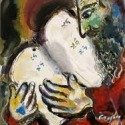
01.25.19 (Shevat 19, 5779) The sages said that "the laws of the Torah were given that people should live by them and not that they should die by them" (Lev. 18:5). This is true, though it is not true without qualification. Legalists and spiritual perfectionists are constantly depressed because they never feel like they've done enough or have fulfilled their duty. They feel inadequate, and this leads to severity and hardness of heart. However, such spiritual failure serves as a "halfway house" to the truth, since the law was intended to reveal our sinful condition and to lead us to a state of brokenness and surrender (Gal. 3:24-25). As is is written, "For from the law comes the knowledge of sin" (διὰ γὰρ νόμου ἐπίγνωσις ἁμαρτίας), but now the righteousness of God (צִדְקַת אֱלהִים) apart from the law is manifested, being witnessed by the law and the prophets" (Rom. 3:20-21, Gal. 3:19). The phrase "apart from the law" means from an entirely different sphere from that which says, "do this and live." It is the "righteousness" (δικαιοσύνη) that comes from God, not from man. The law by itself, though holy, just, and good, is powerless to give life, though it indeed reveals our need for life that graciously is given apart from the law. Love, then, is the miracle of God that alone gives us life and power us to keep the truth of the law -- its inner meaning -- and that love is found in God the truth of Yeshua the Messiah...
These are the words...

01.25.19 (Shevat 19, 5779) From our Torah portion this week (i.e., Yitro) we read: "You shall be treasured and set apart; you shall be a child of the King; you shall be one who helps others draw near to God... these are the words (אֵלֶּה הַדְּבָרִים) that you shall speak" (Exod. 19:5-6). These are the words of love: "And you shall love the LORD your God with all your heart, with all your soul, with all your substance. Set these words (הַדְּבָרִים הָאֵלֶּה), which I command you this day, upon your heart" (Deut. 6:5-6). We store up these words so that, in a holy moment, they are quickened within us and we are able to hear the Voice of the LORD speaking from the midst of the fire that burns within our hearts. As Simone Weil said, "love is revelation, and revelation comes only with love."
Evil and Postmodernism...

01.25.19 (Shevat 19, 5779) Our socially engineered culture promotes devout faith in the values of "tolerance" and "open-mindedness," though the way these words are used barely conceals a cynical indifference and hostility to the view that objective truth – that is, a metaphysical, moral and spiritual order to reality – is transcendentally knowable and logically necessary. Many intellectual "tools" of our time (i.e., the censors of culture, the sham virtue signalling used by the talking heads of mass media, etc.) claim that all worldviews and religious perspectives "should be" deconstructed, qualified, minimized, homogenized, and reduced to equal (in)significance; and, since there is no impartial way to arbitrate such pluralistic convictions about reality, all respective truth claims "should be" understood as relative, subjective, and even as a form of political exploitation or manipulation. Of course this deeply skeptical philosophy is "magically" immune from its own criticism, since to know that skepticism is true is to claim to know something true about reality after all, and yet this contradiction doesn't seem to bother the fake "intellectuals" of our day in the least. Indeed, postmoderns are brainwashed to extol "tolerance" as the preeminent intellectual value, which essentially means extolling apathy and cowardice as the guiding intellectual virtues of thinking. The so-called "tolerant" person of today is someone trained to be without conviction, someone made to be a self-policing coward who is unwilling to stand up for the truth or to risk offending others...
"Those who do not love truth excuse themselves on the grounds that it is disputed and that very many people deny it. Thus their error is solely due to the fact that they neither love truth nor charity, and so they have no excuse" (Blaise Pascal, Pensees). Many people today opt out of the mandate to search for (and to live by) the truth, because, they claim, not everybody agrees on what the truth is, and therefore they are "excused" from the duty... Such people want to be "innocent" of taking sides in the issue, pretending to be "neutral" parties in the debate, and thereby they suppress their judgment rather than risk a commitment. Of course this amounts to the decision not to decide and therefore expresses evasion and indifference to moral and spiritual reality.
Yeshua taught that the "narrow gateway of life" (שַּׁעַר אֶל־הַחַיִּים) is found only by the few (Matt. 7:13-14), and this doubtlessly was said to reprove the mob mentality that regards "tolerance" as the greatest of all virtues and moral conviction as the greatest of all evils ("fanaticism"). There is safety in numbers, the mob reasons, and the life of earnest conviction makes you an outcast of the group, since it exposes the "groupthink" and its inevitable moral evasions.... The enemy of the state today is a person with real conviction; the devil seeks to homogenize society by creating a culture of fear over being marked as a genuine individual. This was true in the days of the Hebrew prophets as it is today. "The voice crying in the wilderness" often cries alone.
God My Salvation (יהוה ישועתי)
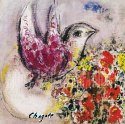
01.24.19 (Shevat 18, 5779) If you are having a tough day today, or if you feel oppressed, lonely, or heavy of heart, let me encourage you to praise God anyway... Offering thanks to the LORD is a powerful weapon for announcing God's triumph over the darkness of the present hour (2 Cor. 10:4). Indeed, the Lord is "enthroned" by the praises (תְּהִלּוֹת) of His people (Psalm 22:3). Therefore give voice to your hope and confidently affirm: "Behold, God is my salvation (i.e., my yeshua, my "Jesus"); I will trust, and will not be afraid; for the LORD God is my strength and my song, and he has become my salvation" (Isa. 12:2).
הִנֵּה אֵל יְשׁוּעָתִי אֶבְטַח וְלא אֶפְחָד
כִּי־עָזִּי וְזִמְרָת יָהּ יְהוָה
וַיְהִי־לִי לִישׁוּעָה
hee·neih · el · ye·shoo·ah·tee · ev·tach · ve·loh ·ef·chad,
kee - oh·zee · ve·zeem·raht · Yah · Adonai
vai·hee - lee · lee·shoo·ah

"Behold, God is my salvation; I will trust, and will not be afraid;
for Yah the LORD (יָהּ יְהוָה) is my strength and my song,
and he has become my salvation (יְשׁוּעָה)."
(Isaiah 12:2)

Download Study Card
Therefore "do not be grieved (even over yourself), for the joy of the LORD is your strength" (Neh. 8:10). Affirming the love, goodness, faithfulness, compassion, and salvation of God is a powerful way to defeat the enemy of our souls, who regularly seeks to discourage us. King David constantly asked God to help him in his spiritual struggles. "Though I walk in the midst of trouble (בְּקֶרֶב צָרָה), you preserve my life; you stretch out your hand against the wrath of my enemies, and your right hand delivers me" (Psalm 138:7). "For the enemy has pursued my soul; he has crushed my life to the ground; he has made me sit in darkness like those long dead. Therefore my spirit faints within me; my heart within me is appalled" (Psalm 143:2-3). Though we must fight through the stubborn darkness and yet endure ourselves, "the LORD is near to the brokenhearted and saves the crushed in spirit (Psalm 34:18). Indeed, the Lord God is far greater than your heart's sin and will one day entirely deliver you of sin's effect and influence. Amen, and let it be, LORD...
Behold the goodness and kindness of our God! Where it is written: "Know Him in all your ways" (Prov. 3:6), this of course includes the way of your struggles and the way of your transgressions... Acknowledge these ways before Him, too, and trust that God will help you overcome fear and depart from your sin (Prov. 28:13). As it is said, "Because he is devoted to Me I will deliver him; I will keep him safe, for he knows My Name. When he calls to Me, I will answer him; I will be with him in trouble; I will rescue him and honor him. With long life I will satisfy him and show him My salvation" (Psalm 91:14-16).
Update: Speaking of having a tough day... It seems that Microsoft Update recently added some additional "system updates" to my computer that are not compatible with the software I use to make Hebrew for Christians, so I've been very busy today trying to undo the damage... In the future it would be good to recreate this website to make it more accessible for phone and tablet users, but that is a huge undertaking, requiring a lot of downtime and money, so it will have to wait now (to give you some idea: the site has thousands of HTML pages, PDF files, audio files, as well as thousands of graphic and art files, etc.). Thank you for your prayers as I work behind the scenes trying to keep the site running. - John
Torah of Faith (תּוֹרַת הַאֱמוּנָה)...

[ The following is related to our Torah for this week, Parashat Yitro, and the giving of the Ten Commandments at Sinai in particular... ]
01.24.19 (Shevat 18, 5779) When asked how many commandments are in the Torah, most Jews will answer 613, based on Jewish tradition (the number 613 is sometimes called "taryag" (תריג), an abbreviation for the letters Tav (400) + Resh (200) + Yod (10) + Gimmel (3) = 613). Despite several attempts made over the centuries, however, there has never been a definitive list of these commandments, and of those who tried to compile such, no two agree... Some say the number 613 comes from a fanciful midrash that teaches that since there are 365 days in a year (corresponding to the 365 negative commandments) and 248 "parts" of the body (corresponding to the positive commandments), each day we should use our body to serve God. Regardless of the exact count, however, the Talmud followed the Apostle Paul by understanding all the Torah's commandments to be derived from the Ten Commandments given at Sinai, the most basic of which is the very First Commandment, namely, "I AM the LORD your God (אָנכִי יְהוָה אֱלהֶיךָ) who brought you out of Egypt, out of the house of slavery" (Exod. 20:2). This foundational commandment was later restated by the prophet Habbakuk as: וְצַדִּיק בֶּאֱמוּנָתוֹ יִחְיֶה / "The righteous person will live by faith in God" (Hab. 2:4; Gal. 3:11; Heb. 10:38). In other words, all of the commandments of God come down to your sacred duty to receive the truth of God's love: אָנכִי יְהוָה אֱלהֶיךָ.
So if you hear people discussing the 613 commandments of Torah, be sure to ask them which list of "613" they mean, and also be sure to remind them that whatever list they recommend, the central commandment that embodies all the rest is to have faith, to believe, to show up, to look to the LORD -- at this moment, in this hour.
Hope in our Lament...
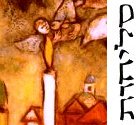
01.24.19 (Shevat 18, 5779) Dear Lord, in the worst of our moments, thank you for seeing the Savior within us; thank you for heeding the hope that the Spirit imparts.... "When my heart was embittered, when I was pierced in heart, I was brutish and ignorant; I was like a beast toward you. Nevertheless, I am continually with you; You hold my right hand" (Psalm 73:21-23). Despite his lament, however, the psalmist affirmed that he was always with God - notwithstanding his ignorance, his complaint of heart, his doubts, fears, and so on... God is not driven away by our pain and confusion, but on the contrary, he takes us by the hand and will not let go: "It was I who taught Ephraim to walk; I took them up by their arms, but they did not know that I healed them" (Hos. 11:3).
כִּי יִתְחַמֵּץ לְבָבִי וְכִלְיוֹתַי אֶשְׁתּוֹנָן
וַאֲנִי־בַעַר וְלא אֵדָע בְּהֵמוֹת הָיִיתִי עִמָּךְ
וַאֲנִי תָמִיד עִמָּךְ אָחַזְתָּ בְּיַד־יְמִינִי
ki · yit·cha·metz · le·va·vi · ve·khil·yo·tai · esh·to·nan
va·a·ni · va·ar · ve·lo · e·da · be·he·mot · ha·yi·ti · i·makh
va·ani · ta·mid · i·makh · a·chaz·ta · be·yad · ye·mi·ni

"When my heart was embittered, when I was pierced in heart,
I was brutish and ignorant; I was like a beast toward you.
Nevertheless, I am continually with you; You hold my right hand."
(Psalm 73:21-23)

The heart of the psalmist was embittered or "soured" (literally "leavened" with chametz) over the thought that the wicked flourish in this world while the righteous often are afflicted and gravely suffer... Such (envious) thoughts hurt like a sword that penetrated the heart, "a shtuken nisht in hartz," in Yiddish. Note, however, that the pain came because the mind was focused on temporal things, and therefore the psalmist judged himself as being ignorant, "like a beast" that has no consciousness of eternity.
"On Judgment Day, I like everyone else, will be allowed to hang all my unhappiness and suffering on a branch of the great Tree of Sorrows. Then, when I have found a limb from which my sorrows can dangle, I will walk slowly around that tree. Do you know what I will do on that walk? I will search for a set of sufferings I might prefer to those I have hung on the tree. But search as I may, I will not find any, and in the end, I will freely choose to reclaim my own personal set of sorrows rather than that of another. I will leave that tree wiser than when I got there, and I will be ready to walk toward the Tree of Life." (Hasidic Tales: Martin Buber).
Again, dear Lord, in the worst of my moments, thank you for seeing the Savior within me; thank you for heeding the hope that the Spirit imparts...
Where do you live?
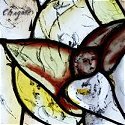
01.24.19 (Shevat 18, 5779) The other day someone asked me where I lived, and I answered in terms of a physical address - a city, street name, house number, and so on. "Where we live" is usually defined by locating ourselves on a map of some kind, pointing to some physical place. Spiritually-speaking, however, "where we live" resolves to a cluster of philosophical questions about the significance of our lives, about how we choose to interpret our experience, about how we direct our focus, about what we regard as ultimately real, and so on. The Ten Commandments begin: "I AM the LORD your God" (אָנכִי יְהוָה אֱלהֶיךָ), which teaches us that the whole Torah was spoken to enable us to say that where we live is before the Divine Presence in all our ways (Psalm 16:8).
Lawful Use of the Law...

01.24.19 (Shevat 18, 5779) "For all who are led by the Spirit of God are children of God" (Rom. 8:14). Are you led by the heart of God in your daily life, in the midst of your joys, sorrows, and tribulations? This is essential, after all. Do you live in the freedom of Messiah? If you are led by the Spirit, you no longer labor under the law of sin and death but you are set free to experience a new order of reality (Rom. 8:2). The law is holy, righteous, and good, of course, but it also reveals our lethal spiritual condition (Rom. 7:7-25) and therefore it reveals our great need for a Savior, the Messiah who is the end (τέλος) of the law (Rom. 10:4; Gal. 3:21-24, 4:4-5). Those who advocate "Torah observance" do not understand the divine purpose of the law itself (1 Tim. 1:7), and those who teach the law as the means of finding life "frustrate the grace of God" (Gal. 2:19-21). The "lawful use of the law" demonstrates the holiness of God and serves as a mirror of our sinful condition, but the "unlawful use of the law" seeks righteousness apart from the saving agency of Messiah who (alone) is the "righteousness of God." The end of the commandment is "love that issues from a pure heart and a good conscience and a sincere faith" (1 Tim. 2:5). And just as Yeshua came not for the righteous but for sinners (Mark 2:17), so the law was not given for the righteous, but for those who know they need deliverance from the power of indwelling sin (Rom. 3:20, 7:7).
Note: For more on this essential topic, see "The Lawful Use of the Law."
Vanity and Hope...

01.23.19 (Shevat 17, 5779) Life in this world is likened to a vapor or a passing shadow (Psalm 144:4). Nothing abides; good things here never last; and we labor under the unmentionable anxiety that death will separate us from everyone and everything we love... Tragically, all that we know in this life - all that we love and cherish - will eventually be taken away from us, and therefore, as Socrates once said, philosophy may be understood as the practice of preparing yourself for death. As I've said before, death is the essential problem of life, and until we feel the pathos and utter dismay of its reality, until we face the grievous heartbreak of loss, we will never yearn for deliverance, for salvation, and for the remedy of our lethal condition offered by Yeshua (John 3:16; 10:28). After all, the gospel speaks to those who know they are undone and dying, to those who are afraid of their inner condition, and therefore the good word is given to those who understand that what they really need is a new and undying life, a world of everlasting comfort, healing, restoration, and unending love. If you are not hungering and thirsting for eternal life, then you are not awake to the pain, loss, and heartache of this world; if you are not yearning for salvation, you are still pretending that you will live forever and deny the frailty common to all people. Yeshua is the resurrection and the life; He is the answer to the problem of death (John 11:25). Because he lives we also will live (John 14:19). The great promise of God is summarized in a vision of a great mountain wherein all things shall be remade and healed: "And in this mountain will the LORD of hosts (יְהוָה צְבָאוֹת) will prepare a lavish banquet for all peoples on this mountain; A banquet of aged wine, choice pieces with marrow, and refined, aged wine.; and on this mountain he will swallow up the shroud that is over all the peoples, the woven covering that is over all the nations; He will swallow up death forever in victory (לָנֶצַח); and the Lord GOD will wipe away tears from off all faces; and the reproach of His people will He take away from off all the earth; for the LORD hath spoken it" (Isa. 25:6-8). Because of Yeshua God will wipe away all our tears, our mourning shall be turned to dancing, our losses shall be restored, and God will devour death and kill its power in glorious victory (1 Cor. 15:55). Amen. Faith affirms that "God will redeem my soul from the power of the grave: for he shall receive me. Selah" (Psalm 49:15). Practicing hope in God's promise enables us to transform the present moment and regard it as a sacred sign for the blessing to be fully revealed (Rom. 8:18). Meanwhile we must move forward by faith, looking to God and trusting his love despite the losses we inevitably experience in this temporal and fallen world. We groan for the completion of our redemption; we mourn in our hope; we cry out for deliverance.
כִּי־יָדַעְתִּי מָוֶת תְּשִׁיבֵנִי
וּבֵית מוֹעֵד לְכָל־חָי
ki-ya'dati mavet teshiveni
u'vet mo'ed le'khol-chai

"For I know that you will bring me to death
and to the house appointed for all living."
(Job 30:23)

Life in this world is called chayei sha'ah (חַיֵּי שָׁעָה, "fleeting life") in Jewish thought. Chayei sha'ah is the life of "vanity of vanities," a vapor that soon dissipates in the winds of time. In light of eternity, King David reminds us that our days are as a few "handbreadths."
We must be careful not to look superficially at things, at our present circumstances, and thereby overlook that God is in control of all our days. We must look past the "what" of life to encounter the "Who"; we must go past the realm of something to experience Someone.
David was at the point of death itself. He felt frail and alone. Like Solomon, he questioned the meaning of life. What good are riches or the esteem of others when everything is fading like a flower of the field? David realized that life itself is a kind of suffering. The whole of creation groans. The turning point came when he realized that he was asking the wrong kind of question. Since the things of life are fleeting and empty, a mere change of circumstance is never enough. It is not a question of seeking a "what," but rather a "Who." Instead of focusing on external matters, David inwardly accepted the Presence of God in everything: "And now, my Lord, to what do I look? My hope is in you" (Psalm 39:7).
The whole of creation was made subject to vanity, but it was done so for the sake of hope (Rom. 8:20). Hope is the substance of chayei olam (חַיֵּי עוֹלָם), or eternal life (Rom. 8:24). Because God ordered creation this way, we must turn our attention away from the flux of life to discover the Rock of Israel (צוּר יִשְׂרָאֵל). God alone is the Substance of our hope. He "hears the groaning of the prisoner and sets free those who are subject to death" (Psalm 102:20).
The Law and the Spirit...
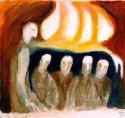
[ The following is related to this week's Torah reading (Yitro). Please read the Torah portion to "find your place" here. ]
01.23.19 (Shevat 17, 5779) "On the first day of the third month after leaving Egypt, the people of Israel came to the desert of Sinai" (Exod. 19:1). The revelation at Sinai is celebrated each year during the festival of Shavuot ("Weeks"), which occurs exactly seven weeks (49 days) after the Passover (because of this, Shavuot is sometimes called "Pentecost," meaning "the 50th day"). The 49 day countdown from the day after Passover was later commemorated as the period of "counting the omer." In Jewish tradition, Shavuot is called the "time of the giving of our Torah," the culmination of the Passover deliverance, though it is also the time when the Holy Spirit (רוּחַ הַקּדֶשׁ) was poured out to the followers of Yeshua in fulfillment of the promised New Covenant (Acts 2, Jer. 31:31-33). Note carefully that the advent of the Spirit occurred after the resurrection of Yeshua from the dead, which implies that the festivals of the LORD were not restricted to the "old testament" economy, but on the contrary, the New Covenant was intended to impart the revelation of Torah within the heart, as it says: "I will give my Torah within them (נָתַתִּי אֶת־תּוֹרָתִי בְּקִרְבָּם) and on their hearts I will write it" (Jer. 31:33; Heb. 8:10; 10:16).
The Torah of Love...

01.23.19 (Shevat 17, 5779) God does not love you based on your obedience, but his love for you will lead you to obedience... It is only after accepting that you are accepted despite yourself -- despite your inherent inability to please God, despite your incurably sick heart, despite your disobedience, sin, and so on -- it is only then that earnest, Spirit-enabled obedience may spontaneously arise within your heart. In that sense "obedience" is like falling in love with someone. It is your love that moves you to act and to express your heart, and were you prevented from doing so, you would undoubtedly grieve over your loss... Therefore the "law of the Spirit of Life in Messiah" is first of all empowered by God's grace and love. We walk by faith, hope, and love - these three. And this explains why the very first step of teshuvah (repentance) is to love God: Shema! Va'ahavta et Adonai... The first work of faith is to believe in the miracle that God's love is "for-you-love..."
If you still find yourself operating from a sense of God's conditional acceptance, you will undoubtedly need to repeat the same sins over and over until your heart is finally convinced of its incurably wretched state. You must first be utterly sick of yourself to believe in the miracle of God's deliverance. Only after this does the good news of the gospel find its opportunity to speak...
Life Worth Living...

01.2.19 (Shevat 16, 5779) It is common to encounter people today who refuse to believe that God exists, not because there are compelling reasons to do so, but simply because they do not want God to exist, and therefore they willfully suppress the intuitions of logic, the apprehension of value, the awareness of glory in creation, and the sentiments of conscience, since all these experiences point to the realm of moral and spiritual reality. As it is stated in our Scriptures: "For that which may be known of God is manifest in them; for God has revealed it to them. For the invisible attributes of him from the creation of the world are clearly seen, being understood by the things that are made, even his eternal power and divinity; so that they are without excuse" (Rom. 1:19-20). Indeed, atheists and agnostics dogmatically pontificate that there is no transcendental "moral law" or Moral Lawgiver before whom all moral agents will give account, again, not because reason indicates that this is so, but on the contrary, merely because they wish to be "free" to do whatever they want and to pursue their own selfish desires. In this regard the atheist merely chooses to close his mind because he does not want to see. As the Baal Shem Tov once said, "The world is full of wonders and miracles but man takes his little hand and covers his eyes and sees nothing." Indeed the deification of the self makes the soul a stranger to God and blind to moral and spiritual reality. The modern man will split hairs and fastidiously object to questions of truth and meaning all for the sake of living life as he pleases, on his own terms, without recognizing any moral authority beyond himself....
Socrates famously said that "the unexamined life is not worth living," which of course implies that a life worth living is discovered by asking questions, searching for meaning, pursuing truth, celebrating wonder, and living with integrity. "Seek the LORD while He may be found..." Contrary to the ideals of worldly culture, the meaning of life is not found in the pursuit of personal happiness (or pleasure) but rather in the pursuit of truth and meaning. Apathy about such matters is a symptom of lifelessness: it is to be spiritually dead while seemingly "alive." Indifferent people are likened to those who go through the outward motions of life without ever making inner traction with it... The righteous, even in death, are called "living"; the wicked, even while alive, are called "dead" (Berachot 18a).
"Truth is so obscure in these times, and falsehood so established, that, unless we love the truth, we cannot know it." - Blaise Pascal
The dialectic of asking and answering questions helps us detect the assumptions that underlie our everyday thinking, often revealing wonders that pervade our lives. The failure to seriously ask the "big questions" of life, for instance, "What am I?" "Where did I come from?" "Why am I here?" "Where am I going?" and "What does it all mean?" is to abandon what makes life itself worth living... It is to give up the quest to find meaning, purpose, hope, and a sense of destiny.
"How did I get into the world? Why was I not asked about it and why was I not informed of the rules and regulations but just thrust into the ranks as if I had been bought by a peddling shanghaier of human beings? How did I get involved in this big enterprise called actuality? Why should I be involved? Isn't it a matter of choice? And if I am compelled to be involved, where is the manager—I have something to say about this. Is there no manager? To whom shall I make my complaint?"- Søren Kierkegaard
Denying the Evident...

01.22.19 (Shevat 16, 5779) Sin is a sickness of heart, to be sure, though its ongoing lethality derives from the willful suppression and denial of the truth of God. It is written, "The wrath of God is revealed from heaven against all ungodliness and unrighteousness of men, who suppress (i.e., "hold down," κατέχω) the truth by their unrighteousness, because that which can be known about God is evident within them, for God has revealed it to them" (Rom. 1:18-19). People "suppress the truth in unrighteousness," which means they choose to deny reality for the sake of their selfish illusions (John 3:19-20). Tragically, the natural state of the soul prefers selfish inner darkness than the light of God's righteousness (Rom. 8:7; John 3:19-21). In this connection we note that Paul states that the Ten Commandments do not reveal "new" moral truth, since sacred reality is "imprinted" within every created soul (John 1:9; Acts 17:24-28). Where Paul says, "against all ungodliness" he refers to our universal duty before the Living God (בין אדם למקום); and we he says "all unrighteousness," he refers to our universal duty toward other people (בין אדם לחברוֹ). The "invisible things of God" are seen so vividly that people are quite literally "without excuse" (ἀναπολόγητος) for their evasion and rejection of the Divine Presence - a disposition that constitutes rebellion, treason, and chillul Hashem (Rom. 1:20). Ultimately, then, willfully refusing to turn to God in teshuvah reveals the condition of spiritual death (מוות רוחני), since the soul remains under the wrath of God (ὀργὴ θεοῦ) - a desolate condition devoid life, light, truth, meaning, purpose, and eternal love (John 3:36).
May God help us turn to him today. Amen.
The "New Covenant" at Sinai...
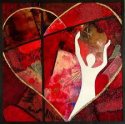
01.22.19 (Shevat 16, 5779) We read in our Torah portion this week (Yitro) how the LORD revealed the Ten Commandments to the Israelites at Sinai, a dramatic event that some say represented the giving of the law, or the "Old Covenant," to Israel. Now while a case can surely be made that the revelation at Sinai represented an "older covenant" (see 2 Cor. 3:14; Heb. 7:18, 8:6,13, and here), when looked at from another perspective, Sinai actually represented a sort of new covenant, since it was given later and served as a proviso to the covenant given earlier to Abraham (Gal. 3:18). The culmination of the covenant at Sinai was the revelation of the altar (i.e., the Tabernacle), which pictured the sacrificial blood "covering" the tablets of God's judgment. This, in turn, recalled Abraham's great sacrifice of his son Isaac (the Akedah), which further recalled the very first sacrifice of the Bible, namely the lamb slain in the orchard of Eden to cover the shame of Adam and Eve's sin (Gen. 3:21; Rev. 13:8). Therefore it was the promise God made to Eve regarding the "Seed to Come" that is the original covenant (Gen. 3:15), and it was this covenant that was later fulfilled by Yeshua, the "Serpent Slayer" of God (Num. 21:9; John 3:14). This is the "Gospel in the Garden" message, the original promise of the lamb of God that was slain from the foundation of the world... In other words, the "new covenant" (בְּרִית חֲדָשָׁה) may better be understood as the fulfillment of the original covenant, the promise to redeem all of humanity from the curse of sin and death. The redemptive plan of God therefore moves in an ascending circle. The "Tree of Life" reaches back to the orchard of Eden and extends into the World to Come...
Because there is so much confusion regarding the topic of the role of the law, particularly among "Messianic believers," I would like to reiterate a few things mentioned elsewhere on this site. Let me first remind you that the legal aspect of the "Torah" refers to the subset of the written Torah called Sefer Ha-Brit (סֵפֶר הַבְּרִית), a portion that defined various ethical, social, and ritual obligations given at Sinai (Exod. 24:7-8). It is a "category mistake" to simply regard the first five books of the "Torah" as the "law," since the law was given later in sacred history, after the Exodus. Moreover, the Book of Genesis reveals that the very first "priest" (i.e., kohen: כּהֵן) was neither a Jew nor a Levite nor a descendant of Aaron, but rather Someone who is said to have "neither beginning of days nor end of life" but is made like (ἀφωμοιωμένος) the Son of God, a priest continually (Heb. 7:3). This priest, of course, was Malki-Tzedek (מַלְכִּי־צֶדֶק), the King of Salem (מֶלֶךְ שָׁלֵם) to whom Abraham offered tithes after his victory over the kings (Gen. 14:18). The author of the Book of Hebrews makes the point that the priesthood of Malki-Tzedek is greater than the Levitical priesthood and is therefore superior to the rites and services of the Tabernacle (Heb. 7:9-11). It was to Malki-Tzedek that Abram (and by extension, the Levitical system instituted by his descendant Moses) gave tithes and homage -- and rightly so, since Yeshua is the great High Priest of the better covenant based on better promises (Heb. 8:6). As the Scriptures teach, in everything Messiah has preeminence (John 5:39; Luke 24:27; Col. 1:18).
Torah of the Neighbor...
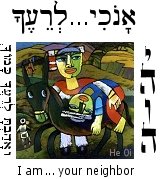
[ The following is related to this week's Torah reading (Yitro)... ]
01.22.19 (Shevat 16, 5779) The Ten Commandments are often divided into two basic groups or categories. The first five commandments are said to be between man and God (i.e., ben adam lechavero: בֵּין אָדָם לְחֲבֵרוֹ), and contain 146 words; whereas the second five are said to be between man and other people (i.e., ben adam la-Makom: בֵּין אָדָם לְמָקוֹם), and contain 26 words, the same value as the Name of God, YHVH (יהוה). In this connection we note that the Ten Commandments begin with "I AM" (אָנכִי) and end with "[for] your neighbor" (לְרֵעֶךָ), which when joined together says, "I am your neighbor." In other words, the LORD Himself is also found in your neighbor... When we love our neighbor as ourselves (אָהַבְתָּ לְרֵעֲךָ כָּמוֹךָ), we are demonstrating love for God. But who, then, is your neighbor? You are -- to every other soul you may encounter this day (Luke 10:36).
The First Commandment...

[ The following is related to this week's Torah reading, parashat Yitro... ]
01.22.19 (Shevat 16, 5779) I mentioned the other day (see below) that the Hebrew word "mitzvah" (מִצְוָה) is really about connection to God (i.e., the root צוה means to bind or unite). Rabbi Levi said, "When the Holy One spoke to the people of Israel, each one felt personally spoken to by God, and thus it says in the singular, 'I am the Eternal One, your God.'" Indeed the first commandment at Sinai was to accept the reality of our personal deliverance by the LORD: "I am the LORD your God (אָנכִי יְהוָה אֱלהֶיךָ), who brought you (singular) out of the land of Egypt, out of the house of slavery" (Exod. 20:2). In fact, the Hebrew text of the Torah reveals that God used the second person singular (not plural) for all the verbs throughout the Ten Commandments: "you (singular) shall have no other gods beside me"; "you (singular) shall not take the Name of the LORD your God in vain," and so on. The very first commandment, however, is the starting point for all that follows. Until you are personally willing to accept the LORD as your God and to connect with Him as your own Deliverer and King, the rest of the commandments are not likely to be heeded.
אָנכִי יְהוָה אֱלהֶיךָ
אֲשֶׁר הוֹצֵאתִיךָ מֵאֶרֶץ מִצְרַיִם
מִבֵּית עֲבָדִים
a·no·khi · Adonai · E·lo·he·kha
a·sher · ho·tze·ti·kha · me·e·retz · mitz·ra·yim
mi·bet · a·va·dim

"I am the LORD your God,
who brought you out of the land of Egypt,
out of the house of slavery"
(Exod. 20:2)
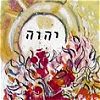
Hebrew Study Card
It is noteworthy that God referred to himself using the phrase asher hotzetikha me'eretz mitzrayim ("who delivered you from the land of Egypt") instead of identifying Himself as the Creator of heaven and earth (Gen. 1:1). This is because the purpose of creation is to demonstrate God's redemptive love and to be known as our Savior and Redeemer, just as Yeshua is the "Lamb slain from the foundation of the world" (Rev. 13:8; 1 Pet. 1:18-20; Eph. 1:4; 2 Tim. 1:9). "All things were created by Him (i.e., Yeshua), and for Him" and in Him all things consist (συνεστηκεν, lit. "stick together") (Col. 1:16-17). Creation therefore begins and ends with the redemptive love of God as manifested in the Person of Yeshua our Mashiach, the great Lamb of God... He is the Center of Creation - the Aleph and Tav - the Beginning and the End (Isa. 44:6; Rev. 1:17). All the world was created for the Messiah: "For from him and through him and to him are all things. To him be glory forever. Amen" (Rom. 11:36).
Torah of Trees...
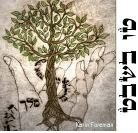
[ Today is the holiday of Tu B'Shevat, Israel's National Arbor Day... ]
01.21.19 (Shevat 15, 5779) The Torah alludes that human life is like "the tree of the field," i.e., כִּי הָאָדָם עֵץ הַשָּׂדֶה, Deut. 20:19), and many people therefore observe Tu B'Shevat as time to assess man's place within creation as well. Since God created the world for a habitation (Isa. 45:18), some have pictured the world itself as a "great tree" with human beings as its fruit. Indeed, Yeshua often used such agricultural images in his parables. For example, he explained that people are known by the "fruits" of their lives (Matt. 7:16-20). He likened the spread of his message in terms of "sowing and reaping" (Matt. 13:3-23) and compared the Kingdom of Heaven to the secret working of a mustard seed (Matt. 13:31-32). Yeshua regarded the world as a "field" for planting with different "types of soil" (Matt. 13:38-43), and warned of the "great harvest" of souls at the end of the age (Luke 10:2; Matt. 13:30). He pointed to signs from a fig tree to indicate the nearness of the prophesied End of Days (Matt. 24:32-33). Yeshua also used the metaphor of a "vine and its branches" to explain how his followers are to be connected to Him (John 15:1-6).
For more on this subject, see "The Torah of Trees: Further thoughts on Tu B'Shevat."
The Mitzvah Connection...
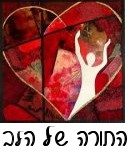
01.21.19 (Shevat 15, 5779) The Hebrew word "mitzvah" (מִצְוָה) is often translated as "commandment," though its basic idea is about connection to God (i.e., the root צוה means to bind or unite). Being connected with the Almighty means talking with him, relating to him as your heavenly Father, and trusting that he esteems you as his beloved child. Whatever else you may think about the commandments of God, this idea of a love connection is foundational and essential. The very first of the Ten Commandments is anochi Adonai Elohekha, "I am the Lord your God," which invites you to open your heart to receive the touch of the Spirit of God. There is no love like that of the Lord, but you can't feel that love if you don't speak to Him, pouring out your heart and clinging to the truth of his love for you....
בִּטְחוּ בוֹ בְכָל־עֵת עָם
שִׁפְכוּ־לְפָנָיו לְבַבְכֶם
אֱלהִים מַחֲסֶה־לָּנוּ סֶלָה
bit·chu · vo · ve·khol-et · am
shif·khu · le·fa·nav · le·vav·khem
E·lo·him · ma·cha·seh-la·nu · se·lah

"Trust in him at all times, O people;
pour out your heart before him;
God is a refuge for us. Selah."
(Psalm 62:8)

Pouring out your heart to God in an honest, transparent, and earnest way is sometimes called hitbodedut (הִתְבּוֹדְדוּת). After we "talk our hearts out" before the Lord, in our emptiness we can begin to truly listen, as it says, "In returning and rest you shall be saved; in quietness and in trust shall be your strength" (Isa. 30:15). Only after we sigh deeply and surrender are we receptive to the voice of the Spirit's whisper. "Blessed are all those who wait for Him" (Isa. 30:18). We wait, we abide, even when God takes his time or does not immediately intervene. We do not lose heart, for we find strength when we trust in God's love... The Light of the world still shines: Yeshua, be my inner word, my heart, and my groaning for life today, and forevermore, amen.
Since the essence of Torah is connection to God, the greatest blessing is to be filled with a steadfast desire to draw close to him, to experience hunger and thirst (visceral yearning) for God's presence and touch. Holy desire – expressed in the yearning of heartfelt prayer – is therefore a state of true blessedness, and the more desperate our need for God the more blessed we are. It is our desire, our holy need, that creates a bond between our soul and its Creator, and that is the deeper meaning of mitzvah... "Blessed are those who hunger and thirst for righteousness, for they shall be satisfied" (Matt. 5:6).
New Torah Audio Lesson...
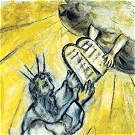
01.21.19 (Shevat 15, 5779) Shalom chaverim. Because our Torah reading this week (i.e, parashat Yitro) includes the account of the great revelation of the Torah at Sinai, I created an audio podcast that considers the Ten Commandments of the Torah (Aseret Hadibrot) in light of the New Covenant of Yeshua. In addition, the basic chronology of the Sinai experience is examined and how key events were enshrined in the holidays of Shavuot (Pentecost) and Yom Kippur (the Day of Atonement), among others. I hope you find it helpful.
Note: Our home furnace broke down the other day and we've been without heat for a couple days now. I had hoped it was only a problem with the pilot, but instead it turned out the coils are broken and the furnace is cracked, requiring a complete replacement. We are getting a new furnace but it will be costly. Your prayers for us are appreciated, friends!
The Fruit of our Words...

[ Tonight begins Tu B'Shevat, the "new year" for trees... and a good time to reflect on the idea of fruitfulness and the fruit of the Spirit in our lives... Yom tov, chaverim! ]
01.20.19 (Shevat 14, 5779) Yeshua said that as a tree is to its fruit, so is a person's heart is to his speech. Our words arise from an underlying source and root: "I tell you, on the Day of Judgment people will give account for every careless word (πᾶν ῥῆμα ἀργὸν) they speak, for by your words you will be justified, and by your words you will be condemned" (Matt. 12:36-37). First note that the phrase translated "every careless word" can be understood as "every 'workless' word," that is, every vain or empty word spoken, every broken promise, every insincere utterance, and so on. Second, note that there is a relationship between naming and being in Hebrew thought, and indeed the Hebrew word davar (דּבר), usually translated as "word," can also mean "thing." This suggests that our words define reality - not in an absolute sense, of course - but in terms of our perspective and attitude, and for that we are held responsible before the LORD. Since our words express our thoughts, Yeshua wants us to make up our minds: "Either make the tree good and its fruit good, or make the tree bad and its fruit bad, for the tree is known by its fruit" (Matt. 12:33).
Listen to the words of your heart and understand that they are devarim (דְּבָרִים) "things" that are defining the course of your life right now. Our thoughts and words "exhale" the breath of God that was given to each of us. In a very real sense they serve as "prayers" we are constantly offering.... And may it please our gracious and long-suffering LORD to answer the cry of our heart: "Let the words of my mouth and the meditation of my heart be acceptable in your sight, O LORD, my Rock and my Redeemer." Amen.
יִהְיוּ לְרָצוֹן אִמְרֵי־פִי
וְהֶגְיוֹן לִבִּי לְפָנֶיךָ יְהוָה צוּרִי וְגאֲלִי
yee·yoo · le·ra·tzon · eem·rei-fee
ve·heg·yohn · lee·bee · le·fa·ney'·kha · Adonai · tzoo·ree · ve·go·a·lee

"Let the words of my mouth and the meditation of my heart
be pleasing to You, O LORD, my Rock and my Redeemer."
(Psalm 19:14)
Hebrew Study Card

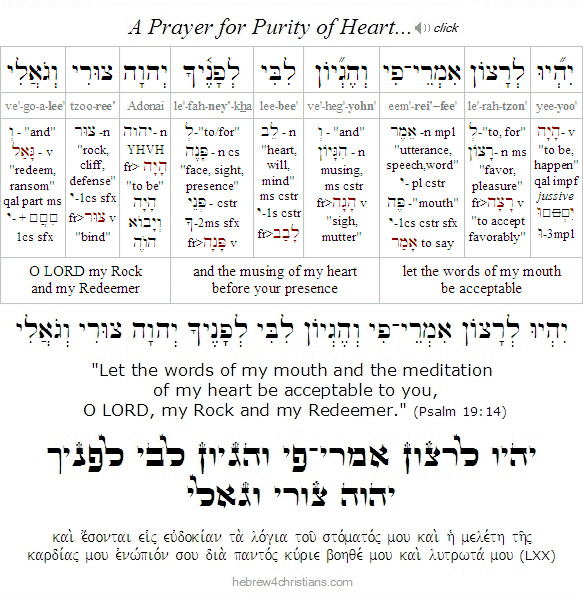
Parashat Yitro - יתרו

01.20.19 (Shevat 14, 5779) Shalom friends. In our Torah this for this week (i.e., Yitro), we read how the Israelites reached the region of Mount Sinai where Moses told them that if they were willing to be God's treasured people (עַם סְגֻלָּה) they would become a "kingdom of priests and a holy nation." The people accepted the invitation and proclaimed, "All that God has spoken, we shall do" (Exod. 19:3-8). A few days later - on the 49th day after the Exodus (later commemorated as "Shavuot" or "Pentecost") - the LORD descended amidst thunder, lightning, billowing smoke, fire, and the blast of the heavenly shofar, proclaiming "I AM" and the Ten Commandments (עֲשֶׂרֶת הַדִּבְּרוֹת). Because this vision was so overwhelming, the terrified Israelites began beseeching Moses to be their mediator lest they die before the Presence of God. The portion ends as "the people stood far off, while Moses (alone) drew near to the thick darkness where God was" (Exod. 20:21).
You can download the Shabbat Table Talk for this portion below. I've also recorded an audio Summary for parashat Yitro with some discussion about this important Torah reading. Shavuah tov and may every blessing be yours in our beloved Messiah, friends.
Love's Question of Faith....

[ The following is related to this week's Torah reading, parashat Beshalach... ]
01.18.19 (Shevat 12, 5779) "I am about to rain bread from heaven (לֶחֶם מִן־הַשָּׁמָיִם) for you, and the people shall go out and gather a day's portion every day, that I may test them, whether they will walk in my Torah or not" (Exod. 16:4). Note that though God graciously provided the miracle of manna, the people were required to receive it for themselves. Note further that a portion was given for just that day, and storing it up for later use (except for the Sabbath) resulted in rottenness and decay (Exod. 16:20). By being required to collect their daily bread the people learned that God's blessing and their efforts worked together. Our sustenance is a gift from heaven, though we must reach out to take hold of it...
"Tomorrow is a day of solemn rest, a holy Sabbath to the LORD" (Exod. 16:23). Here is the first mention of the obligation to observe the Sabbath, which is introduced in connection with the requirement for the people to collect a double portion of manna on Friday for the following day. The sages here note that the Sabbath and the manna both underscore our complete dependency on God as the source of our sustenance.
"I will test them to see whether they will walk in my Torah or not" (Exod. 16:4). This is the test to see whether we will trust God to meet our needs... After all, it is one thing to believe God can help you and yet another to trust that it is so. Peace comes when belief and trust are unified within the heart - when the one who firmly believes completely trusts as well. God gave bread from heaven to test us: "And he humbled you and let you hunger and fed you with manna, which you did not know, nor did your fathers know, that he might make you know that man does not live by bread alone, but man lives by every word that comes from the mouth of the LORD" (Deut. 8:3). God humbles us, which is really a great blessing, since then we learn to rely on God's power and love to meet all our needs (Phil. 4:9).
May God help each of us persevere. Shabbat Shalom friends...
Bitterness for Shalom...

01.18.19 (Shevat 12, 5779) From our Torah portion this week (i.e., parashat Beshalach) we read that when the Israelites came to Marah, "they could not drink the water because it was bitter" (Exod. 15:23). Note that the Hebrew text allows us to read that it was the Israelites themselves who were bitter – ki marim hem (כִּי מָרִים הֵם) – "for they (i.e., the Israelites) were bitter," and their bitterness made the water seem so as well.... After the people complained, God showed Moses a tree and threw it into the water, making it drinkable. Interestingly the Hebrew text literally reads, "the LORD taught him a tree" (וַיּוֹרֵהוּ יְהוָה עֵץ), suggesting elon moreh (אֵלוֹן מוֹרֶה), the "teaching tree of Abraham" (Gen. 12:6). The sages say this tree symbolized Torah, the tree of life (etz chaim), which brings happiness to those who take hold of it (Prov. 3:18), though we see Yeshua, the fallen tree that yields mayim chayim - living water - to revive the hearts of mankind...
הִנֵּה לְשָׁלוֹם מַר־לִי מָר
וְאַתָּה חָשַׁקְתָּ נַפְשִׁי מִשַּׁחַת בְּלִי
כִּי הִשְׁלַכְתָּ אַחֲרֵי גֵוְךָ כָּל־חֲטָאָי
hee·nei · le·sha·lom · mar-lee · mar
ve·at·tah · cha·shak'·ta · naf·shee · mee·sha'·chat · be·lee
kee · heesh·lakh'·ta · a·cha·rei · gev·kha · kol · cha·ta·ai

"Behold, it was for my healing that I had great bitterness;
but You in love have delivered my life from the pit of destruction,
for you have cast all my sins behind your back."
(Isa. 38:17)

In this verse note that the term "pit of destruction" (מִשַּׁחַת בְּלִי) might better be understood as the "pit of wearing out," that is, the pit of nothingness, consumption, vanity, or worthlessness (i.e., belial: בְּלִיַּעַל). The idea is that the LORD loves us "from the pit of nothingness." The word "loved" used here (i.e., chashak: חָשַׁק) means to be attached in devotion or affection, to embrace in kindness... God's great love is like that – it descends into the pit of shame and draws us out from it, just as Yeshua went down to the pit for that purpose – to deliver those trapped in throes of death (Psalm 88:4-6; Zech. 9:11, 12; Heb. 13:20, 2 Cor. 5:12, etc.).
About Spiritual Warfare...
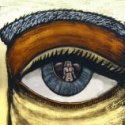
01.18.19 (Shevat 12, 5779) In our Torah for this week (Beshalach) we read how "Amalek" attacked the Israelites after they had miraculously crossed over the sea into a new life of freedom (Exod. 17:8). Spiritually speaking the Amalekites aligned themselves with the wicked Pharaoh of Egypt and therefore they sought to continue the war against God's people. Apparently the Amalekite clan in Canaan was founded by a grandson of Esau (Gen. 36:12,16), though Amalek is also listed as the "first among the nations," a man who even predated the time of Abraham (Num. 24:20, Gen. 14:7). In Augustine's terms, Amalek represents the "City of the World," whereas Israel represents the "City of God."
In Jewish tradition, Amalek represents pure evil, or those who have "given themselves over" to Sitra Achra, the side of impurity. Indeed the name Amalek (עֲמָלֵק) begins with the letter Ayin (symbolizing the eye) and equals 240 in gematria -- the same value for safek (סָפֵק), meaning "doubt," and for rahm (רָם), meaning "haughty." Amalek therefore represents "the evil eye of doubt," or even "the severed eye" (i.e., when you remove Ayin from "Amalek," you are left with malak (מָלָק), a verb that means "to chop off" or to sever). Understood in this way, Amalek represents spiritual blindness acting arrogantly in the world, and therefore the LORD vowed perpetual warfare against Amalek: "The Hand is on God's throne. God shall be at war with Amalek for all generations" (Exod. 17:16).
The Torah reveals that we must "go out and fight" Amalek, which is a call to ongoing spiritual warfare in our lives (Deut. 25:17-19). When Moses raised his hands in battle against the Amalekites, the Israelites prevailed, but if he lowered them, they suffered defeat (Exod. 17:11). Eventually Moses grew weary and needed Aaron and Hur to help him hold his arms steady to ensure victory (Exod. 17:12). Note that the Hebrew word translated "steady" is emunah (אֱמוּנָה), the word for faith... It was Moses' steady faith in God's power that gave Israel the victory over the powers of darkness, just as we lift up our faith in God's power demonstrated at the cross gives us the victory over Satan and his schemes.
For more on what Amalek represents, see the article, "Warfare with Amalek."
Asking Ultimate Questions...

[ The following entry is a bit philosophical; skip it if you do not find it helpful, friend... ]
01.18.19 (Shevat 12, 5779) Everyone is a "philosopher" of sorts, that is, believes certain things about what life is, what is truly important and meaningful, what underlies or sustains time and space, and so on. Every person has assumptions they bring to their experience that they use to "frame" or construct a narrative about the purpose of life which reveals their ultimate concern, how they understand non-physical and immaterial reality, and so on.
One of the more fundamental questions we may ask is why is there something rather than nothing? or why does anything exist at all? Notice that whatever answer we might give to this question lies beyond the realm of the physical world itself, since the existence of the world is the question itself, and it would be begging the question to appeal to things in the world to explain the origin of the world... Empirical science (as opposed to scientific mythology) is grounded in faith that there is an external world that is objectively measurable, that cause and effect are real, and that it is best to use the scientific method to understand the world, but note that none these ideas derive from science itself but rather from certain metaphysical assumptions made about the nature of reality.
To ask why there is something rather than nothing implies duality of being, namely what is and what is not, the knower and the known, and so on, and such duality leads to paradoxes of understanding. For example some thinkers have gone so far as to claim that "nothing" literally does not exist (for then it would be "something"), and therefore we can only speak about what "is" not what "is not." This viewpoint paradoxically makes the idea of change incomprehensible to reason. Others, however, have claimed just the opposite, namely that "nothing exists" (as a "something") by which they ask "What is not?" or "Why is there nothing rather than something?" Some, like the ancient philosopher Heraclitus, claimed πάντα ῥεῖ (panta rhei), "everything flows" or is in flux, change is the only constant, though change is "ordered" by means of the Logos (Λόγος) or the hidden logic behind surface appearances. Other thinkers, like the modern philosopher Martin Heidegger (1889-1976), look at change and the transition from "is" to "is not" as a phenomenological feature of human consciousness that explains our experience in the world. He inferred that "nothingness" manifests itself as fear of the unknown, the fear of change, the fear of death, and as such is the subconscious source of dread and anxiety within the human heart (Kierkegaard noted the same connection before Heidegger). Since a human being both exists yet is aware of his own death, the better question to ask is "How should I live my life in light of the inevitability of my death?" For this courage is needful and is part of being a thoughtful soul: "Wait on the LORD, be of good courage, and he shall strengthen your heart" (Psalm 27:14).
As Immanuel Kant (1724-1804) noted, however, perception does not "make" reality but only provides the data used to form concepts and practical judgments. His famous maxim was: "Concepts without percepts are empty, percepts without concepts are blind." We assume there is an external world beyond our experience of it in all that we do. Categories of space, time, logical connections, etc., frame our experience but are brought to experience by means of reason (some so-called "postmodern" philosophers like to impugn the power of reason but they use reason to do so, thereby proving they are not serious thinkers). Human reason ascertains "ideal" objects such as the mathematical description of a triangle or circle, the logical law of "identity" and reference, and so on.
The Torah states that reality is the handiwork of God, with both a physical design and purpose as well as moral and spiritual dimensions to human existence. That God created the universe "out of nothing" (i.e., yesh me'ayin: יֵשׁ מֵאַיִן ) is a matter of special revelation that is not directly known through the operation of unaided natural reason. Of course human reason may (rightly) infer that since "every effect requires a cause," and since the universe itself is an effect, there must be a cause sufficient for the existence of the universe. Likewise, human reason may again (rightly) infer that the universe itself must have had a beginning, since it is impossible to traverse an infinite number of causes to arrive at a present effect, and therefore there must have been an immensely powerful and transcendental "First Cause" that started the entire chain of causation itself. (This "First Cause" answers the metaphysical question, "Why is there something [at all] rather than nothing?" and it also explains the existence of change by answering the question "Why is their nothing rather than something?"). However, human reason, by itself, can only take us so far, and something more is needed to apprehend the nature of reality.
To the Hebrew mind, reality is the handiwork of a single all-knowing, all-powerful, and morally perfect Creator who has personally revealed Himself to key individuals in the drama of human history. As such, reality is intensely, overwhelmingly, and even hauntingly personal... Truth therefore is a matter of trust -- not abstract knowledge -- whereas "knowledge" is primarily about practical ethics, moral obligation, and cult practices (i.e., Temple worship). For the Hebrew mind, truth is more akin to moral fidelity than it is to propositional correspondence; it is more a matter of the heart than of the head (for more on this, see "Theology and the Greek Mindset"). The New Testament affirms that knowing that the First Cause of the universe is the personal God revealed in the Jewish Scriptures is the result of faith in God's direct revelation: "By faith (בָּאֱמוּנָה) we understand that the universe [lit. "worlds"] were created by the utterance of God (בִּדְבַר אֱלהִים), so that what is seen [i.e., the "effect" of the universe] did not come into being out of existing phenomena [i.e., was made yesh me'ayin - 'out of nothing']" (Heb. 11:3). Again, this is a matter of special revelation directly imparted by God's grace so that the soul may apprehend the Divine Light that preceded the creation of the worlds (Gen. 1:3). Faith "looks not to the things that are seen but to the things that are unseen. For the things that are seen are transient, but the things that are unseen are eternal" (2 Cor. 4:18). This "collision" with the world of everydayness creates a restlessness or homesickness for our true home in heaven...
May God help each of us persevere. Shabbat Shalom friends...
A Holy Suspense...

01.18.19 (Shevat 12, 5779) The walk of faith is one of "holy suspense," trusting that God is on the other side of the next moment, "preparing a place for you" (John 14:3). In the present, then, we live in unknowing dependence, walking by faith, not by sight. For "hope that is seen is not hope; for who hopes for what he sees?" (Rom. 8:24). This is the existential posture of faith - walking in darkness while completely trusting in God's care. Our task at any given moment is always the same - to look to God and to accept His will. This is where time and eternity meet within us, where God's kingdom is revealed in our hearts.
מִי בָכֶם יְרֵא יְהוָה שׁמֵעַ בְּקוֹל עַבְדּוֹ
אֲשֶׁר הָלַךְ חֲשֵׁכִים וְאֵין נגַהּ לוֹ
יִבְטַח בְּשֵׁם יְהוָה וְיִשָּׁעֵן בֵּאלהָיו
mi · va·khem · ye·rei · Adonai · sho·mei·a · be·kol · av·do?
a·sher · ha·lakh · cha·she·khim · ve·ein · no·gah · lo?
yiv·tach · be·Shem · Adonai · ve·yi·sha·en · be·lo·hav

"Who among you fears the LORD and obeys the voice of his servant?
Let him who walks in darkness and has no light
trust in the Name of the LORD and rely on his God."
(Isa. 50:10)

Download Study Card
The Ruach HaKodesh (Spirit of holiness and love) breathes out: "I will lead the blind in a way that they do not know, in paths that they have not known I will guide them. I will turn the darkness before them into light, the rough places into level ground. These are the things I do, and I do not forsake them" (Isa. 42:16).
A Quick Family Update...
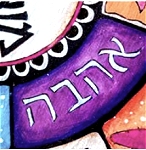
01.18.19 (Shevat 12, 5779) Shalom chaverim! Yesterday was our youngest son Emanuel David's birthday, and he is growing up to be a wonderful child. He is strong and healthy (B"H), full of energy, has a great sense of humor, and he is also quite musical. Our middle son Judah Abraham is now nine years old and thank God he is healthy, happy, and a has a big heart of compassion and love for others. Judah is studying piano at a local music school and is a natural artist. He loves drawing, painting, reading, and of course playing (some) video games. Our oldest son Josiah Israel turned 14 years old last October. Josiah is a gifted musician who has been studying piano and composition at a music school in Minneapolis. He is presently one of four finalists (out of hundreds of submissions) for the Minnesota Public Radio teen composer award this year. Josiah composed music for a viola, cello, and piano trio that begins with bossa nova styling but moves into classical composition somewhat along the lines of Aaron Copland's pastoral work. Of course we are proud of him, and we should learn if he wins the competition sometime in March. So that's a bit about my three sons... Every day the boys listen to me read devotional literature and we spend time talking and praying together as a family. Josiah and Judah also memorize Scripture passages each week for Shabbat. I am grateful to God for my kids - they are good listeners, they genuinely respect their parents, and they want to walk in truth before God in their daily lives.
 |
(left to right): 1) Emanuel David, 2) Judah Avraham, and 3) Josiah Israel
My wife Olga has decided to go to school full-time to become a registered nurse. We are taking out student loans to pay for the nursing program, but we think it is a worthwhile decision for the family in the long run. Olga also does some work for the City Council of our town, so she is extremely busy, as you might imagine. Besides all that, she cooks dinners, reads books to the kids, runs various errands, and is an overall "balabusteh," that is, a good homemaker, wife, and a loving mom. As for me (i.e., John), well, I work from home every day (except for Shabbat). Because of our family schedule, I often write and develop the site in the evening and throughout the night while the kids are sleeping. I also am busy doing a lot of work on Facebook as an outreach to Christians who do not know the Jewish roots of their faith as well as to provide a testimony to those who have not yet come to believe in the miracle of God's love... My health is a challenge; I deal with severe asthma, fibromyalgia and arthritis in my hands and wrists, and I have some other health concerns, but overall I am able to get through the day without using a lot of pain medication. Dealing with severe asthma, however, is a brutal, and often I have my worst attacks when I am sleeping, which forces me to get up, use an inhaler, and wait it out until I can breathe again...
I hope to develop Hebrew for Christians further in the days to come, including revising and adding to the Hebrew grammar sections, developing additional homeschool Hebrew resources, creating a Hebrew devotional book, adding additional audio podcasts, and so on, in addition to the devotional insights and commentaries about the weekly Torah readings I do every week here. I am also considering doing some shorter audio podcasts (perhaps just 5 or 10 minutes in length), on various topics for the sake of encouragement and edification. Let me know if you'd like to see more audio teaching here. Finally I would like to redesign the entire web site to be compatible with phone and tablet users, but that would a big project, especially since I code pages here using HTML and CSS.
Some of you know that we operate Hebrew for Christians entirely by means of faith, trusting God to help us with our financial needs both as a family and as a full-time ministry. Although it has sometimes been challenging over the years, God has always been faithful, sustaining our work and allowing us to continue. For those of you who have donated to Hebrew for Christians, please know how much we appreciate you and thank God for your love and support. It is not some empty talk when I say that this ministry couldn't continue without your care for us, so please receive our heartfelt and most sincere thanks... - John
Overcoming the Darkness...

01.17.19 (Shevat 11, 5779) "Be of good courage, and let your heart be strengthened, all you that hope in the LORD" (Psalm 31:24). This is a timeless word, spoken from the heart of the Eternal. Even if you have recently fallen or sinned, regard your struggle to find hope as the invitation to draw closer to God. Begin again, every day, every hour... Teshuvah (תְּשׁוּבָה) means means lifting up your heart in courage before heaven and trusting that God is for you, upholding your way in the struggle (Psalm 37:23-24). Whoever is called by God must endure fearsome battles - "the hordes of troops and the sounds of war horns." You must stand firm despite the momentary adversity: "let not your heart faint; do not fear or panic or be in dread... for the LORD your God is he who goes with you" (Deut. 20:3-4). Faith expresses hope in the Reality, Substance, and Being (ὑπόστασις) of the unseen and is made captive to undying hope (Heb. 11:1). Therefore the Spirit cries: "Wait (i.e., hope) for the LORD; be steadfast and he will strengthen your heart; and (again) wait for the LORD."
קַוֵּה אֶל־יְהוָה חֲזַק וְיַאֲמֵץ לִבֶּךָ
וְקַוֵּה אֶל־יְהוָה
ka·veih · el · Adonai · cha·zak · ve·ya·metz · lee·be'·kha
ve-ka·veih · el-Adonai

"Wait for the LORD: be steadfast and he will strengthen your heart;
again, wait for the LORD." - Psalm 27:14
Download Study Card

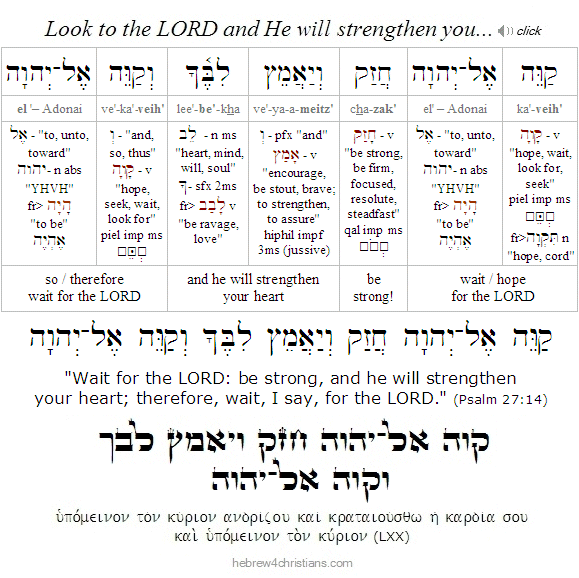
In this verse, the imperative verb often translated as "wait" is the Hebrew word kaveh (קַוֵּה), which is better rendered as "look for with anticipation!" or "hope!" (the same root appears in the Hebrew word for hope, i.e., tikvah: תִּקְוָה). Therefore hope in the Lord and "chazak!" - be strong! (the Septuagint translates chazak as "andridzou" (ἀνδρίζου - act like a man!). Note that the verb ve'yametz is a causal active stem (i.e., Hiphal) in the "jussive mood," which means it is imperative – "command your heart to be strengthened," or "let your heart be made strong!" That is, make the decision to be strong in the LORD, and the LORD will give you strength to bear your present suffering: "Look to the LORD (קַוֵּה אֶל־יְהוָה) and find hope." Amen. God will help us, and he will help us before he will help us!
First things First...

01.17.19 (Shevat 11, 5779) The legendary Kotzker Rebbe wisely repeated a truth that Yeshua had taught thousands of years before him, namely, that God wants surrender from our hearts, not religious observance. He said, "The prohibition against making idols includes the prohibition against making idols out of the commandments. We should never imagine that the whole purpose of the Torah is its outer form, but rather the inward meaning." Or as Yeshua taught, "First clean the inside of the cup that the outside also may be clean."
But what does this mean? Aren't we supposed to obey God's commandments? Yes of course, though first of all you must know who you are; you must understand and emotionally accept that you are a beloved child of God, and indeed one for whom Yeshua exchanged his very life... This is the great commandment to shema, listen, to the truth that God is your life, your breath, your love... This is the core of your identity, your "sacred center," the hidden "you" that your heavenly Father sees in secret (Matt. 6:6). You must first obey this "Torah" before attempting to work out other questions of theology or religious practice in your life. This is what it means to first "clean the inside of the cup..." All other divine imperatives are then expressed in the outworking of the Spirit of God's love within the trusting heart.
Yeshua stated there are "weightier matters of the Torah," and we know that the LORD did not give the Torah in vain, but we must put first things first... We do not worship a book or a Torah scroll, but instead worship the Living God who breathes out truth to our hearts. Therefore we are to first "love the LORD with all our heart" and then we can go on to worry about matters such as how to perform ma'asim tovim, good works in our lives (Matt. 6:33).
Our Daily Bread...
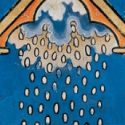
[ The following is related to this week's Torah reading, parashat Beshalach... ]
01.17.19 (Shevat 11, 5779) A verse from our Torah portion this week (i.e., Beshalach) contains all the letters of the Hebrew alphabet (i.e., aleph (א), bet (בּ), gimmel (ג), etc.). The special verse reads, "This is what the LORD has commanded: 'Gather of it, each one of you, as much as he can eat. You shall each take an omer (עמֶר), according to the number of the persons that each of you has in his tent'" (Exod. 16:16). Since this refers to the manna the Israelites were to collect for their daily bread, and this verse contains all the letters of the alphabet, we may poetically infer that if we immerse ourselves in the Scriptures, "from Aleph (א) to Tav (ת)," God will provide us with the "daily bread" (לֶחֶם חֻקֵּנוּ) we need, just as He did when the bread from heaven (לֶחֶם מִן־הַשָּׁמָיִם) was miraculously given to feed the Israelites in the desert. Therefore Yeshua, who is the Aleph and Tav, taught us to pray, "Give us this day our daily bread," which surely refers to the spiritual food (i.e., encouragement, hope, life) that we receive from the Word of Life (Deut. 8:3; Matt. 4:4).
Yeshua taught us: "Don't be anxious about tomorrow, for tomorrow has its own troubles. Live one day at a time" (Matt. 6:34). It makes no sense to worry about the future if the LORD is the Good Shepherd who tenderly watches over your way (Psalm 23:1). Every day we are given daily bread, but we must remember that manna could not be stored up without becoming rotten (Exod. 16:20). God's provision is "sufficient unto the day...."
Isn't it amazing how studying the Hebrew text reveals further insights into the Scriptures? And may you rest in the promise: "My God will supply every need of yours - "from A to Z" - according to his riches in glory in Yeshua the Messiah" (Phil. 4:19). He is lechem ha'chaim - the Living Bread from heaven (John 6:51)!
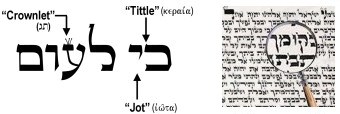 |
The Torah of Trees...

[ Sunday Jan. 20th at sundown begins "Tu B'Shevat," or the 15th of the month of Shevat (שְׁבָט), which marks the traditional date celebrating the "New Year" for Trees... ]
01.16.19 (Shevat 10, 5779) The Bible begins and ends with the great Tree of Life -- first in the orchard of Eden, and later in the midst of the paradise of heaven. "The Tree of Life (i.e., etz ha' chayim: עֵץ הַחַיִּים) was in the midst of the garden..." (Gen. 2:9); "Then the angel showed me the river of the water of life, bright as crystal, flowing from the throne of God and of the Lamb through the middle of the street of the city; also, on either side of the river, the Tree of Life (etz ha-chayim) with its twelve kinds of fruit, yielding its fruit each month" (Rev. 22:1-2). Notice that the "twelve fruits" (καρποὺς δώδεκα) from the Tree of Life are directly linked to the "twelve months" of the Jewish year (κατὰ μῆνα ἕκαστον ἀποδιδοῦν τὸν καρπὸν αὐτοῦ: "each month rendering its fruit"). Twelve months; twelve fruits.... This teaches us that the sequence of the holidays (moedim) was intended to teach us revelation about God. That is why God created the Sun and the Moon for signs and for "appointed times" (Gen. 1:14), as it also says: "He made the moon to mark the appointed times (לְמוֹעֲדִים); the sun knows its time for setting" (Psalm 104:19).
The Scriptures state twice: "Take root downward and bear fruit upward" (2 Kings 19:30; Isa. 37:31). As Yeshua said, "unless a grain of wheat falls to the ground and dies, it abides alone; but if it dies, it brings forth much fruit (John 12:24). We pray we might surrender ourselves to the Lord fully, being immersed in His passion, "bearing fruit in every good work (ἐν παντὶ ἔργῳ ἀγαθῷ καρποφοροῦντες) and growing in da'at HaShem (דַעַת אֱלהִים) - the knowledge of God" (Col. 1:10). The "fruit of the righteous is a Tree of Life" lit., etz chayim (עֵץ חַיִּים), literally, "the Tree of lives" (Prov. 11:30). It is the fruit of Yeshua, the Tzaddik of God, the Righteous One, who bears fruits of healing in the lives of those who turn to Him in trust...
יְהִי רָצוֹן מִלְּפָנֶיךָ יהוה אֱלהֵינוּ וֵאלהֵי אֲבוֹתֵינוּ
שֶׁתְּחַדֵּשׁ עָלֵינוּ טוֹב וּפוֹרֶה שָּׁנָה
בַּאֲדנֵינוּ יֵשׁוּעַ הַמָּשִׁיחַ, אָמֵן
ye·hee · ra·tzon · meel·fa·ney'·kha · Adonai · E·lo·hey'·noo · ve·lo·hey · a·vo·tey'·noo
she·te·cha·desh · a·ley'·noo · tov · oo·fo·reh · sha·nah
ba·a·do·ney'·noo · Ye·shoo'·ah · ha·ma·shee'·ach · a·men

"May it be Your will, LORD our God and God of our fathers,
that you renew for us a good and fruitful year
in our Lord Yeshua the Messiah. Amen."

Download Study Card
The "Tree of Life" (i.e., etz ha'chayim: עֵץ הַחַיִּים) is mentioned ten times in Scripture, corresponding to the "ten words of God" (i.e., the Ten Commandments). In the Torah it first appears in the center of the paradise of Eden (Gen. 2:9; 3:22-4), but it is soon lost to humanity because of Adam's transgression. In the book of Revelation, it reappears in the center of the Paradise of God (Rev. 2:7, 22:2), resurrected on account of the faithful obedience of Yeshua as mankind's "last Adam" (1 Cor. 15:45). Those who have washed their robes by means of His righteousness are given access to this Tree in the heavenly Jerusalem (Rev. 22:14). The paradise lost by Adam has been regained by the greater ben-adam, the Son of Man, Yeshua the Messiah, the Savior of the children of men...
Note: For more information about Tu B'Shevat, see:
Shabbat Shirah - שַׁבַּת שִׁירָה
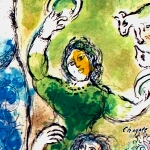
[ The following concerns this week's Torah reading (Beshalach) and the crossing of the sea... ]
01.16.19 (Shevat 10, 5779) Perhaps the central event of this week's Torah portion (i.e., Beshalach) is how the LORD split the waters of the sea (i.e., keriat yam: קריעת הים) to make a path for His people to finally escape from Egypt. This awesome event is commemorated in the great "Song the Sea" (i.e., Shirat Hayam: שִׁירַת הַיָּם), a hymn praising God for His deliverance (the song is also called Az Yashir Moshe (אָז יָשִׁיר־מֹשֶׁה), "then sang Moses," from its first words in the Torah (Exod. 15:1)). Because of its critical significance for the Jewish people, the Sabbath on which this song is chanted is called Shabbat Shirah ("Sabbath of the Song"), and the custom is for all the congregation to rise while it is recited (Shirat Hayam is also traditionally sung on the seventh day of Passover (i.e., on Nisan 21), the date when Israel crossed the sea after leaving Egypt).
עָזִּי וְזִמְרָת יָהּ וַיְהִי־לִי לִישׁוּעָה
זֶה אֵלִי וְאַנְוֵהוּ אֱלהֵי אָבִי וַאֲרמְמֶנְהוּ
o·zi · ve·zim·rat · Yah · vai·hi · li · li·shu·ah
zeh · E·li · ve·an·ve·hu · E·lo·hei · a·vi · va·a·ro·me·me·nu

"Yah is my strength and my song, and he has become my salvation;
this is my God, and I will enshrine Him, my father's God, and I will exalt him."
(Exod. 15:2)

The Torah states that when the Israelites entered the sea, it became dry land, with the water as "a wall (חוֹמָה) to their right and to their left" (Exod. 14:29). To commemorate this miracle, the Hebrew text of the "Song of the Sea" (i.e., Shirat Hayam: שִׁירַת הַיָּם) is specially written in a Sefer Torah (i.e., handwritten Torah scroll) to resemble a "wavy wall," with the words written in alternating "blocks" to suggest a wave of water, like this:
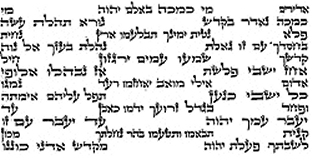 |
The Torah scribes (i.e., soferim: סופרים) count exactly 198 words in this song, which is the same numerical value for tzchok (צחק), a Hebrew word that means "laughter" which is the word used to describe Sarah's response when she finally gave birth to Isaac (Gen. 21:6). According to Rabbi Bachya, the laughter in Isaac's name comes from Abraham's joy (Gen. 17:17). The joy of Isaac's birth, then, is linked with the "birth" of the nation of Israel at the time of the Exodus, just as his symbolic death during the Akedah represents Israel's rebirth. It is also noteworthy to remember that the Lord Yeshua was the One who saved Israel on that very day. He is the Angel of the LORD and YHVH the Redeemer, as Moses likewise stated: וַיּוֹשַׁע יהוה בַּיּוֹם הַהוּא אֶת־יִשְׂרָאֵל מִיַּד מִצְרָיִם / "On that day, the LORD saved Israel from the hand of the Egyptians" (Exod. 14:30).
Note: Because it marks deliverance, both the Song of the Sea (i.e., the Song of Moses) and the "Song of the Lamb" will be sung in the world to come (Rev. 15:3). For more on this fascinating topic, see "The Song of the Sea: Further Thoughts on Beshalach."
Baptism into Moses...
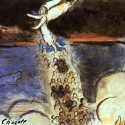
01.16.19 (Shevat 10, 5779) In this week's Torah portion (i.e., Beshalach) we read about "keriat yam suf" (קריעת ים סוף), the miraculous parting of the Sea of Reeds so that the Israelites could pass over to freedom (see Exod. 14). The Apostle Paul likened the crossing of the sea as a metaphor of baptism (טְבִילָה): "All were baptized into Moses in the cloud and in the sea" (1 Cor. 10:1-2,11). In the New Testament, baptism symbolizes our identification with Yeshua's death, burial, and resurrection (Col. 2:12; Rom. 6:3-5), "crossing over" from death to life... The Israelites were facing death and were therefore at the "end of themselves." They had no other appeal or hope than God's gracious intervention on their behalf (i.e., salvation). Still, they needed to act and move forward. After they took the step of faith, they could see the Shekhinah Glory lighting up the way of deliverance, though this meant being "buried" within the midst of the sea. Their earlier fear of death was replaced with a song of God's great deliverance (i.e, shirat hayam: שירת הים, see Exod. 15). The other side of the sea represents new life in the Messiah, the life that comes from above, by the power and agency of the Holy Spirit... The Israelites died to their old life, were symbolically buried in the waters, but arose to new freedom by the grace and power of God... Shifting the analogy somewhat, the crossing of the sea represented a sort of "birth canal" into the realm of true freedom as God's redeemed children.
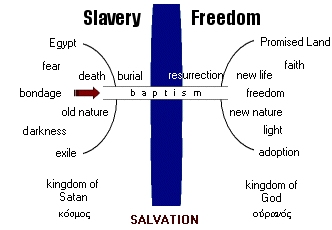 |
Alongside the Fleeting...

01.15.19 (Shevat 9, 5779) Every so often I need to remind myself that God's people are "strangers" in this world; they are literally "e-stranged" -- living here, yet not here. We are outsiders and pilgrims, not at home in this world, and our faith therefore protests any interpretation of reality that excludes, suppresses, denies, or minimizes the Divine Presence. We are homesick for heaven; we feel alienated by the idolatry and mindlessness of our culture; our hearts groan for the place where we truly belong.... If you feel crazy in an insane situation, then you are really quite sane... The world will feel oppressive and strange once you have been awakened from its madness and refuse to be moved by the delusions of the crowd... Life in olam hazeh (this world) is a place of passing that leads to the world to come. Our faith affirms that underlying the surface appearance of life is a deeper reality that is ultimately real and abiding. It "sees what is invisible" (2 Cor. 4:18) and understands (i.e., accepts) that the "present form of this world is passing away" (1 Cor. 7:31).
כִּי־גֵרִים אֲנַחְנוּ לְפָנֶיךָ
וְתוֹשָׁבִים כְּכָל־אֲבתֵינוּ
כַּצֵּל יָמֵינוּ עַל־הָאָרֶץ וְאֵין מִקְוֶה
ki ge·rim a·nach·nu le·fa·ne·kha,
ve·to·sha·vim ke·khol a·vo·tei·nu,
katz·tzel ya·mei·nu al ha·a·retz · ve·ein mik·veh

"For we are strangers before you
and sojourners, as all our fathers were.
As a shadow are our days on the earth, and there is nothing that abides"
(1 Chron. 29:15)

The Apostle Paul taught that we to be "conformed" (σύμμορφος) to the Messiah (Rom. 8:29), but not "conformed" (συσχηματίζω) to the pattern of this fallen world (Rom. 12:2). The former word means to resemble or be made similar in form (μορφή), whereas the latter means to accept the world's scheme (σχῆμα) of understanding things, to passively go along with the world's lies, wishful thinking, fearmongering, propaganda, etc. Of course we need God's help to escape the "programming" of our age, and therefore the Holy Spirit helps us to become transfigured – "changed from the inside out" - by the renewal of our minds, enabling us to see things in light of the reality of our identity in the Messiah. So refuse to let the world system get you down, but focus on God and His great glory. Take heart, friends: being exiled by the world is an indication that you belong to the Kingdom of God...
Stepping out in Faith...

01.14.19 (Shevat 8, 5779) From our Torah this week (i.e., Beshalach) we read how the children of Israel were trapped before the sea with no way of escape... Moses then cried out to God who told him to march forward -- right into the waters -- as the Pillar of Cloud settled between the people and Pharaoh's advancing army. According to a well-known midrash, when Moses lifted his staff to divide the sea, at first nothing happened. The people waited anxiously at the seashore, wondering what to do. Finally, Nachshon ben Aminadav, a descendant of Judah (Num. 1:7), waded into the water "up to his nose," and then the winds began blowing to divide the waters (Shemot Rabbah). The great miracle of kiryat yam suf (קרית ים סוף)- the splitting of the sea of reeds (the word "suf" means "reed,"see Exod. 2:3) therefore resulted because someone found real courage and took a step of faith: "And the people of Israel went into the midst of the sea on dry ground, the waters being a wall (חוֹמָה) to them on their right hand and on their left" (Exod. 14:22). They marched across the sea all that night (i.e., Nisan 21), under the light of the Shekhinah Glory...
The Talmud says "kasheh le'zavgom ke'kriat yam suf," which means it is more difficult for God to create a marriage than to split the sea. They reason this way because each person needs to take individual action to trust the other. Likewise with God. It is more difficult for God to get us to be in a genuine, trusting relationship with Him than it is for Him to split a sea. Of course the problem is not with God, who is the perfect "husband," but with our adulterous inner nature. It took the LORD a year to deliver Israel from Egypt, but it took Him 40 years to teach Israel to trust in His promises of love. God always awaits our teshuvah - our "answer" - to His invitation before He will reveal more to us. As Yeshua once said to his followers, "I still have many things to say to you, but you cannot bear them now" (John 16:12). Some things about God can only be known by stepping out in faith and surrendering ourselves to Him.
For more on this subject, see "Stepping out in Faith..."
Confession and Hope...
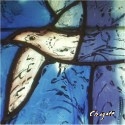
01.14.19 (Shevat 8, 5779) "Faith is the foundation (i.e., ὑπόστασις: the "substance," reality, underlying essence, etc.) of hope, the conviction of the unseen... Without faith it is impossible to please God, for whoever would draw near must believe that God exists and rewards (μισθαποδότης) those who seek him" (Heb. 11:1,6). Note that God is pleased when we seek his presence, that is, when we when we look past the ephemera and ambiguity of the phenomenal world for the truth about spiritual reality (2 Cor. 4:18). For our part, faith resolves to confession (ὁμολογέω), that is, aligning our perspective and focus to agree with the revelation and message of divine truth and verballly declaring our conviction. We must say that we believe, and affirm it with all our heart (Rom. 10:9). As it says, "I will make Your faithfulness known with my mouth" (Psalm 89:1). When you encounter tribulation, or experience some crisis of faith, reaffirm aloud: "I believe in God's promise..." Physically expressing your faith is itself an act of faith, and this encourages your soul to trust in God's healing reward even in the present struggle or darkness...
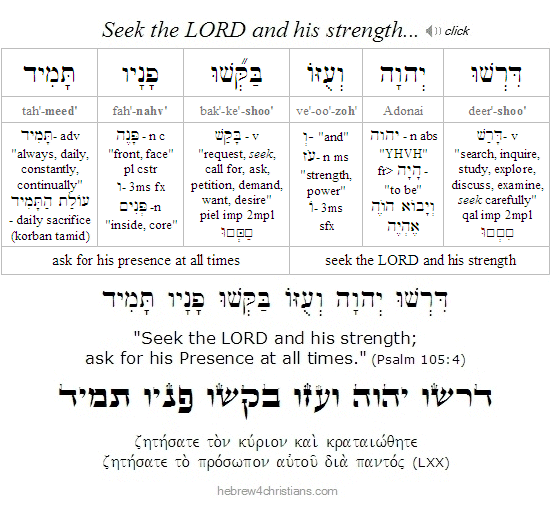 |
The Sickness Unto Life...

01.14.19 (Shevat 8, 5779) In his famous Gifford Lectures regarding the nature of religious belief, the American philosopher William James (1842-1910) described the consciousness of death as "the worm at the core" of all that we hope for in the attempt to find lasting happiness apart from God. He wrote: "Make the human being's sensitiveness a little greater, carry him a little farther over the misery-threshold, and the good quality of the successful moments themselves when they occur is spoiled and vitiated. All natural goods perish. Riches take wings; fame is a breath; love is a cheat; youth and health and pleasure vanish. Can things whose end is always dust and disappointment be the real goods which our souls require? Back of everything is the great specter of universal death, the all-encompassing blackness" (James: The Varieties of Religious Experience).
These are sobering and chilling words, and yet the truth is that death is inevitable for us and therefore it constitutes the central question of our existence in this world. Pleasures, wealth, and worldly ambition do not satisfy us but are like chasing after the wind -- they are "havel havalim" (הֲבֵל הֲבָלִים), the utmost of vanities, as King Solomon said long before the French existentialists expressed the same idea (Eccl 1:2). We live in a world of constant flux wherein ha'kol over (הכל עובר), "everything passes" and nothing abides. Our lives are as a vapor; our days are troubled and our aspirations fail: "My days are like a shadow that declineth; and I am withered like grass" (Psalm 102:11); "I am fading away like a shadow at the end of the day; I am shaken off like a locust" (Psalm 109:23); "What shall I cry? All flesh is grass, and all the goodliness thereof is as the flower of the field" (Isa. 40:6). "For what is your life? It is even a vapor that appeareth for a little time, and then vanisheth away" (James 4:14).
"What profit hath a man of all his labor which he taketh under the Sun? I looked on all the works that my hands had wrought, and behold, all was vanity and vexation of spirit. For that which befalleth the sons of men befalleth beasts; as the one dieth, so dieth the other; all are of the dust, and all turn to dust again. ... The dead know not anything, neither have they any more a reward; for the memory of them is forgotten. Also their love and their hatred and their envy is now perished; neither have they any more a portion for ever in anything that is done under the Sun. ... Truly the light is sweet, and a pleasant thing it is for the eyes to behold the Sun: but if a man live many years and rejoice in them all, yet let him remember the days of darkness; for they shall be many. All that cometh is vanity." (from Ecclesiastes)
James concludes: "In short, life and its negation are beaten up inextricably together. But if the life be good, the negation of it must be bad. Yet the two are equally essential facts of existence; and all natural happiness thus seems infected with a contradiction. The breath of the sepulcher surrounds it." Such is the ambiguity and despair of the human condition.
In light of such harsh realities of our existence "under the sun," where can we find meaning? Where is hope? If all our dreams eventually turn to dust, where can we find substance, where can we find perpetuity, where can we find life? How can we reconcile our inner hunger for life with the transience and pain associated with our mortal coil? These sorts of questions prepare the heart for the message of the gospel, for the gospel message is always a message given to those who are broken in heart, to those in desperate need of healing.
Does all this imply that despair can be curative? Yes, if it expresses the loss of our idolatrous ideals, visions, and dreams... It is hard to let go of old expectations, to give up cherished fantasies, and to find ourselves in a place of emptiness, but we must go through the desert before we can live the promise. We can only grow spiritually when we let go of our romance with the world, abandoning its vain idols, and awakening to the reality of the Divine Presence. We then can turn to God and learn to live in the moment, trusting him to help us through the temptations of the day. We all must walk through the "valley of the shadow of death" to find hope on its other side, and it is only by passing that way can we know the Name of God as the "I-AM-with-you-always" One.
Death is the central problem of life, and therefore to find a solution we must find something that has more power than death, something that can "untrue" death's lie and restore what was originally intended to be our divine inheritance. This is where the resurrection of Yeshua becomes the center of everything we believe as Christian people. The love of God is stronger than death, the mercy of God triumphs over his justice, and the sacrifice of Yeshua makes us right with all that is eternal, abiding, beautiful, and good.... Because Yeshua lives, we shall live also. The resurrection of Yeshua from the dead vindicates our salvation and secures for us eternal life. We are made alive together with Messiah and now live in an entirely different order of reality, free from the law of sin and death (Rom. 7:4, 8:2). God has "made us alive together with the Messiah" (συνεζῳοποίησεν τῷ χριστῷ) through the resurrection (Eph. 2:5; Col. 2:13). Our union (oneness) with the Messiah means that we are connected with Him in the spirit. "Likewise, my brothers, you also have died to the law through the body of Messiah, so that you may belong to another, to him who has been raised from the dead, in order that we may bear fruit for God" (Rom. 7:4). We are "raised with him through faith in the powerful working of God, who raised him from the dead" (Col. 2:12).
The resurrection foretells of the destiny and future glorification of the believer. "Because I live, you also shall live" (John 14:19). The resurrection ultimately restores us to a condition of eternal righteousness and innocence in olam haba, the world to come. It is therefore the ultimate expression of tikkun olam, the repair of the world, since even the creation "groans" and laments for the completion of salvation (Rom. 8:22). Creation is weeping for our future salvation! The Messiah's resurrection was the "firstfruits" of many that will likewise experience the glorified state (Rom. 8:23, 1 Cor. 15:20). "Beloved, we are God's children now; it does not yet appear what we shall be, but we know that when He appears we shall be like Him, for we shall see him as He is" (1 John 3:2). The goal of salvation was to reconcile the world back to God in love. In the glorious end, יִהְיֶה הָאֱלהִים הַכּל בַּכּל / yihyeh ha-Elohim ha-kol bakol: "God will be all in all" (1 Cor. 15:28).
The resurrection of Yeshua (i.e., techiyat ha-Mashiach: תְּחִיַּת הַמָּשִׁיחַ) demonstrates that God is LORD over all. Only the Master of the Universe can resurrect the dead; only God Almighty can swallow up death in victory, and only Yeshua has conquered the grave (1 Cor. 15:54-55). Indeed, all other world religions were founded by people who are now rotting in their graves. Yeshua's resurrection demonstrates that He is LORD and His word is truth (Matt. 24:35; Luke 21:33). We can find courage to face hardship and even death because we know that this world is merely a corridor to the world to come. The dead in Messiah will be resurrected, and those who remain and are alive at His coming will be changed and receive new, glorified bodies (1 Thess. 4:13-18). The resurrection guarantees that those who believe in Yeshua will likewise be resurrected to experience eternal life.
Finally, the resurrection of Yeshua means that He is present for you right now. He is not indifferent to your suffering or "too busy" to be bothered by your struggles. On the contrary, He is "sympathetic to our weaknesses" (συμπαθῆσαι ταῖς ἀσθενείαις ἡμῶν) and will help us through the trials (nisayonot) of life (Heb. 4:15). We therefore can come boldly before Him to find grace (χάρις) for our need (Heb. 4:16). Note that the word translated "boldly" in this verse (παρρησίας) means that we can speak freely to God from the center of our hearts -- without fear or shame. Our Savior knows who we are and we do not need to affect an outward show of righteousness in order to obtain His help... The Lord draws near enough to touch us when we draw near to Him (James 4:8). Only a risen and loving Savior can help you through the pain, frailties and temptations of this life; and only living Lord can fill our lives with meaning and purpose so that we are made more than conquerors by means of his great love. Our life in the Lord is never in vain, chaverim....
The most important fact of history, and that which radically transforms everything else - is the resurrection of Yeshua from the dead. Spiritual life means being awake to the risen reality and saving Presence of Yeshua, the One who Overcame and vanquished the power of death. Without Him we are hopeless; with Him we are more than conquerors (1 Cor. 15:14; Rom. 8:37). The resurrection means Yeshua is forever alive, and that today he hears your heart's cry. He is surely able to help you, and nothing can overthrow his invincible will. Our Lord suffered and died for your inner peace and healing, but now death has no hold over him, and he "ever lives to make intercession for you" (Rom. 6:9, Heb. 7:25). He is your compassionate Advocate (παράκλητος, lit. "one called alongside") who gives you heavenly comfort (1 John 2:1). Even more: The very power that raised Yeshua from the dead now dwells in you (Rom. 8:11). The miracle of new life is "Messiah in you - the hope of glory" (Col. 1:27). The Lord will never leave you nor forsake you (Heb 13:5): He "sticks closer than a brother" (Prov. 18:24); He sustains your way, and he will perfect the work of salvation on your behalf (Jude 1:24). In short, there simply is no "gospel" message apart from the resurrection! The resurrection is the victory of God's plan of salvation - His everlasting vindication over the powers of darkness - for your life.
The Longer Road Home...
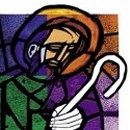
01.14.19 (Shevat 8, 5779) God chose to take the people along the "longer road" to the promised land, just as we find ourselves still awaiting our redemption in the world to come. And like the Israelites, we must be on guard, since when things get difficult, our tendency is to go back to what is familiar, even if it is painful. Thank God we have a Good Shepherd who teaches us and guides us in the way to go: "And though the Lord give you the bread of adversity and the water of affliction, yet your Teacher (מוֹרֶה) will not hide himself anymore, but your eyes shall see your Teacher. Your ears will hear a word behind you, saying: 'This is the way; follow it,' when you turn to the right or to the left" (Isa. 30:20-21).
וְאָזְנֶיךָ תִּשְׁמַעְנָה דָבָר מֵאַחֲרֶיךָ לֵאמר
זֶה הַדֶּרֶךְ לְכוּ בוֹ
כִּי תַאֲמִינוּ וְכִי תַשְׂמְאִילוּ
ve·oz·ne·kha · tish·ma·nah · da·var · me·a·cha·re·kha · le·mor:
zeh · ha·de·rekh · le·khu · vo
ki · ta·a·mi·nu · ve·khi · tas·me·i·lu

"Your ears will hear a word behind you saying:
'This is the way; follow it,'
when you turn to the right or to the left."
(Isa. 30:21)

What a beautiful image of our LORD as our Teacher and Good Shepherd, who guides us in the paths of life and delivers us from "right-hand and left-hand errors." And may God keep us upon the path, free from the seductions of the tempter who wants to distract our souls and lead us into fruitless byways and trouble. May we be given grace to behold His face, even in the midst of adversity or affliction, learning from Him the way to go... Amen.
Love Story of Exodus...

[ The following is related to this week's Torah reading (Beshalach). Please read the Torah portion to "find your place" here.]
01.13.19 (Shevat 7, 5779) When God delivered Israel from Egypt, He did not take them on the fast track to the Promised Land (though He certainly could have done so). No, there was a circuitous route to take, a divinely appointed wandering, a "Divine Stroll of betrothal," if you will. In order to reveal Himself to the Israelites, God had to led them directly into the desert. He embittered waters to make them sweet once again; He let stomachs growl to provide the Bread of life; He parched mouths to give Living Water from the "Rock that was struck" (1 Cor. 10:4). God did all this to reveal to his newly redeemed people that He is the satisfaction of all their longings. For more on this wonderful topic, see "Love Story Exodus."
Transforming our Minds...

01.13.19 (Shevat 7, 5779) The Scriptures counsel us to be transformed (μεταμορφόω) by "renewing our minds" (Rom. 12:2), though just how we are to do this remains an open question. Our perspectives and attitudes are shaped by our assumptions about life, many of which are "preconscious" or hidden from our awareness. Habitual thoughts, biases, prejudices, fears, etc., all affect (and distort) the way we see and understand reality. In light of this, how can we change? How can we overcome our habitual negativity, misery, and general unhappiness? How do we develop right thinking power? How do we learn to apply our minds to perceive the good, instead of responding in unreflective and negative ways to our circumstances? How do we discipline our will so that "if there is anything worthy of praise, think about these things" (Phil. 4:8)? Surely we cannot transform ourselves, for we are the source of our own impairment; we are the patient who needs the cure....
Healing comes from receiving the light of truth, being "single-minded," with our eyes focused on what is real. "If your eye is "single" (i.e., ἁπλοῦς, sincere, focused)," Yeshua said, "your whole body will be filled with light" (Matt. 6:22). We are to "renew" (ἀνακαινόω) our minds, which means elevating our thinking by focusing on God. Likewise the Torah commands: "You shall be made whole (i.e., tamin: תָּמִים) with the LORD your God" (Deut. 18:13). We are made "whole" or "perfect" (i.e., complete) when we resolutely turn to God for healing of our inner dividedness, as it says: "The Torah of the LORD is perfect (תָּמִים), returning the soul" (Psalm 19:8). And where it is written, "Let us hear end of the matter: Fear God and love his commandments, the text adds: ki zeh kol-ha'adam (כִּי־זֶה כָּל־הָאָדָם), "for this is the whole man," suggesting that those who return will be healed of their double-mindedness (Eccl. 12:13). Ultimately we are made whole when we are united to God in Messiah, for then we are "with the LORD our God" and the Spirit writes Torah within the heart of faith (Jer. 31:33).
Parashat Beshalach - בשלח

[ In our Torah portion this week, the waters of the Red Sea divide to make a path for the Israelites, a miracle that symbolized newness of life as God's liberated people... ]
01.13.19 (Shevat 7, 5779) Last week's Torah portion (i.e., parashat Bo) described how the Israelites were finally delivered from their cruel bondage in Egypt after God issued the decisive plague during the time of Passover. In this week's portion (i.e., parashat Beshalach), the Israelites began their journey home, after 430 years of exile. Instead of leading them along a direct route to the Promised Land, however, the LORD directed them south, toward the desert, where the Glory of God appeared as a Pillar of Cloud by day and as a Pillar of Fire by night to lead them on their way. When Pharaoh heard that the Israelites were at the border of the desert, however, he perversely decided to pursue them and bring them back to Egypt. God then redirected the Israelites to camp near the edge of the Sea of Reeds, where the Egyptian army finally caught up with them. Dramatically, the Israelites were caught between the sea on one side, and Pharaoh's army on the other...
The terrified people then began to blame Moses for their predicament. Moses reassured them of God's great deliverance and raised his staff to miraculously divide the waters of the sea. All that night the Shekhinah Glory enshrouded the Egyptian army but gave light to Israel as the people crossed through the sea on dry ground. Just before dawn, the dark pillar of cloud that veiled the Egyptian army lifted, and the soldiers immediately rushed after the Israelites into pathway of the sea. God then told Moses to lift his staff again so that the waters would overwhelm the Egyptians with their chariots and horsemen. By the time dawn arrived, the Israelites saw the dead bodies of Pharaoh's army lining the seashore.
 |
Shabbat Shirah - שַׁבַּת שִׁירָה
Because of the critical significance of the miracle of crossing the sea, this Sabbath is called Shabbat Shirah, the "Sabbath of the Song," because it includes the song of deliverance sung by Moses and Miriam after the people made safe passage to new life. The "Song of the Sea" (i.e., shirah hayam) begins, "The Lord is my strength and song, and he is become my salvation" / עָזִּי וְזִמְרָת יָהּ וַיְהִי־לִי לִישׁוּעָה (Exod. 15:2, cp. Isa. 12:2). For Orthodox Jews, singing Shirat Hayam every day is thought to fulfill the biblical commandment to "remember the day of your departure from the land of Egypt as long as you live" (Deut. 16:3). Note that Shirat Hayam is also sung on the 7th day of Passover, as a memorial of the deliverance by God through the waters of the Sea of Reeds.
The great message of our deliverance resounds throughout Jewish history, and indeed it is regarded as a theme of the faithful love of LORD for His people:
הִנֵּה אֵל יְשׁוּעָתִי אֶבְטַח וְלא אֶפְחָד
כִּי־עָזִּי וְזִמְרָת יָהּ יְהוָה
וַיְהִי־לִי לִישׁוּעָה
hee·neih · el · ye·shu·a'·tee · ev·tach · ve·lo · ef·chad
kee-oh·zee · ve·zeem·raht · Yah · Adonai
vai·hee-lee · lee·shoo·ah

"Behold, God is my salvation; I will trust, and will not be afraid;
for the LORD God (יָהּ יְהוָה) is my strength and my song,
and he has become my salvation."
(Isaiah 12:2)
Following their jubilation, the narrative resumes as God led the people away from the sea, into the desert of Sin (מִדְבַּר־סִין), a desolate region about midway to Mount Sinai. After traveling three days without finding any water, however, the people complained and God provided them with fresh water at Marah. Awhile later, the matzah the people had brought with them ran out and God tested their obedience by giving them "bread from heaven" (i.e., manna). The portion ends with the Amalekites' surprise attack of Israel at Rephidim, near Mount Sinai, and the introduction of Joshua as the leader of the army of Israel.
Heaven's Love Story...

01.11.19 (Shevat 5, 5779) The Scriptures reveal that ultimate reality is a divine love story with a "happy ending," despite the struggles we face in this world. We see this in connection with the great deliverance of the Passover, when we read the story of our redemption in the Torah, summarized in a special book called a "haggadah." Note that the Hebrew word "haggadah" (הַגָּדָה) means "retelling," which of course refers to the story of our journey from slavery to freedom by the hand of God's love. With regard to the sanctity of this story, the Torah commands us: "You shall tell (i.e., ve'higadta: וְהִגַּדְתָּ, from which "haggadah" comes) your child on that day, 'It is because of what the LORD did for me when I came out of Egypt.' And it shall be to you as a sign on your hand and as a memorial between your eyes, that the Torah of the LORD may be in your mouth. For with a strong hand the LORD has brought you out of Egypt" (Exod. 13:8-8). The sages note that the numeric value of the word "haggadah" (הַגָּדָה) is the same as the word for "good" (i.e., tov: טוֹב), which again indicates that the story of our redemption in the Messiah is truly good – indeed, the greatest story ever told...
מָה־אָשִׁיב לַיהוָה כָּל־תַּגְמוּלוֹהִי עָלָי
כּוֹס־יְשׁוּעוֹת אֶשָּׂא וּבְשֵׁם יְהוָה אֶקְרָא
mah-a·sheev · la'donai · kol-tag·moo·lo'·hee · a·lai?
kos-ye·shoo·oht · es·sa · oov·shem · Adonai · ek·ra

"What shall I render to the LORD for all his benefits to me?
I will take the cup of salvation, and call upon the name of the LORD."
(Psalm 116:12-13)

Hebrew Study Card
Your Reason for Being...

01.11.19 (Shevat 5, 5779) "This is the thing that the LORD commanded you to do, so that the glory of the LORD may appear to you: Draw near to the altar and offer your sin offering and your burnt offering and make atonement for yourself" (Lev. 9:6-7). Have you considered why you were born into this world? What is your purpose, destiny, and end? The Torah states that you were personally created by Almighty God, who breathed out the breath of life (נִשְׁמַת חַיִּים) into you, and then redeemed your life so you could know the glory of God and spiritual reality. As it is written: "Worthy are you, our Lord and God, to receive glory and honor and power, for you created all things, and by your desire they existed and were created" (Rev. 4:11). God creates all things for his glory and purposes, which indeed is the first blessing recited over the bride and groom in a traditional Jewish wedding: בָּרוּךְ אַתָּה יְהוָה אֱלהֵינוּ מֶלֶךְ הָעוֹלם שֶׁהַכּל בָּרָא לִכְבוֹדו / "Blessed are you Lord our God king of the universe, who has created all things for his glory." The purpose of life is to know and love God, to walk in His light and truth, and to glorify his compassion and grace forever...
At a traditional Jewish wedding the groom places the ring on his bride's finger and says: Harei, at mekudeshet li (הרי את מקודשׁת לי): "Behold, you are sacred to me." Love and holiness are interconnected, since the beloved is set apart as sacred and treasured. May God help us see the wonder of His love for our lives: "Do not be conformed to the passions of your former ignorance, but as he who called you is holy, you also be holy in all your conduct, since it is written, "You shall be holy, for I am holy" (1 Pet. 1:14-16).
Torah of Death and Life....

01.11.19 (Shevat 5, 5779) Why does God want us to face the truth about death? Why does Moses ask God to teach us to "number of our days?" (Psalm 90:12). The reason is that by nature people deny the reality of death - they hide their eyes from it, ignore it, and pretend it's not there - so they can continue to live under the illusion that they are in control of their lives, that they are the center, that they are immortal little "gods." Death threatens the ego and humbles us to confess the truth about life, namely that we are not in control, that we cannot choose to be immortals, that we do not have power to exist in ourselves, and therefore we need life from a different source - spiritual life - wherein we receive a new identity and a new being found in relation to God.
The "natural man" regards death as an offense or as "absurd" because it splits us in two, creating a "divided house" that cannot stand. The ego demands be god-like, important, valued as sacred, etc., yet the prospect of death crushes the aspiration and yields alienation from reality. This creates a painful tension or dualism within the heart where the meaning and purpose of life is lost.... The message of the gospel begins precisely there, however, speaking to broken people who thirst for life but find themselves living on death row - people who are humbled and who understand they cannot heal themselves from the "sickness unto death," as Kierkegaard used the term. The remedy is not to deny death or to live as if death is not a genuine horror, but to understand it as our natural estate, brought about by sin that exalts the ego over the God who made us.
The power of the gospel is to partake in a new source of life and to be healed from the sickness of death by God's miracle in Messiah (2 Cor. 5:17). "Jesus saves" is not a cliché for the faith but the sober truth of reality. It is by our union or identification with Him, by the agency of the Holy Spirit, that we are imparted new existence, true spiritual being, that is not subject to the natural law of sin and death (Col. 3:9-11). Being "in Messiah" means you are "justified," that is, welcomed, affirmed, accepted and declared righteous by God, and that you are set free from the condition of "being unto death." You partake and share in the life (relationship) of God based on his redeeming love: you are "adopted" by God, made a member of his "household," and attain the inheritance of which is eternal life. Consequently you cry out "Abba, Father" to God who watches over you and leads you through the days of your sojourn here on earth (Rom. 3:32). Despite walking through the shadowy byways and tribulations of this world, you refuse to let death define you or be the last word: you trust that your Father is with you, working all things for your ultimate good (Rom. 8:28). You know who you are, where you are going, and what your end is because of Yeshua our Lord.
Facing death is essential because the message of the gospel must be grounded and framed in the language of our wretched desperation as lost souls in this world (Rom. 7:24). Death is the central problem of existence, and death is therefore the "propaedeutic" that leads us to the salvation found in Yeshua the Messiah...
Note: For some further reading on this subject, see the following books: "The Sickness unto Death" and "The Concept of Anxiety" by Soren Kierkegaard; "The Denial of Death" and "Escape from Evil" by Ernest Becker; "Irrational Man" by William Barrett; "Existential Psychotherapy" and "Staring at the Sun" by Irving Yalom; "Is Life Worth living?" by William James; "Man's Search for Meaning" by Victor Frankl; "Being and Time" by Martin Heidegger; "Death in the City" by Francis Schaeffer; "Remember Death" by Matthew McCullough; "The Death of Death" by John Owen; "Gravity and Grace" by Simone Weil; "The Problem of Pain" by C.S. Lewis; "The Art of Dying" by Rob Moll; "Struck" by Ramsey Russ; among others.
See also:
The Very First Passover...
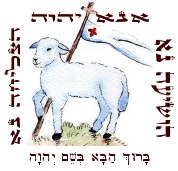
[ The following is related to this week's Torah reading, parashat Bo (i.e., Exod. 10:1-13:16). ]
01.10.19 (Shevat 4, 5779) Passover is the archetypal picture of the redemption of God. Its theme goes all the way back to the beginning, to the primordial orchard of Eden itself, when Adam and Eve disobeyed God and ate from the forbidden tree. Because of their transgression, our original ancestors incurred the plague of death and were exiled from the Divine Presence, though God graciously promised to heal them through the coming Seed of the woman – the Savior who would crush the head of the serpent and break the fangs of his venomous sting (Gen. 3:15). Soon after making this great promise, God clothed our primordial parents with the skin of a sacrificed lamb (Gen. 3:21), linking their coming deliverance with the "Lamb of God slain from the foundation of the world" (1 Pet. 1:18-20). The very first "Passover" was in the garden. The story extends to the world to come, too, where in the redeemed paradise of God we will celebrate the victory of the Lamb who was slain for our redemption (Rev. 5:12-13, Rev. 19:7).
The great story of our redemption is revealed on two levels in Scripture - one that concerns the paradise of Eden (the universal level), and the other that concerns the paradise of Israel (the particular level). Therefore Yeshua is both rightly called the "Lamb of God who takes away the sins of the world" (John 1:29) and "the Messiah our Passover Lamb who has been sacrificed for us" (1 Cor. 5:7). Likewise he is both called the "Seed of the woman," and "the Son of David"; the "Second Adam," and the "King of the Jews," and so on. The story of Israel's redemption in Egypt therefore serves as an allegory of both the universal salvation promised in Eden (i.e., the lamb slain from the foundation of the world) as well as the revelation of the sacrificial ministry of Yeshua as Israel's promised Messiah. Yeshua is both the Savior of the world as well as Israel's true King and Deliverer.
Note: For more on this subject, please see the articles, "The Very First Passover" and "The Gospel in the Garden."
Redemption and Holiness...

[ This week we are reading parashat Bo (i.e., Exod. 10:1-13:16)... ]
01.10.19 (Shevat 4, 5779) In our Torah portion for this week we are reading about the institution of the Passover and the deliverance of the Israelites from bondage in Egypt. Later in the Torah we read God's reason for the redemption: "For I am the LORD who brought you up out of the land of Egypt to be your God. You shall therefore be holy, for I am holy" (Lev. 11:45). Because we are God's people, his redeemed children, we should be holy, just as God is holy (1 Pet. 1:15-16). Holiness, however, is not a matter of what you do (such as wrapping yourself in religious rituals) but instead is a matter of what you "allow" to happen: You let go and allow yourself to be rescued and taken up from the "depths of Egypt" to be with God. Holiness is something you receive by faith; it is a gift of being "set apart" to be sacred and beloved by God. Genuine holiness (i.e., kedushah) is connected with love and grace.
In Hebrew, the word kedushah (קְדוּשָׁה) means sanctity or "set-apartness" (other Hebrew words that use this root include kadosh (holy), Kiddush (sanctifying the wine), Kaddish (sanctifying the Name), kiddushin (the ring ceremony at a marriage), and so on). Kadosh connotes the sphere of the sacred that is radically separate from all that is sinful and profane. As such, it is lofty and elevated (Isa. 57:15), beyond all comparison and utterly unique (Isa. 40:25), entirely righteous (Isa. 5:16), glorious and awesome (Psalm 99:3), full of light and power (Isa. 10:7), and is chosen and favored as God's own (Ezek. 22:26).
The Ocean of Torah...

01.10.19 (Shevat 4, 5779) A young man once sought audience with a well-respected rebbe to ask if he could become his student. The rebbe asked the chasid, "Do you know any Torah?" The young man softly answered, "Only a little..." Replied the rebbe, "That is all we ever know, a little Torah...." Indeed the Scriptures do not command us to believe "on cue," but rather reveal a world of questions for our hearts to ponder. Instead of regarding the Bible as a "Book of Answers" for our questions, it is worthwhile to think of it as a "Book of Questions" for our answers. As we listen, God questions us so that we can know him by means of the dialog within our hearts. As any good teacher knows, when a student earnestly wrestles with a question he learns more than if he were given a straightforward answer. Similarly, God gives us permission to be without answers so that we will be free to seek, to struggle, and to "own" what we come to understand through our relationship with him; that way our learning will be real, substantive, and born from the urgency our own inner need.
Augustine of Hippo (354-430) tells of a vision of seeing a little boy at a beach scooping up the ocean thimbleful by thimbleful and emptying it out on the sand. Then he sees an angel who tells him that this boy will have emptied out the entire ocean long before he could exhaust what may be said about God. The Jewish sages sometimes describe Torah as an "ocean" because it is so profound in layers of meaning and truth. Torah is also likened to a venture into the unknown, into the dark "Cloud of Unknowing," because God is ultimately incomprehensible, and it is impossible to be truly competent in our understanding of him (see Isa. 55:8-9; Isa. 40:13; Rom. 11:33-34, Psalm 147:5). The progression often goes like this: First you come to believe and are filled with much conviction; you think you know who God is and what people must do to be saved. As you grow more, however, you encounter further aspects of Torah and become less sure of your own understanding. You begin to realize that you don't have all the answers, and this awareness helps you be more humble and sympathetic regarding the struggles others may have regarding the questions of faith. Paradoxically, the deeper you go in your studies the more you are emptied, though the blessing comes when you find yourself able to empathize with those searching for truth.
Retelling the Story...

[ The following is related to this week's Torah reading (Bo) and the story of yetziat mitzrayim, the great Exodus from Egypt.... Please read the Torah portion to "find your place" here. ]
01.09.19 (Shevat 3, 5779) In our Torah portion this week (i.e., parashat Bo) we are commanded to retell "in the hearing of your son and your grandson" how the LORD overthrew the arrogance of the Egyptians and performed wonders to deliver us" (Exod. 10:2). This commandment is the basis of the Passover haggadah (i.e., הַגָּדָה, "telling"), the "oral tradition" of our faith, when we personally retell the story from generation to generation so that the spirit of the message is not lost. We participate in the Passover seder to make it "our own story," a part of who we are. Therefore b'khol-dor vador: "Every Jew must consider himself to have been personally redeemed from Egypt." Retelling the story of the exodus enables us to "know that I am the LORD" (Exod. 10:2). We recall the words, bishvili nivra ha'olam – "For my sake was this world created," while we also recall the words, anokhi afar ve'efer – "I am but dust and ashes." When we retell the story of the great redemption, we strengthen our faith and better know the LORD.
Indeed God admonishes that the story of our redemption should be "as a sign on your hand and as a memorial (זִכָּרוֹן) between your eyes, that the Torah of the LORD may be in your mouth" (Exod. 13:9). We are instructed to "remember" (זָכַר) over and over again because our disease, our sickness of heart, induces us to forget how we were enslaved in the house of bondage. We must consciously remember and never forget that only by means of God's strong hand (בְּיָד חֲזָקָה) are we ever made free (John 8:36).
וְהָיָה לְךָ לְאוֹת עַל־יָדְךָ
וּלְזִכָּרוֹן בֵּין עֵינֶיךָ
לְמַעַן תִּהְיֶה תּוֹרַת יְהוָה בְּפִיךָ
כִּי בְּיָד חֲזָקָה הוֹצִאֲךָ יְהוָה מִמִּצְרָיִם
ve·ha·yah · le·kha · le·oht · al · ya·de'·kha
ool·zee'·ka·ron · bein · ei·ney'·kha
le·ma'·an · tee·he·yeh · to·rat · Adonai · be·fee'·kha
kee · be·yad · cha·za·kah · ho·tzee·a·kha · Adonai · mee·meetz·ra'·eem

"And it shall be to you as a sign on your hand
and for a memorial between your eyes,
that the Torah of the LORD may be in your mouth.
For with a strong hand the LORD has brought you out of Egypt."
(Exod. 13:9)

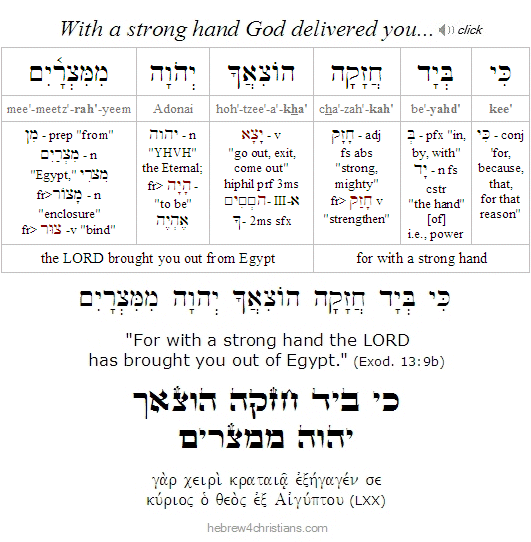
Matters of Death and Life...
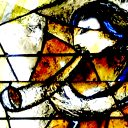
01.09.19 (Shevat 3, 5779) Moses prayed to God: "Teach us to number our days" (Psalm 90:12), which was an appeal for us to be made ready for death, "for our days on the earth are like a shadow, and there is no abiding" (1 Chron. 29:15). Death is an inevitable part of life, of course, but we often hide from it because we are unsure or afraid of what we really believe. The denial of death, however, impugns the significance of the gospel message, making faith seem remote and even dreamlike. Running away from the truth, however, creates its own set of problems where trivial and vain pursuits are elevated and our eternal good is lost. Those who make their happiness or health or prosperity to be the goal of life are in danger of losing their very souls (Matt. 16:26). Acknowledging the truth that we will die, that we are on "death row," will help us realize our radical need for God's intervention for our deliverance, as Paul said: "We had the sentence of death in ourselves ... to make us rely not on ourselves but on God who raises the dead" (2 Cor. 1:9). We should not ignore the subject of death because it makes us feel "uncomfortable" or unsettled. By avoiding the topic we are in effect acting as if it's not true. No, death is a real thing, a real problem, a horror, but if we look away from it we will misunderstand the very message of the gospel itself....
"Though in hope day by day
life passes as a vapor,
withers as a stalk,
forgotten in careworn furrows,
yet beyond the pale
of fleeting loss
will behold Him ever more."
- John Parsons
"Teach us to number our days, that we may apply our hearts unto wisdom" (Psalm 90:12). Each of us is given a finite amount of time in this world, and therefore it is our duty to live our lives with focus and full intent... For this we need wisdom, which primarily consists of knowledge of the holy (דַעַת קְדשִׁים) and the experience of the awe of the LORD (יִרְאַת יְהוָה, Prov. 9:10). Note then the connection between "numbering our days" and apprehending the sacredness of life. As we begin to esteem our days, so we shall discover wisdom for our sojourn to eternity. Reflecting on the brevity of life awakens us to consciously reflect upon the course of our lives and to distill the ultimate concerns of our hearts.
"The fact that there exist men who are indifferent to the loss of their whole being and the peril of an eternity of wretchedness is against nature. With everything else they are quite different: they fear the most trifling things. They foresee them and feel them. The same man who spends many days and nights in fury and despair at losing some office, or some imaginary affront to his honor, is the very one who knows that he is going to lose everything through death, but feels neither anxiety nor emotion. It is a monstrous thing to see one and the same heart at once so sensitive to minor things and so strangely insensitive to the greatest." (Blaise Pascal: Pensees)
When we become truly aware of how fleeting and sacred our lives are, our personal relationships will be transformed and we will begin to sense the sacredness of our time together. "Any time you are with anyone or think of anyone you must say to yourself: I am dying and this person too is dying, attempting the while to experience the truth of the words you are saying. If every one of you agrees to practice this, bitterness will die out, harmony will arise" (de Mello). Amen. The sages say, "Repent one day before you die." But who knows the day of one's death in advance? Perhaps your name will be called today, ending your lease on life in this world. Are you ready? Are you prepared to appear before your Creator to account for your life (Rev. 22:12)?
לִמְנוֹת יָמֵינוּ כֵּן הוֹדַע
וְנָבִא לְבַב חָכְמָה
leem·noht · ya·mei·noo · kein · ho·da'
ve·na·vee · le·vav · chokh·mah

"Teach us to number our days
that we may apply our hearts unto wisdom."
(Psalm 90:12)
Hebrew Study Card

"Preach the gospel. Die. Be forgotten" (Nikolaus Zinzendorf). Whenever I speak earnestly with someone I try to remember that I am dying and that I am talking with someone who likewise is dying... Eternal life is a matter of faith, it is "already-not-yet" and therefore the context of the significance of newness of life is the reality of death... Death is the reason for the cross and the exchanged life...
The Torah of Passover...

01.08.19 (Shevat 2, 5779) The very first occurrence of the word "Torah" (תּוֹרָה) in the Scriptures refers to the faith of Abraham (Gen. 26:5), and the second occurrence refers to the ordinance of Passover: "There shall be one law (תּוֹרָה) for the native and for the stranger who sojourns among you" (Exod. 12:49). There is a link here. Abraham lived before the time of the Exodus, of course, and therefore he obeyed the Torah of Passover by means of the Akedah (the sacrifice of his beloved son Isaac and the substitution of the lamb of God upon the altar). Abraham's faith revealed that the inner meaning of Torah is that the "righteous shall live by faith" (Hab. 2:4, Rom. 1:17), that is, by trusting God's justification of the sinner (Heb. 11:17-19). The Torah of Passover likewise teaches that redemption from death is possible through the exchange of an innocent sacrificial victim. The blood of the lamb was "a sign" of imputed righteousness obtained entirely by faith - with no "leaven," or human works, added. This is the "korban" principle of "life-for-life" that underlies the sacrificial system of the Tabernacle as well. Ultimately all true Torah points to Yeshua, the Lamb of God, who is the divinely appointed Redeemer and promised Slayer of the Serpent...
"When the fullness of time (τὸ πλήρωμα τοῦ χρόνου) had come, God sent forth his Son, born of woman, born under the Torah, to redeem those who were under the Torah, so that we might receive adoption as sons" (Gal. 4:4-5).
The Seal of Truth...
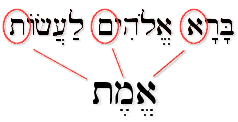
01.08.19 (Shevat 2, 5779) The sages state "the seal of God is truth," by which they mean that truth bears its own witness to reality. Spiritual truth is ultimately personal, since it is "lived truth," and therefore it is part of the inner will of the person. A true person's life will agree with his or her words; the inner and the outer will correspond and align. The apostle Paul wrote that God's firm foundation (i.e., yesod: יְסוֹד) bears this distinctive seal: on one side is imprinted, "The LORD knows those who are his" (יוֹדֵעַ יְהוָה אֵת אֲשֶׁר־לוֹ) and on the other side is imprinted, "Let everyone who names the Name of the LORD depart from iniquity" (כּל־הַקּוֹרֵא בְּשֵׁם יְהוָה יָסוּר מֵעָוֶל; 2 Tim. 2:19). People can say one thing and believe another, but ultimately no one can "fake" the truth: God bears witness to what is real, as it says, "All are naked and exposed to the eyes of Him to whom we must give account" (Heb. 4:13). The LORD knows who are really his own, and who are impostors. As Yeshua said: "My sheep hear my voice, and I know them (וַאֲנִי יוֹדֵעַ אתָן), and they follow me" (John 10:27).
We can test whether our faith is genuine by first asking whether we are trusting Yeshua to be our only means of salvation (and sanctification) -- believing that he alone is our means of finding the righteousness of God (צִדְקַת אֱלהִים), -- and then honestly examining our actions to see whether we evidence the love of God (John 14:1; 15:9-10; 1 John 4:7-8). "Whoever says he lives in Him ought to walk in the same way in which he walked" (1 John 2:6). May the LORD help each of us to evidence in the power the "seal of truth..."
The Hebrew word for truth is emet (אֱמֶת), a word that consists of the first, middle, and last letter of the Hebrew Aleph-bet, indicating that truth encompasses all things and endures from the beginning (א) to the end (ת). But notice that if we remove the letter Aleph from the word, we are left with מֵת, (dead), the opposite of חַיִּים (life). The letter Aleph is the ineffable letter that represents oneness and God's preeminent glory. Therefore, if we attempt to ignore or suppress God in our understanding of truth, we end up with death...
Yeshua our Messiah is called the Aleph and the Tav (הָאָלֶף וְהַתָּו), "the first and the last" (הָרִאשׁוֹן וְהָאַחֲרוֹן). These are divine titles that belong exclusively to YHVH (Isa. 41:4, 44:6, 48:12; Rev. 1:1,17-18; 22:13). Pilate's famous question, "What is truth?" is a category mistake, since truth is not about "what" but about "Who." That is, truth is not something objective and static, a thing to be known and studied from a distance. No. Truth is up-close and personal.... You don't judge the truth, but the truth will reveal what is within you...
Note: For more on this subject, see the article, "What is Truth?"
The Great Lamb of God...
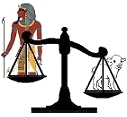
01.08.19 (Shevat 2, 5779) From our Torah portion this week (i.e., parashat Bo) we learn that though God instructed each household to select its own lamb for the Passover, the Torah refers to "the" Lamb of God, as if there was only one: "You shall keep it [i.e., the Passover lamb] until the fourteenth day of this month, when the whole assembly of the congregation of Israel shall slaughter him (אתוֹ) at twilight (Exod. 12:6). Note that the direct object "him" (i.e., oto) can be read as Aleph-Tav (את) combined with the letter Vav (ו), signifying the Son of Man who is First and Last... Indeed there is only one "Lamb of God" that takes away the sins of the world, and that is our Savior, Yeshua the Messiah...
רָאוּי הַשֶּׂה הַטָּבוּחַ לְקַבֵּל גְבוּרָה
עשֶׁר וְחָכְמָה וְכּחַ וִיקַר וְכָבוֹד וּבְרָכָה
rah·oo'·ee · ha·seih · ha·tah·voo'·ach · le·ka·beil · ge·voo·rah
oh'·sher · ve·chokh·mah · ve·koh'·ach · vee·kar · ve·khah·vohd · oov·rah·kha

"Worthy is the Lamb who was slain, to receive power and wealth and wisdom
and might and honor and glory and blessing"
(Rev. 5:12)

Hebrew Study Card
New Beginnings...
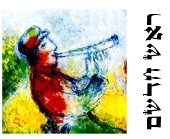
[ The following is related to this week's Torah reading, parashat Bo (i.e., Exod. 10:1-13:16). ]
01.08.19 (Shevat 2, 5779) The very first word of Torah indicates the awareness of the significance of time - בְּרֵאשִׁית - "in the beginning..." (Gen. 1:1), and according to Jewish tradition, the very first commandment given to the children of Israel (as a whole) was that of Rosh Chodesh (ראש חודש), or the declaration of the start (or head) of the "new month," particularly with regard to the first month of their redemption (Exod. 12:2). In other words, Passover month was to begin Israel's year (i.e., Rosh Chodashim). Note that the word for month (i.e., chodesh) comes from the root chadash (חָדָש), meaning "new," and therefore the Passover redemption (chodesh yeshuah) was intended to mark a "new beginning" for the Jewish people. And indeed, God marks the start of our personal redemption as the beginning of our life as a new creation (2 Cor. 5:17), just as Yeshua is the "first of the firstfruits" of God's redeemed humanity (1 Cor. 15:45-49).
For more on this subject, see "Parashat Bo: The Significance of the Moon."
Keeping it Together...

01.07.19 (Shevat 1, 5779) Where it is written, "cast all your anxiety on him because he cares for you" (1 Pet. 5:7), the word translated "anxiety" (μέριμνα) comes from a Greek verb (μερίζω) that means to be fragmented or divided into parts and pieces. Being anxious is therefore the uneasy state of being unfocused and divided within oneself... King David understood the need for a unifying principle for his life: "One thing I ask of the Lord; that is what I will seek" (Psalm 27:4). He understood that walking in the truth required "uniting his heart," or "repairing the breach" within his inner affections so that he could experience reverence and awe before the Divine Presence (Psalm 86:11). King David knew that "right desire is the deepest form of prayer."
שִׁוִּיתִי יְהוָה לְנֶגְדִּי תָמִיד
כִּי מִימִינִי בַּל־אֶמּוֹט
shiv·vi·ti · Adonai · le·neg·di · ta·mid
ki · mi·mi·ni · bal · e·mot

"I have set the LORD always before me;
because he is at my right hand, I shall not be shaken"
(Psalm 16:8)

Hebrew Study Card
The Scriptures warn that a "double-minded man is unstable in all his ways" (James 1:8). The word translated "double-minded" is dipsuchos (δίψυχος), a word formed from δίς, "twice" and ψυχή, "soul." The word describes the spiritual condition of having "two souls" that both want different things at once. Being double-minded therefore describes a state of inner ambivalence, of having two separate minds holding contradictory thoughts. (In a sense, being double-minded is an affliction for the person of faith, since the unregenerated person lacks even the capability for collision within the heart.)
To repair this breach, to unify his heart and its affections, David determined to "set" the LORD before him. Note that the verb "set" here is piel, that is, intensive... We must intently focus our mind and heart to regard ourselves as in the Presence of God; we must sense His eye upon us and "know before Whom we stand." The sages say that when David wrote these words, he was referring to the scroll of Torah which he kept tied to his arm. David literally "set" the Word of the LORD upon his right hand to help him keep focused (shel yad).
Let others complain that our age is wicked; my complaint is that it is wretched, for it lacks passion. Men's thoughts are thin and flimsy like lace; they are themselves are pitiable like lace makers. The thoughts of their hearts are too paltry to be sinful. For a worm it might be regarded as a sin to harbor such thoughts, but not for a being made in the image of God. Even their lusts are dull and sluggish, their passions sleepy. They do their duty, these shop-keeping souls, but they clip the coin a trifle. ... They think that even if the Lord keeps a careful set of books, they may still cheat Him a little. Out upon them! This is the reason my soul always turns back to the Old Testament and Shakespeare. Those who speak there are at least human beings: they hate; they love; they murder their enemies, and curse their descendants throughout all generations; they sin. (Soren Kierkegaard: Either/Or)
Purity of the heart is to will one thing... When we are anxious, we become inwardly fragmented or divided, and thereby lose our sense of identity and purpose in this world. God invites us to come boldly before Him to find help (Heb. 4:16). He is a "very present help in trouble" (Psalm 46:1). We cast our burdens upon the LORD so that He can sustain us (Psalm 55:22), and that we may have a "right spirit" (רוּחַ נָכוֹן) renewed within us (Psalm 51:12). We can bring our brokenness to God - including those distractions that tear us away from Him and that make us inwardly "two-souled" - to find healing for our hearts. When we do so, we will discover the Source of Power that makes us "unshakable and always able to abound in every good work" (1 Cor. 15:58).
Knowing the Name...
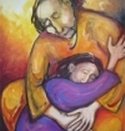
01.07.19 (Shevat 1, 5779) You may feel anxious about knowing God, about how to relate to him or how to understand or interpret the Scriptures, though the heart can only know the essential meaning of God in the state of its need, as its ultimate concern, and therefore unless you cry out "from the depths" of your being, you are merely intellectualizing or playing games... After all, the inner heart asks "How can I find God?" "How can I relate to God?" "How can I find hope and life?" but the answers to such questions are found by personal encounter with the reality of the Spirit of God, not by sound bites or theological rationalizations. It is one thing to say "Lord" or "Master" but quite another to say "my Lord," or "my Master..." The Torah teaches that name of God refers to that which God alone is, namely, the "I am that I am"(אהְיֶה אֲשֶׁר אֶהְיֶה) which is unknowable apart from the miracle of disclosure within the heart. That is why we find so many different names and titles for God in Scripture, for these are disclosures to the heart in a time of need. For instance, to know God's name as "Savior" (מוֹשִׁיעַ) means experiencing deliverance from your struggles, pains, and fears by the agency of God's victory, comfort, and consolation as given in Yeshua. However, unlike the experience of worldly education you might acquire to empower you accomplish certain tasks, spiritual education leads to a "dark clouds of unknowing" where you must regularly confess your weakness and your need for divine connection. God's name is therefore bound up with the basic quest within your heart for meaning, healing, and the desire of unconditional love. Knowing the name of God is an ongoing process as you struggle to accept and trust your life to be a blessing, and as you are enabled by the Holy Spirit to say "yes" and "amen" to life despite your failures, pains, fears, sorrows, and even your unanswered questions... It means opening your heart to life and believing that you are beloved, that you are accepted, that you will be okay, and that God is holding you in his everlasting arms. Amen, friend, may you know the meaning of that Name.
Thomas Aquinas' most significant work was his Summa theologiae or 'Summary of Theology,' a massive book that attempted to "systematize" all of Christian theology. He worked on it for many years, but when he was nearly finished he underwent a spiritual experience that, as he himself explained, made everything he had written "seem like straw." He thereafter gave up writing about "theology" after he encountered the Reality itself. Aquinas apparently moved from the realm of theoretical emunah (i.e., cognitive faith) to the realm of heartfelt bittachon (i.e., existential trust). Similarly, toward the end of his life and career someone asked the prolific theologian Karl Barth if he could sum up all that he had learned and written. Barth thought a bit and then replied, "Jesus loves me, this I know, for the Bible tells me so."
Rosh Chodesh Shevat...

01.06.19 (Tevet 29, 5779) Today marks Rosh Chodesh Shevat (חדש שבט), that is, the beginning of the eleventh month of the Jewish calendar (counting from the month of Nisan). Shevat is considered important because Moses began his summary of the Torah (i.e., Mishneh Torah, or the sermon recorded in Book of Deuteronomy) on the first day of this month (Deut. 1:1,3). Because of this, the sages have long associated the Rosh Chodesh Shevat with the holiday of Shavuot (i.e., the sixth of Sivan), since on both these dates God appealed to Israel to receive the message of the Torah. The month of Shevat is also important because the "Rosh Hashanah for Trees" occurs on the 15th of the month (i.e., Tu B'Shevat).
יְהִי רָצוֹן מִלְּפָנֵיךָ יהוה אֱלהֵינוּ וֵאלהֵי אֲבוֹתֵינוּ
שֶׁתְּחַדֵּשׁ עָלֵינוּ חדֶשׁ טוֹב בַּאֲדנֵינוּ יֵשׁוּעַ הַמָּשִׁיחַ אָמֵן
ye·hi · ra·tzon · mil·fa·ne·kha · Adonai · E·lo·hei·nu · ve·lo·hei · a·vo·tei·nu
she·te·cha·desh · a·lei·nu · cho·desh · tov, · ba·a·do·nei·nu · Ye·shu·a · ha·ma·shi·ach · amen

"May it be Your will, LORD our God and God of our fathers,
that you renew for us a good month in our Lord Yeshua the Messiah. Amen."

Download Study Card
Exodus and the Lamb...
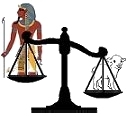
[ Our Torah reading for this week, Parashat Bo, describes the great Passover by means of faith in the efficacy of the blood of the Lamb of God and the subsequent exodus from Egypt... ]
01.06.19 (Tevet 29, 5779) Our Torah reading for this week begins with God commanding Moses "to go" (i.e., bo: בּא) before Pharaoh to announce further apocalyptic judgments upon Egypt. The purpose of this power encounter was to vindicate God's justice and glory (deliverance/salvation) by overthrowing the tyranny of unjust human oppression. Pharaoh's nightmare of "one little lamb" outweighing all the firstborn of Egypt was about to be fulfilled.
Recall that last week's Torah (Va'era) reported how Pharaoh defiantly refused to listen to Moses' pleas for Israel's freedom, despite seven devastating makkot (plagues) that came upon Egypt in God's Name (יהוה). In this week's portion (i.e., parashat Bo), the battle between the LORD and Pharaoh comes to a dramatic conclusion. The last three of the ten plagues are unleashed upon Egypt: a swarm of locusts devoured all the crops and greenery; a palpable darkness enveloped the land for three days and nights; and all the firstborn of Egypt were killed precisely at the stroke of midnight of the 15th of the month of Nisan... In this connection note that the word בּא ("go") and פרעה ("Pharoah") added together equal the gematria of משׁיח ("mashiach"), providing a hint of the Messianic redemption that was foreshadowed in Egypt. Every jot and tittle, chaverim!
Before the final plague, God instructed the Jewish people to establish a new calendar based on the sighting of the new moon of spring. On the tenth day of that month, God told the people to acquire a "Passover offering" to Him, namely an unblemished lamb (or goat), one for each household. On the 14th of that month ("between the evenings") the animal would be slaughtered and its blood sprinkled on the doorposts and lintel of every Israelite home, so that God would "pass over" these dwellings when He came to kill the Egyptian firstborn that night. The roasted meat of the offering was to be eaten that night with unleavened bread (matzah) and bitter herbs (maror). God then commanded the Israelites to observe a seven-day "festival of matzah" to commemorate the Exodus for all subsequent generations.
Because of this, our corporate identity begins with a shared consciousness of time from a Divine perspective. The mo'edim (festivals of the LORD) all are reckoned based on the sacred calendar given to the redeemed Israelite nation. As it is also written in the Book of Psalms: "He made the moon for the appointed times" / עָשָׂה יָרֵחַ לְמוֹעֲדִים (Psalm 104:19). Undoubtedly Yeshua followed this calendar, as did His first followers (Gal. 4:4).
Just before the dreadful final plague befell, God instructed the Israelites to ask their Egyptian neighbors for gold, silver and jewelry, thereby plundering Egypt of its wealth (this was regarded as "uncollected wages" for hundreds of years of forced labor and bondage - not to mention for the services of Joseph, whose ingenuity brought the world's wealth to Egypt in the first place). Moses then instructed the people to prepare the Passover sacrifice, that is, the korban Pesach (קָרְבָּן פֶּסַה) - the Passover lamb - and to smear its blood on the two sides and top of the doorway, resembling the shape of the Hebrew letter Chet (ח). This Hebrew letter, signifying the number eight, is connected with the word חי (chai), short for chayim (חַיִּים), "life." The blood of the lamb (דַּם הַשֶּׂה) not only saves from the judgment of death, but also is a symbol of divine life given for our redemption. The "life is in the blood."
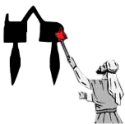
The dreadful final plague - the death of the firstborn - at last broke Pharaoh's resistance and he not only allowed the Israelites to depart without any conditions, he urged them to go. Because they left in great haste there was no time for their dough to rise. The Torah states that there were 600,000 adult men who left Egypt, along with the women, children, and a "mixed multitude" of other Egyptian slaves who tagged along.
The Israelites were commanded to consecrate all the firstborn to God and to commemorate the anniversary of the Exodus each year by celebrating the LORD's Passover in conjunction with the Feast of Unleavened Bread. During this time they were to remove all leaven from their homes for seven days, eat matzah, and retell the story of their redemption to their children. The portion ends with the commandment to wear tefillin (phylacteries) on the arm and head as a reminder of how the LORD saved the Israelites from their bondage in Egypt.
Everything Matters...
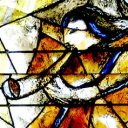
01.04.19 (Tevet 27, 5779) An implication of genuine faith in the LORD is the realization that your life is a sacred trust and therefore everything matters... Nothing is trivial; nothing is inconsequential. In the world to come you will be shocked to understand that everything you thought, everything you said, and everything you did was given to you from above, and therefore has tremendous significance (Matt. 12:36-37). Indeed, your entire life is on loan from heaven itself. Therefore "seek first the kingdom of God and His righteousness..." (Matt. 6:33). Faith invests all of the heart to the journey at hand; it seeks God's presence in all things and trusts God in all its ways (Prov. 3:5-6). "The present form (τὸ σχῆμα) of this world is passing away" (1 Cor. 7:31), and the heart of faith looks for a city whose designer and builder is God Himself (Heb. 11:10). "So we do not lose heart... For the things that are seen are turning to dust, but the things that are unseen endure forever" (2 Cor. 4:16-18).
בְּטַח אֶל־יְהוָה בְּכָל־לִבֶּךָ
וְאֶל־בִּינָתְךָ אַל־תִּשָּׁעֵן
בְּכָל־דְּרָכֶיךָ דָעֵהוּ וְהוּא יְיַשֵּׁר ארְחתֶיךָ
be·tach · el · Adonai · be·khol · lee·be'·kha
ve'el · bee·na'·te·kha · al · teesh·a·ein
be·khol · de·ra·khe'·kha · da·ei'·hoo · ve·hoo · ye·ya·sher · or·cho·tey'·kha

"Trust in the LORD with all your heart,
and do not lean on your own understanding.
Know Him in all your ways, and He will straighten your paths."
(Prov. 3:5-6)

Hebrew Study Card
"Know Him in all your ways," that is, in all that you put your hand to do look for the Divine Presence and guidance (1 Cor. 10:31). As King David stated, "I have set the Lord always before me, because He is at my right hand, I shall not be moved" (Psalm 16:8). The very first step of the journey is to find hope, and every subsequent step is marked by hope's comfort. Therefore keep moving forward and don't look back. Yeshua warned us that the person who puts his hand to the plow and then turns back is not fit for the kingdom of heaven (Luke 9:62). Keep focused on what is most essential; guard yourself from the world and its varied distractions. Make a place within your heart for the Divine Presence; find a quiet moment to listen for God's comfort. Trust that God is on the road ahead for you; believe that God foresees your way and prepares a place for you. Ask for guidance from the Lord: "Cause me to know the way I should go, for I lift up my soul to you..." (Psalm 143:8).
Blaise Pascal (1623-1662) once cogitated: "There are only three kinds of people: those who seek God and have found Him -- these are wise and happy; those who seek God and have not yet found Him -- these are wise and unhappy; and those who live without either seeking God or finding Him -- and these are both unwise and unhappy" (Pensees). That is a good categorization, though a more logical one would state that there are actually four kinds of people: 1) those who seek God and have found Him -- these are wise and happy; 2) those who seek God and have not yet found Him -- these are wise but unhappy; 3) those who do not seek God but have found Him -- these are unwise yet made happy; and 4) those who neither seek God nor find Him -- these are living a nightmare....
King David prayerfully wrote, "You have said, 'Seek my face,' and my heart says to you, 'Your face, LORD, do I seek'" (Psalm 27:8). This is the "antiphon" of the great Shema: God calls us to hear His Voice, so we are right to earnestly ask Him to be divinely enabled to hear what the Spirit is saying. Shabbat Shalom and love to you all, chaverim. May the Spirit of the LORD rest upon you and give you God's healing peace. Amen. Shabbat Shalom!
Beloved Wretch...

01.04.19 (Tevet 27, 5779) There are days that you might feel a bit like that lost dog whose owner posted a sign that said: "Lost Dog with three legs, blind in left eye, missing right ear, tail broken, and recently neutered. Breed unknown. Answers to the name of Lucky."
Afflictions make us "lucky," though most of us begin to understand this in hindsight, only after we've been humbled by our failures.. Thank God that that he seeks and saves the lost, the broken, and the unruly; thank God for Yeshua, "the friend of sinners" (Matt. 11:19). As Margary Williams wrote: "Generally, by the time you are Real, most of your hair has been loved off, and your eyes drop out and you get loose in the joints and very shabby. But these things don't matter at all, because once you are Real you can't be ugly, except to people who don't understand" (Velveteen Rabbit). You might sometimes feel like a wretch, but you are beloved wretch, after all. Take heart that God is not finished working on you, that your change will come, and there is a transformed future and everlasting consolation reserved for you. Stay strong, dear friends. Shabbat Shalom.
Torah of Empathy...

01.04.19 (Tevet 27, 5779) Our Torah portion for this week (i.e., Va'era) begins: "God (אֱלהִים) spoke to Moses and said to him, "I am the LORD (יהוה). I appeared to Abraham, to Isaac, and to Jacob as El Shaddai (אל שׁדּי), but by My Name the LORD (יהוה) I did not make myself known to them" (Exod. 6:2-3). Now the Hebrew word va'era (וארא), translated "I appeared," has a numerical value of 208, the same value as the name Yitzchak (יצחק), which suggests a connection between the Akedah (i.e., the sacrifice of Isaac) and the great redemption (גְּאֻלָּה) of YHVH that culminated in the original Passover ritual given in Egypt. The story of yetziat mitzraim (יְצִיאַת מִצְרַיִם) - the Exodus from Egypt - reveals the glory of God's great empathy for His people... How much more do we experience God's great empathy through the sacrificial life of His Son, Yeshua?
There is an old Chassidic story of two men sitting and enjoying a drink together. One of them then says to the other, "You know, you're my best friend. I really love you, brother!" The other man responds, "Oh yeah? If you really love me, tell me where I hurt..."
The point of this simple story is that we can't really say we love someone without taking the time to know them -- and that means knowing how they suffer. Most of us are suffering, of course, but are we able to transcend our own pain to genuinely empathize with others? Conversely, how many people do we trust enough to to confide our own pains and heartaches? The Law of Messiah (תוֹרת המשׁיח) is to bear one another's burdens (τα βαρη, "weights," Gal. 6:2), and that means making ourselves vulnerable -- and making room inside our hearts for the vulnerability of others. James tells us that personal healing comes from confessing outwardly (εξομολογεισθε) our sins (τας αμαρτιας) to one another so that we may be healed (James 5:16). Of course it's humbling to share our sins, our failures, and our hurts to another, but without an audience for the inner voice of our pain, we suffer all the more...
If someone loves us, they will know "where we hurt"; and if we love them, we will know where they hurt, too. This same principle can also be applied to our relationship to Yeshua... We take comfort that Yeshua sticks closer to us than a brother, interceding on our behalf and "knowing where we hurt." But if we say that we love him, are we are not claiming that we know him and "where he hurts?" Does Yeshua suffer today? The Apostle Paul wrote: "Now I rejoice in my sufferings for your sake, and in my flesh I am filling up what is lacking in Messiah's afflictions for the sake of his body, that is, the church" (Col. 1:24). What is "lacking in Messiah's afflictions" is our present sacrifice for the sake of others... Yeshua hungers with those who are hungry, thirsts with those who are thirsty, feels loneliness with those who are abandoned, shivers with those who are cold, weeps with those who are forlorn, is imprisoned with those who are incarcerated, is sick with those who are ill, and so on (Matt. 25:31-ff). Yeshua feels the pain of even the "least of these my brothers." This is where he hurts, chaverim...
The essential difference between the righteous and the unrighteous is revealed in their response shown to those in need. After all, on the Day of Judgment, both the righteous and the unrighteous will account for their choices in light of the selfsame needy and pain-riddled world. The destiny of each person will be determined by whether he or she took the time to genuinely engage the suffering of others... May the LORD help us to share His heart and passion for a lost and hurting world.
The Spirit of Hope...

01.04.19 (Tevet 27, 5779) When Moses proclaimed the good news of God's forthcoming redemption for Israel, the Torah states that the people could not listen because they were "short of breath" (Exod. 6:9). Interestingly, this phrase (i.e., mi'kotzer ru'ach: מִקּצֶר רוּחַ) can also mean "lacking in spirit," as if in a paralyzed state of hopelessness. But how did the people become so downhearted? Had they forgotten the promise given to Abraham (Gen. 15:12-14)? Had they disregarded Joseph's final words (Gen. 50:24-25)?
According to some of the sages, part of the reason for their "shortness of breath" (besides the cruel bondage and hard labor imposed on them, of course) was that the Israelites miscalculated the duration of their 400 year exile, and therefore they began to lose hope. When members of the tribe of Ephraim tried to escape from Egypt some 30 years before the time of the redemption, they were all killed by the Philistines, and many of the Israelites began to believe that they would remain as perpetual slaves (Shemot Rabbah, 20:11). They became "short of breath" and could no longer receive the message of the Holy Spirit...
Indeed, life in this evil world can be suffocating at times. And though we may not be under the oppression of a cruel Pharaoh, we are affected by the "princes of this age" who spurn the message of the Messiah's redemption and love, and we are still subjected to bondage imposed by taskmasters who defy the LORD and who seek to enslave us by means of lies, propaganda, and threats of violence... The devil is still at work in the hearts and minds of many of his "little Pharaohs" that govern the world system... The Scriptures make it clear that we are engaged in genuine spiritual warfare: "For we do not wrestle against flesh and blood, but against the rulers, against the authorities, against the cosmic powers over this present darkness, against the spiritual forces of evil in the heavenly places" (Eph. 6:12).
It is evident that one of the central purposes of God's redemption is to bestow freedom and dignity upon his people. As the story of Pharaoh reveals, God does not take kindly to oppressors, dictators, and other megalomaniacal world leaders who deny the truth and who therefore seek to enslave (or kill) human beings created in His image and likeness. Just as God judged Egypt for its oppression and violence, so He will one day break the "rulers of this world" with a rod of iron and dash them in pieces like a potter's vessel (Psalm 2:9-10). The victory is found in our faith, just as the people of Israel believed; "and when they heard that the LORD had visited the people of Israel and that he had seen their affliction, they bowed their heads and worshiped" (Exod. 4:31).
To help us "catch our breath" during this time of waiting, it is important to remember that the LORD redeems us so that we may become His children and therefore be clothed with everlasting dignity... Our redemption makes us heirs of the Kingdom of God and citizens of heaven. We must never regard ourselves as slaves - not to the State, not to the bankers, not to fear, and not to religion (Gal. 5:1). God gave up His Son for us so that we could be made free to live with honor as his dearly loved children.... All the threats of the world system - economic, political, religious, social, etc. - are ultimately made empty and vain by the glorious redemption promised to us in Yeshua our Savior.
For more on this see: "The Spirit of Hope: Futher thoughts on Va'era."
Addendum: How long were the Israelites in Egypt?
Some of the sages argued that Israel was in bondage in Egypt for just 210 years and not 400 years as the Torah states. They reason that the 400 years of bondage mentioned in Torah must include the time of the patriarchs in Canaan, and subtracting that yields 210 years. Although there are some other explanations, in general, Jewish tradition says that the countdown of 400 years began with Isaac's birth. Now Isaac was sixty years old when Jacob was born, and Jacob was 130 years old when he went down to Egypt, so that yields 190 years which subtracted from 400 leaves 210 years... The sages interpret the phrase "a land that is not theirs" (in Gen. 15:13) to refer to both Canaan and the of Egypt and therefore the two may be considered a unit from an exile point of view. They further claim the genealogy given in Exodus 6:16-26 regarding the toldot of Moses (i.e, Levi - Kohath - Amram - Moses) would make each generation 100 years in length, which is problematic since Amram was said to marry Yocheved when she was 130 years old.
In response we should note that textual criticism of the Torah indicates that there may be gaps in the genealogical record given in Exodus, and therefore we should not be dogmatic about whether they are complete or not. However it's written in Exodus 12:40: "Now the length of time the Israelites lived in Egypt (בְּמִצְרָיִם) was 430 years" (the Hebrew בְּמִצְרָיִם שְׁלשִׁים שָׁנָה וְאַרְבַּע מֵאוֹת שָׁנָה is unmistakable), which agrees with God's statement of four hundred years (i.e., arba me'ot shanah: אַרְבַּע מֵאוֹת שָׁנָה) of bondage (Gen. 15:13). Furthermore Stephen quoted Genesis 15:13 in his defense before the Council saying: "But God spoke as follows: 'Your descendants will be foreigners in a foreign country, whose citizens will enslave them and mistreat them for four hundred years" (Acts 7:6), which again states it was 400 years (in Greek: ἔτη τετρακόσια). So despite Jewish midrash stating otherwise, it seems clear the Israelites were in bondage for at least 400 years.
From the Midst of the Thorns...
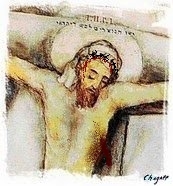
01.04.19 (Tevet 27, 5779) Why did the LORD, the Holy One, reveal Himself to Moses out of the midst of a lowly thorn bush, and not some grand tree? God lowered himself to speak from within the bush, as it is written: "For though the LORD be high, he regards the lowly" (Psalm 138:6); and "I will be with him in trouble" (Psalm 91:15). The midrash imagines God saying to Moses: "Don't you feel that I suffer anguish whenever Israel does? Know, therefore, from the character of the place from which I speak, out of the thorn bush, that I, as it were share their suffering" (Shemot Rabbah 2:7). God speaks to us from the place of thorns – even those about his own head – words of great comfort and deliverance. From the midst of the fire (בְּלַבַּת־אֵשׁ מִתּוֹךְ הַסְּנֶה), within the lowliest of places, covered in the thorns of our sin and shame, Yeshua speaks words of healing love. Bless his name forever!
New Pharaoh's Dream...

01.04.19 (Tevet 27, 5779) According to midrash, just as the Pharaoh during the time of Joseph was troubled by his dreams (Gen. 41:1-7), so was the "new king" that arose during the time of Moses. In the new Pharaoh's dream, an old man was standing before him as he sat on his throne, holding a balance in his hand. The old man placed all the nobles and governors of Egypt on one side of the balance, and on the other side, he placed one small lamb. To Pharaoh's astonishment, however, the lamb outweighed all the leaders of Egypt! When the king asked his advisors to interpret the dream, they said it foretold of a coming king who would overthrow the kingdom of Egypt and set the Israelites free. This coming one would excel in wisdom and his name would be remembered forever as the Savior of Israel.
Of course the rest of the Book of Exodus is essentially God's interpretation of the new Pharaoh's dream, as the great events of the Exodus would reveal. The LORD God of Israel forewarned this king that Egypt would come into judgment by the Lamb of God... Indeed, the only way to escape this judgment and the wrath of God was by being covered by the sacrificial blood of the lamb... The Lamb of God is central to Israel's deliverance and becomes the focal point of the revelation of the sanctuary later given at Sinai.
Israel was redeemed from Egypt by trusting in the promise of their deliverance, as it is written, "and the people believed" (וַיַּאֲמֵן הָעָם) ... and bowed their heads and worshiped" (Exod. 4:31). Recall that the blood of the korban Pesach - the Passover lamb - was to be smeared on the two sides and top of the doorway, resembling the shape of the letter Chet (ח). This letter, signifying the number 8, is connected with the word חי (chai), short for chayim (life). The blood of the lamb (דַּם הַשֶּׂה) not only saves from the judgment of death, but it also is the means of imparting divine life and power...
The Struggle of Faith...
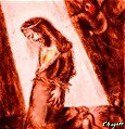
01.04.19 (Tevet 27, 5779) Some people seem to think there is no need to search for truth because all the answers are found in their religion or their holy books... It never occurs to them, however, to seriously question their religion or their Scriptures to understand what they really mean or to ensure their veracity. Kierkegaard once lamented that such people are like children who cheat their teacher by looking up answers in the back of the book, never working through the questions for themselves. The same may be said regarding the life of many who profess faith in God. Such people are glad to hear that in the end "love wins" yet they never struggle to take hold of love's promise and duty. They merely "copy the answer" from the back of the book without working out the problem for themselves. As such, even though their professed theology may be true, their confession is like the mimicry of a parrot, repeating sounds without understanding their meaning...
There is an old story of the Maggid of Brisk who each year would bring proof from the Torah that the Messiah would come that year. Once a certain Torah student asked him, "Rabbi, every year you bring proof from the Torah that the Messiah must come that year, and yet he does not come. Why bother doing this every year, if you see that Heaven ignores you?" The Maggid replied, "The law states that if a son sees his father doing something improper, he is not permitted to humiliate him but must say to him, 'Father, the Torah states thus and so.' Therefore we must tell God, who is our Father, that by keeping us in long exile, he is, in a sense, causing injustice to us, and we must point out, "thus and so it is written in the Torah," in hope that this year he might redeem us." This same principle, of course, applies to those of us who are living in exile and who eagerly await the second coming of the Messiah Yeshua. We should continue asking God to send Him speedily, and in our day. Doing so is an exercise of faith, living within an already-not-yet tension, the ambiguity of seeing God's promise despite present circumstances to the contrary. As our father Jacob taught us, it is in the struggle with the Angel that we are given our new name...
"There is one danger that we must guard against," Socrates said. "What sort of danger?" I asked. "Of becoming misologic [hating logic], he said, in the sense that people become misanthropic. No greater misfortune could happen to anyone than that of developing a dislike for argument. Misology and misanthropy arise in just the same way. Misanthropy is induced by believing in somebody quite uncritically. You assume that a person is absolutely truthful and sincere and reliable, and a little later you find that he is shoddy and unreliable. Then the same thing happens again. After repeated disappointments at the hands of the very people who might be supposed to be your nearest and most intimate friends, constant irritation ends by making you dislike everybody and suppose that there is no sincerity to be found anywhere...
The resemblance between arguments and human beings lies in this: that when one believes that an argument is true without reference to the art of logic, and then a little later decides rightly or wrongly that it is false, and the same thing happens again and again, they end by believing that they are wiser than anyone else, because they alone have discovered that there is nothing stable or dependable either in facts or in arguments, and that everything fluctuates just like the water in a tidal channel, and never stays at any point for any time. But suppose that there is an argument which is true and valid but someone spent his life loathing arguments and so missed the chance of knowing the truth about reality -- would that not be a deplorable thing?"
- Plato, Phaedo 89d-90e (Last Days of Socrates: Penguin 1954)
The Way of Return...

01.03.19 (Tevet 26, 5779) Our Lord Yeshua illustrated the path of return to God (i.e., teshuvah: תְּשׁוּבָה) by telling the heartwarming story of the "prodigal son" (see Luke 15:11-32). This parable, perhaps more than any other, reveals the heart of God for those who are "lost," that is, for sinners who have turned away and missed the true purpose of their lives. When a discontented son demands his share of his father's estate, he claims the right to live life in his own terms, seeking self-satisfaction, and and decides to leave home for a "far country," that is, to the fallen world where nothing is sacred, where there is no God, and where everyone likewise lives for themselves. The wayward child soon squanders his father's inheritance, that is, he wastes away the gift of life, and then encounters famine, discovering his profound spiritual hunger and thirst. After experiencing the misery and hopelessness of his self-chosen lifestyle, he has an awakening: "he comes to himself" (εἰς ἑαυτὸν δὲ ἐλθὼν) and decides to return home, full of shame and self-reproach (Luke 15:17). This decision marks the turning point, the "teshuvah," of his journey. Note that his decision to return is grounded in humility -- an abandonment of his own way and a confession of his need for his father's home. So "he got up and went to his father..." "But while he was still a long way off, his father saw him and was filled with compassion for him; he ran to his son, threw his arms around him and kissed him" (Luke 15:20). Yeshua used this image to portray God's love for us and his desire for us to return to him. Instead of listening to the son's litany of mistakes, the father ordered a celebratory meal in honor of his lost son's homecoming. When his older brother objected, the father said, "We had to celebrate and be glad, because this brother of yours was dead and is alive again; he was lost and is found" (Luke 15:32). This of course is the very heart of the gospel message: that the lost soul returns (shuv) to the compassionate arms of God the Heavenly Father... Indeed God sees you while you are still "a long way off" (Rom. 5:8). He runs to you with affection when you take your first earnest step to toward him; his compassion is so great that He willingly embraces the shame of your sins and then adorns you with "a fine robe, a ring, and sandals" (Luke 15:22). Your Heavenly Father even slaughters the "fattened calf" (i.e., Yeshua the Lamb of God) so that a meal that celebrates your life may be served (Luke 15:23).
In Yeshua's parable of the "prodigal son," it is clear by the context that the younger son refers to the "sinners" whom Yeshua had befriended (see Luke 15:1), while the elder son refers to the "scribes and Pharisees" who opposed his message of God's compassion and the gift of his love.... Yeshua told this story to teach us about different heart attitudes. Those who are scandalized by the father's great love for his wayward child may be likened to the elder son (Luke 15:25-32), the ostensibly "good son" who (like the scribes and Pharisees) considered themselves "respectable" and "faithful." And while the father's love surely extended to the older son, he reproved this son for his hardheartedness and especially for not knowing his own heart... We must be careful here. Yeshua never taught us to elevate "religion" over the needs of people; he never told us to observe religious scruples at the expense of compassion and love for others (Matt. 23:13-36); neither does he want people to become slaves to rituals or religion (Luke 11:42; 1 Cor. 7:23). No, he calls people to follow Him: "Take up your cross and follow me." Turn your thinking around! Die to your religion, your world. Be comforted because there is good news from heaven! God's acceptance is given to those who trust in the righteousness of Yeshua in place of self-righteousness that may be gained by performing the "works of the law" (Gal. 2:16, Titus 3:5; John 1:17). Indeed Yeshua is "the goal of the Torah for righteousness" for all who believe (Rom. 10:4-13). Wow. Now that's a message that requires a profound "change of mind" for the religiously-minded to accept. Contrary to what the gate-keepers of religion would have you believe, God's healing love extends to all people, and particularly to "sinners" who feel lost, excluded, and alone...
Despairing friend, it is never too late to turn to God, no matter what a mess you've made of your life... As the story of the prodigal teaches, you are welcome and accepted by God, despite your feelings of unacceptability and shame.... The prophet Jeremiah spoke in the Name of the LORD: "Return, faithless Israel, declares the LORD. I will not look on you in anger, for I am kind (כִּי־חָסִיד אֲנִי), declares the LORD" (Jer. 3:12). When the people drew back in shame, however, God encouraged them by saying "My children, if you return, will you not be returning to your Father? Come back, O faithless sons; I will heal your faithlessness. "Behold, we come to you, for you are the LORD our God" (Jer. 3:22).
שׁוּבוּ אֵלַי וְאָשׁוּבָה אֲלֵיכֶם
אָמַר יְהוָה צְבָאוֹת
shu·vu · e·lai · ve·a·shuv·ah · a·lei·khem
a·mar · Adonai · tze·va·ot

"Return to me, and I will return to you,
says the LORD of hosts" (Mal. 3:7)

Pride's Hard Lessons...
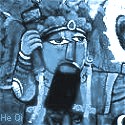
01.03.19 (Tevet 26, 5779) The tragic story of Pharaoh reminds us how pride can blind the heart. As Abraham Heschel said, "In a controversy, the instant we feel anger, we have already ceased striving for truth and have begun striving for ourselves." The truth needs no defense. If we find ourselves getting defensive or hostile, we need to take a step back and ask ourselves what we really believe... If we seek to use truth as a weapon, or as a means to rationalize our self-will, then we are not "in the truth," even if our facts in the matter may be correct. We must be careful not to find ourselves using the truth for our own agenda. Yeshua's words haunt the heart: "Without me you can do nothing" (John 15:5).
Kierkegaard notes: "The proud person always wants to do the right thing, the great thing. But because he wants to do it in his own strength, he is fighting not with man, but with God." Indeed, how many people seek visions, dreams, and private prophecies while they forsake the Spirit as it broods over the hearts of those around him or her? How many seek to "know God" as a matter of the pride of heart?
לִפְנֵי־שֶׁבֶר גָּאוֹן
וְלִפְנֵי כִשָּׁלוֹן גּבַהּ רוּחַ
lif·nei · she·ver · ga'on
ve·lif·nei · khi·sha·lon · go·vah · ru·ach

"Before destruction there is pride;
and before stumbling there is a haughty spirit."
(Prov. 16:18)

Hebrew Study Card
The Koretzer Rebbe was asked for instruction how to avoid sin. He replied, "Were you able to avoid offences, I fear you would fall into a still greater sin - that of pride" (Hasidic). The antidote to pride is the "fall of the soul," that is, those besetting sins and painful failures that (hopefully) bring us back to reality - namely, to the place of brokenness and our need for divine intervention... When we get "sick of our sickness" we enter into holy despair, and then the cry of the heart for lasting deliverance can be truly offered.
The Torah of Pharaoh...
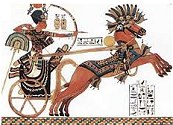
[ The following entry is related to this week's Torah reading (Parashat Va'era) and the theme of freedom. Please read the Torah portion to "find your place" here. ]
01.03.19 (Tevet 26, 5779) Though he sometimes appeared to change his mind in light of the intervention of God, Pharaoh nevertheless reverted to his older thinking after the danger seemed to pass. Therefore the Torah states that after each of the first five plagues, Pharaoh hardened (lit., "strengthened") his heart. It was only after five successive opportunities to face reality, to give up his claim to be god, to turn to the LORD in humility, however, that God ratified Pharaoh's will by "helping him" become the person he decided to be. Therefore after the sixth plague the Torah states, "And the LORD strengthened Pharaoh's heart" (Exod. 9:12).
The Torah of Pharaoh teaches us that God will never force a sinner to turn away from their sin, but if they willfully continue to sin, they may become unable to turn, trapped in a very difficult place.... The Shemot Rabbah states: "The Holy One, blessed be He, gives someone a chance to repent, and not only one opportunity but several chances: once, twice, three times. But then, if the person still has not repented, God locks the person's heart altogether, cutting off the possibility of repentance in the future." There is a very real risk that those who choose to be at war with God, who flatly refuse repeated appeals to turn to the LORD, will become progressively "strengthened" in their resolution to defy reality...
Truth and Moral Reality...
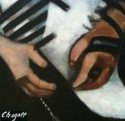
01.03.19 (Tevet 26, 5779) Those who think they are not bound by the laws of morality are enslaved to their lower nature, since the lower nature follows and justifies the appeals of natural impulse and instinct without reflection. Yet denying moral reality is as dangerous as defying the law of gravity, and ultimately is futile. Moral skepticism and relativism are ultimately "unlivewithable," since they deny the most basic experiences of the heart. Moral truth, on the other hand, is plainly apprehended by all who heed the voice of conscience and who esteem what really matters in life - meaning, truth, love, justice, beauty, and so on. Ethical reality is not discovered in a science lab but rather in the reverence of the human heart. In fact, science itself is impossible apart from values and assumptions that regard the knowledge of empirical reality as better than living in a state of ignorance.
Moral truth finds its source and authority in the LORD who fashioned human beings in His image and likeness. We cannot deny moral reality without desecrating ourselves. The Torah teaches that the universe itself was not caused but created, and therefore creativity, value, beauty, freedom, and personhood are at its essence. We are not victims of an impersonal machine, nor is the universe a closed-system of cause and effect that somehow operates apart from the immanent Presence of God. Whether people want to accept it or not, they are bound to live in light of moral reality, and they deny it to their own peril.
Girding your Mind...
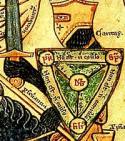
01.02.19 (Tevet 25, 5779) We are living in stressful times, friends. The world is drunk with its delusions and truth has fallen in the streets... Outrage and rank stupidity are dark motifs of our moribund and cowardly culture. The Apostle Paul wrote that the time before the "End of Days" would be "perilous" (χαλεπός) and full of unrelenting human depravity (2 Tim. 3:1-5). Yeshua warned that apostasy would abound and that the hearts of many would run cold as ice (Matt. 24:12). In light of the raging spiritual war going on all around us, the following needs to be emphatically restated: "The important thing is to not lose your mind..."
The mind is the "gateway" to your heart, and it is therefore essential to guard your thinking by immersing yourself in the truth... Fear is often the result of believing the lie that God is not in control or is unable/unwilling to help you... "Not losing your mind" therefore means being grounded in what is real, and it therefore means understanding your identity and provision as a child of God. "God has not given us the spirit of fear, but of power (גְּבוּרָה / δύναμις) and of love (ἀγάπη), and of a "sound mind" (σωφρονισμός), lit. a "delivered" mind, "healed" from the delusions of the fallen world (2 Tim. 1:7). The Greek word "sound mind" (σωφρονισμός) comes from the verb sodzo (σῴζω), meaning "to save," from saos (σάος) "safe," in the sense of being under restraining influence of the Spirit of God...
"You are to distinguish between the holy (i.e., ha-kadosh: הַקּדֶשׁ) and the common (i.e., ha-chol: הַחל), and between the unclean (i.e., ha-tamei: הַטָּמֵא) and the clean (i.e., ha-tahor: הַטָּהוֹר)" (Lev. 10:10, see also Ezek. 44:23). Just as God separated the light from the darkness (Gen. 1:4), so we are instructed to attain understanding (i.e., binah: בִּינָה) by distinguishing between (i.e., bein: בֵּין) the realms of the holy and the profane, the sacred and the common, and the clean and the unclean. Indeed, the Torah states "God called the light Day, and the darkness he called night," thereby associating His Name with the light but not with the darkness (Gen. 1:5). "For you all are sons of the light and sons of the day. We are not of the night nor of the darkness" (1 Thess. 5:5). We are instructed therefore to wear the "armor of light" (Rom. 13:12) and to be equipped to wage spiritual warfare in God's Name (Eph. 6:11-18). As it is written: "Take no part in the unfruitful works of darkness, but instead expose them" (Eph. 5:11). We must therefore discipline our minds to "take every thought captive to the truth of the Messiah" (2 Cor. 10:4-5). In light of the revelation of God and inner witness given by the Holy Spirit, we must "gird up the loins" of our minds, to be sober-minded, and to set our hope fully on the grace that will be brought to us at the revelation of Yeshua the Messiah" (1 Pet. 1:13). Chazak b'Yeshua chaverim....
The Blessing of Shalom...

[ Happy Holidays, friends. May God give you the great blessing of His peace... ]
01.01.19 (Tevet 24, 5779) The great priestly blessing, birkat kohanim says: "May the LORD lift up his face toward you (יִשָּׂא יְהוָה פָּנָיו אֵלֶיךָ) in welcome, and may his countenance be radiant with joy over you (Num. 6:26). May his face be "toward you," not turned away or hidden... When God turns toward you, he imparts the blessing without which all other blessings are beholden, namely, his peace (i.e., shalom). After all, what good is worldly prosperity or temporal pleasure apart from God's blessing of peace? To have shalom (שָׁלוֹם) is to be made shalem (שָׁלֵם) – made whole, complete, secure, happy – and therefore the peace of God (שְׁלוֹם הָאֱלהִים) is assuredly the most essential blessing.
יְבָרֶכְךָ יְהוָה וְיִשְׁמְרֶךָ
יָאֵר יְהוָה פָּנָיו אֵלֶיךָ וִיחֻנֶּךָּ
יִשָּׂא יְהוָה פָּנָיו אֵלֶיךָ וְיָשֵׂם לְךָ שָׁלוֹם
ye·va·re·khe·kha Adonai ve·yish·me·re·kha;
ya·eir Adonai pa·nav e·ley·kha vi·chun·ne·ka;
yis·sa Adonai pa·nav e·ley·kha ve·ya·sem le·kha sha·lom

"May the LORD bless you and guard you;
May the LORD make his face to shine upon you and be gracious to you;
May the LORD lift up his countenance upon you and give you peace."
(Num. 6:24-26)

εὐλογήσαι σε κύριος καὶ φυλάξαι σε,
ἐπιφάναι κύριος τὸ πρόσωπον αὐτοῦ ἐπὶ σὲ καὶ ἐλεήσαι σε,
ἐπάραι κύριος τὸ πρόσωπον αὐτοῦ ἐπὶ σὲ καὶ δῴη σοι εἰρήνην.
Download Study Card
Note that the text of this great "priestly blessing" begins with three words, is comprised of three parts, invokes the divine Name three times, and is therefore quite appropriately called "the three-in-one blessing." Notice that it is phrased in the singular rather than plural because it is meant to have personal application, not to be a general benediction over a crowd of people. The blessing, in other words, is directed toward the individual heart of faith.
Those who trust in God's salvation are given objective shalom, as it is written: "since we have been justified by faith, we have peace with God through our Lord Yeshua the Messiah" (Rom. 5:1). This is the reconciliation that God effected through the cross of Yeshua for our atonement (Rom. 5:11). God's love makes our eternal peace real, secure, and finished... There is also a subjective side of peace, however, that is a fruit of the Spirit of God: "But the fruit of the Spirit is peace..." (Gal. 5:22). This is the inner peace that we experience by trusting in God's care for our lives, despite our struggles; such peace comes when we allow the Spirit of God to reign within our hearts by faith (Phil. 4:7; Col. 3:15).
Through a Glass Darkly...
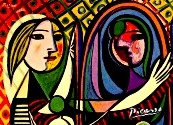
01.01.19 (Tevet 24, 5779) We walk by faith, not by sight - by hearing the Word of God, heeding what the Spirit of God is saying to the heart... For now we "see through a glass darkly," which literally means "in a riddle" (ἐν αἰνίγματι). A riddle is an analogy given through some resemblance to the truth, though quite often the correspondences are puzzling and obscure. Hence, "seeing through a glass darkly" means perceiving obscurely or imperfectly, looking "through" something else instead of directly apprehending reality. We see only a reflection of reality, and our knowledge in this life is indirect and imperfect. This is contrasted with the "face to face" (פָּנִים אֶל־פָּנִים) vision and clarity given in the world to come, when our knowledge will be clear and distinct, and the truth of God will be fully manifest and no longer hidden. Being "face to face" with reality means being free of the riddles, the analogies, the semblances, etc., which at best adumbrate our way.. Such reflection should make us humble whenever we share our faith. "Now we know in part, but then shall we know in whole" (1 Cor. 13:12). An honest theology must find a place for mystery, for "seeing through a glass darkly," and for the apprehension of awe and wonder.
Since God is the Infinite One (אֵין סוֹף) whose understanding is without limit (Psalm 147:5), we must use analogies, metaphors, symbols, allusions, parables, poetry, and other linguistic devices to convey spiritual truth and meaning. We compare (συγκρίνω) spiritual things with spiritual (1 Cor. 2:13). Some mystics have said the way to God is through the transcendence of words altogether, though most use imagery and poetry about "ineffable" reality. Others, like Soren Kierkegaard, use "indirect communication" to evoke the decision to believe, to find hope, and to walk by faith. Yeshua himself regularly used parables and stories to communicate deeper truths about ultimate reality. He likened the human heart to "soil" into which the Heavenly Farmer plants seed; he wanted his followers to know God as "heavenly Father," the idealization of family love, and so on. Often he was surprised at how dull his own disciples were regarding his use of spiritual analogies (Matt. 15:16, 16:9-11; Mark 8:17; John 6:22-66). Furthermore Yeshua often taught in parables because they simultaneously conceal and reveal the truth. A parable obscures the truth to those who don't really want it; just as it reveals the truth to those who do (Luke 8:9-10). Since Yeshua's whole life was a parable of sorts - a "disguise" that led to the victory of our deliverance (Phil. 2:7) - it is not surprising that he regularly used "figures of speech" to provoke people to examine their own heart attitude and faith... In this connection note that Yeshua never explained the "mysteries of the kingdom of God" directly to the crowds, nor did He ever pander to the crowd's clamor or interests. His message is always meant for the individual soul who was willing to follow Him -- to the one who had "ears to hear." Yeshua will forever be the Face of God to us, our Mediator and Savior, blessed be He (2 Cor. 3:18).
Just as there are hundreds of Names of God given in Scripture, so there are many analogies to help us understand His heart. For instance, God is likened to a farmer, a shepherd, a caring neighbor, a tenant, a king, an impartial judge, a pottery maker, an investor, an employer, a jilted husband, a passionate lover, and so on. However, the analogy Yeshua used the most was that the LORD God is our Heavenly Father, and we are His children. As it is written in the Psalms, "Like a father pities his children, so the LORD pities those who fear Him" (Psalm 103:13). The most intimate Name of God is simply Abba (אבּא), a term of endearment for a child uses for his father. For those who can believe, the eyes of the LORD are like those of a loving father who greatly rejoices over the presence of his child.
|



